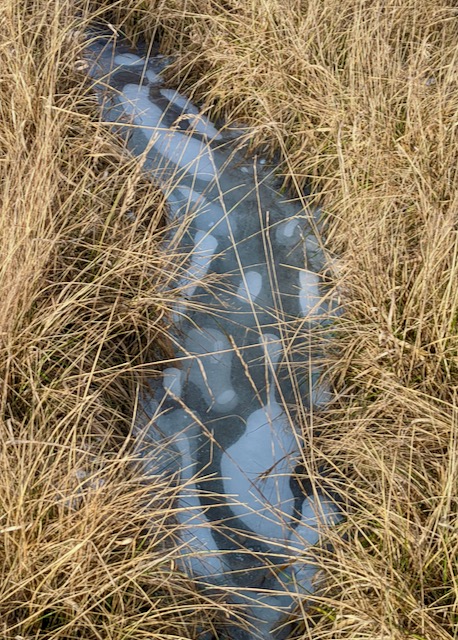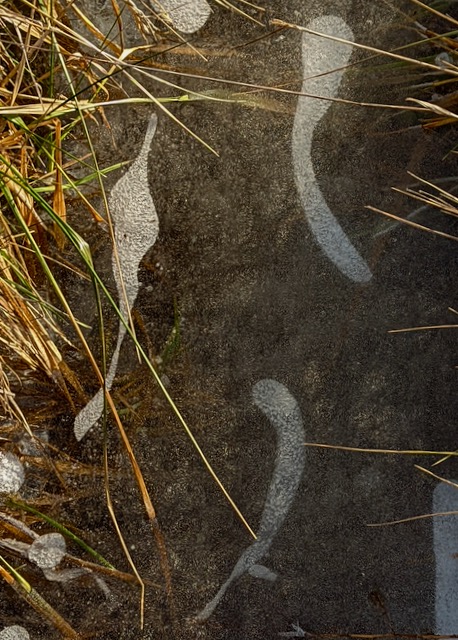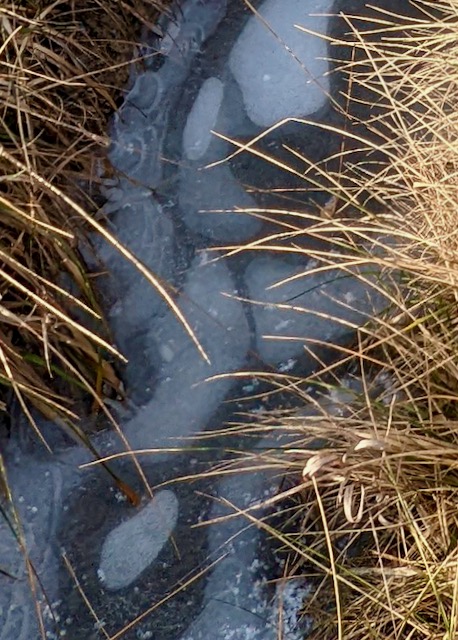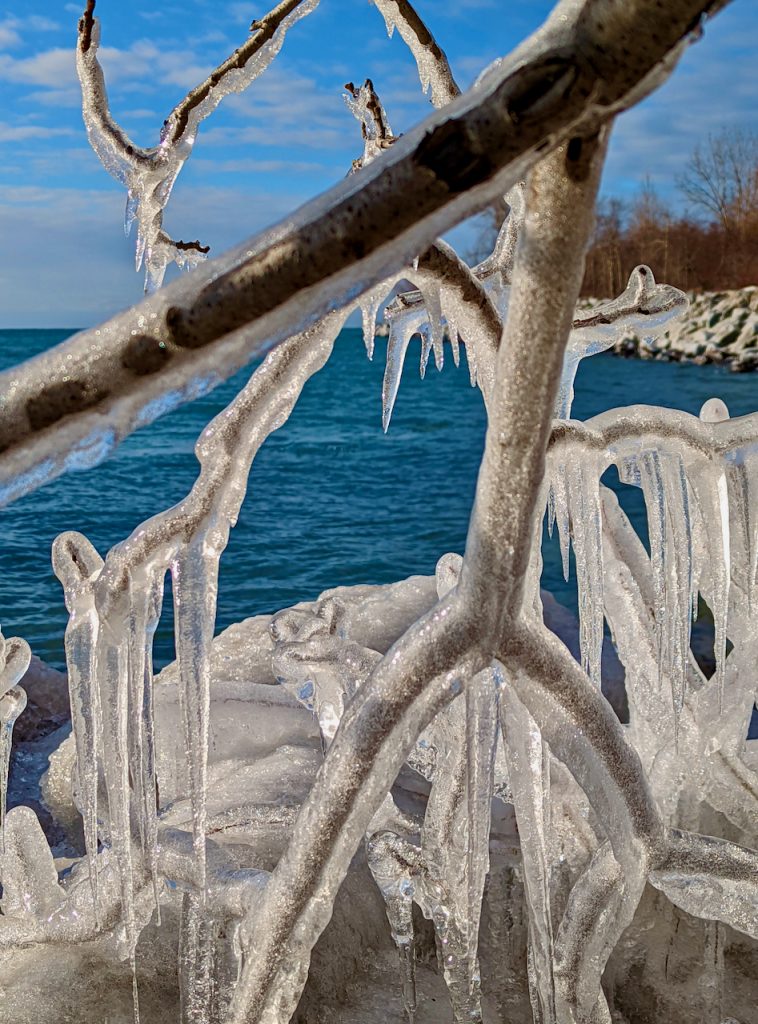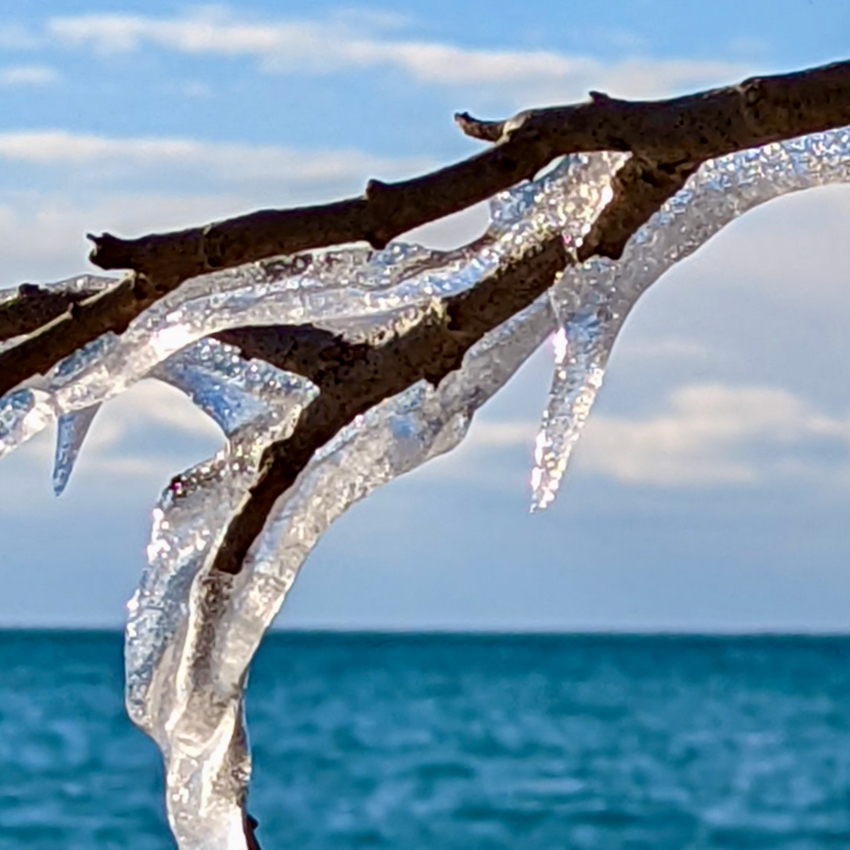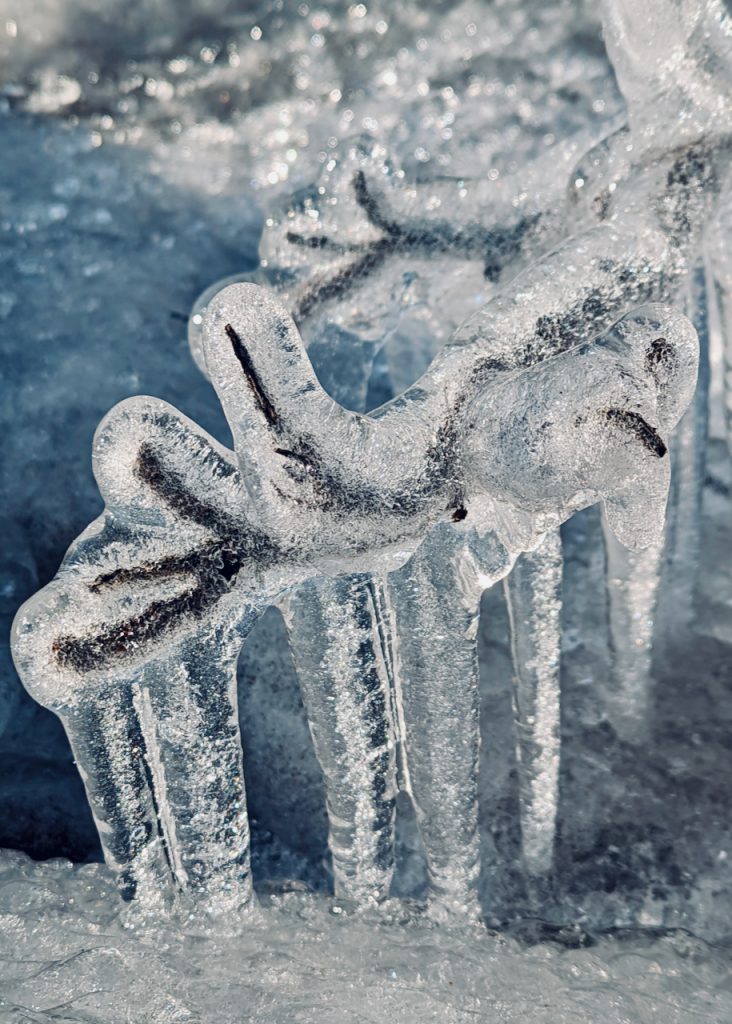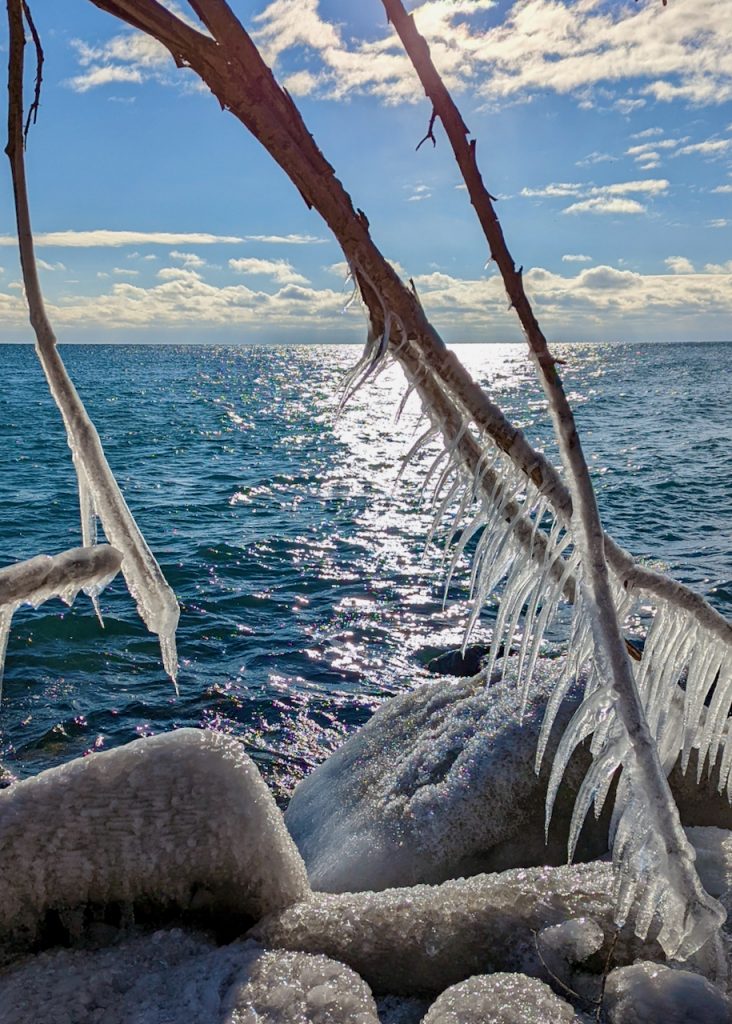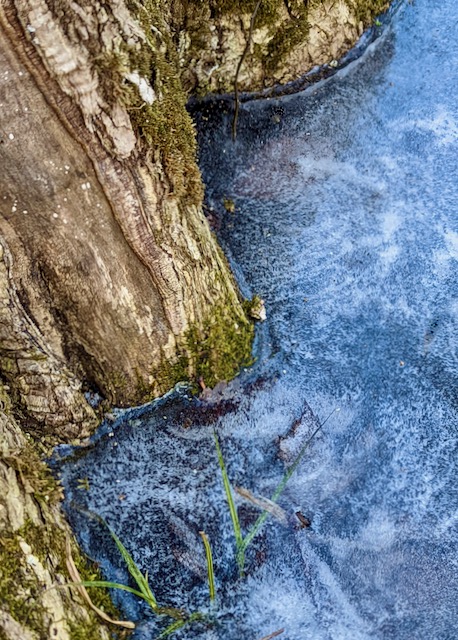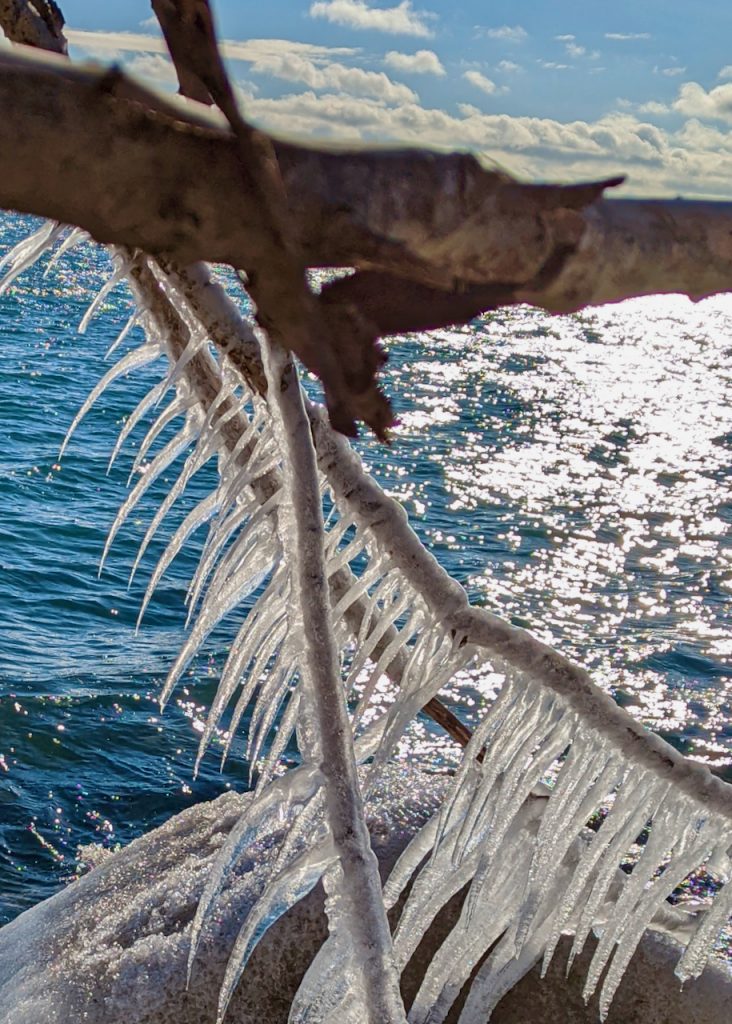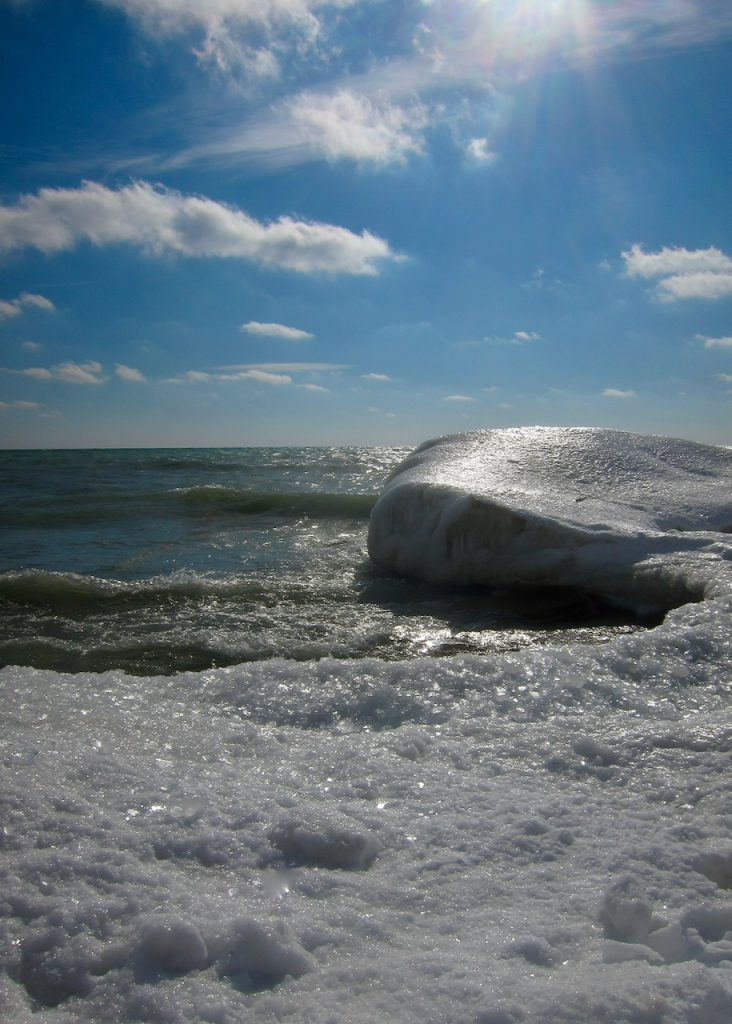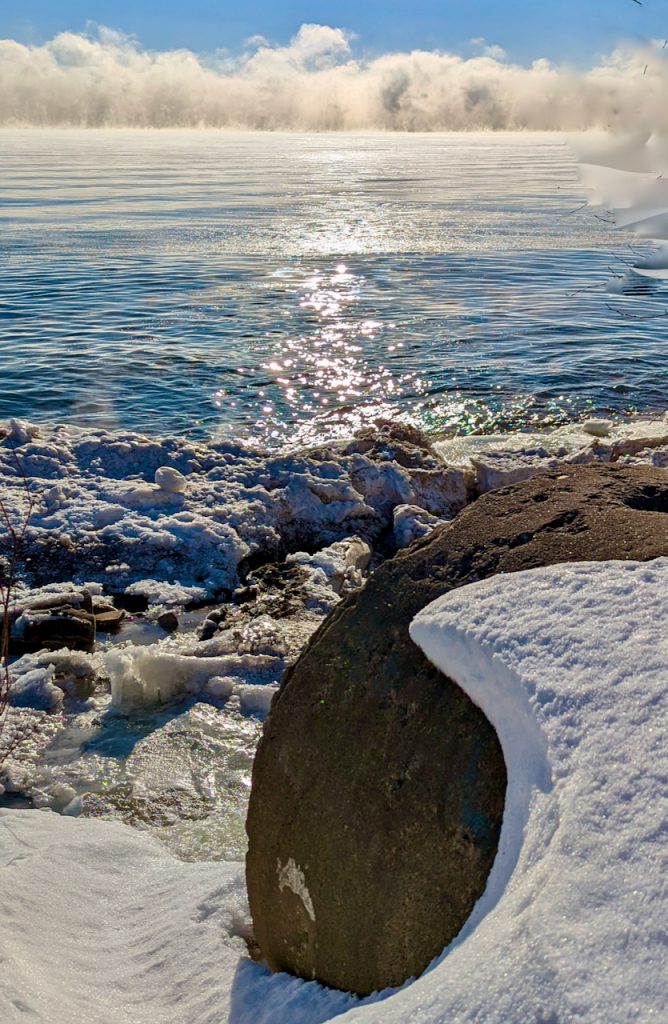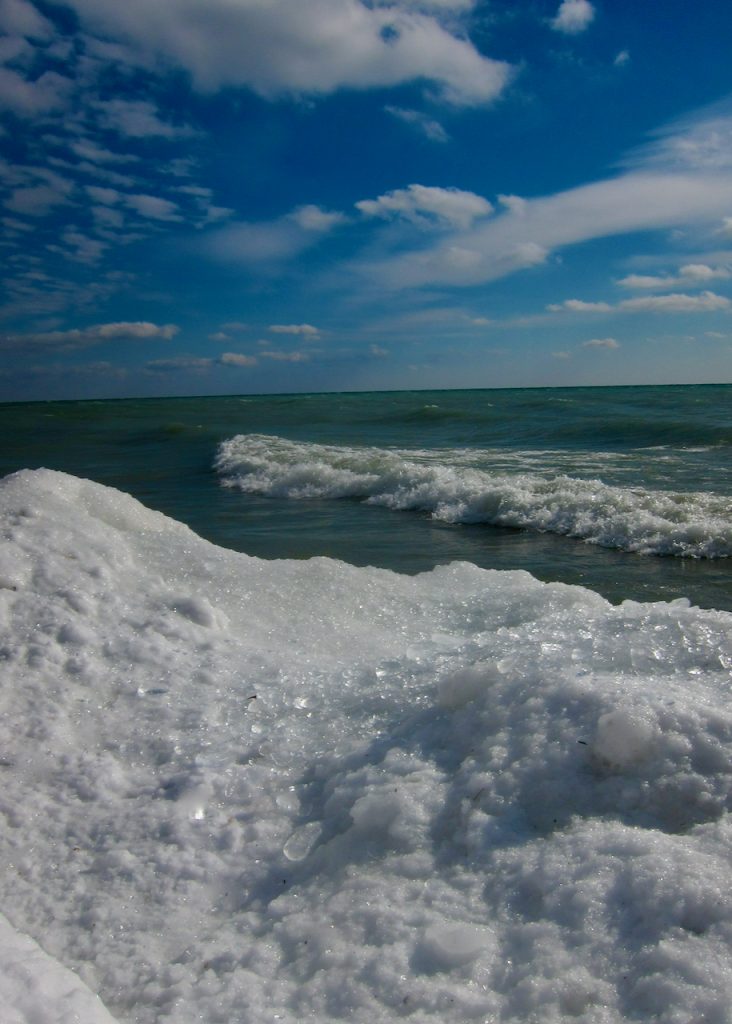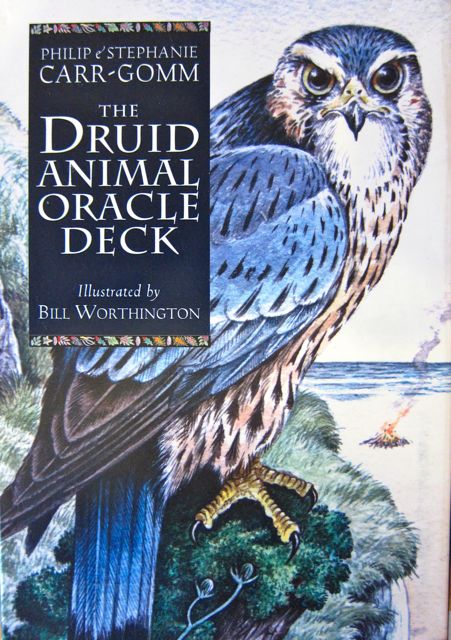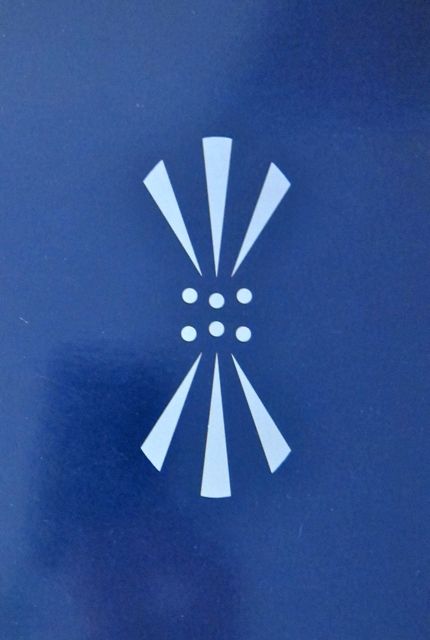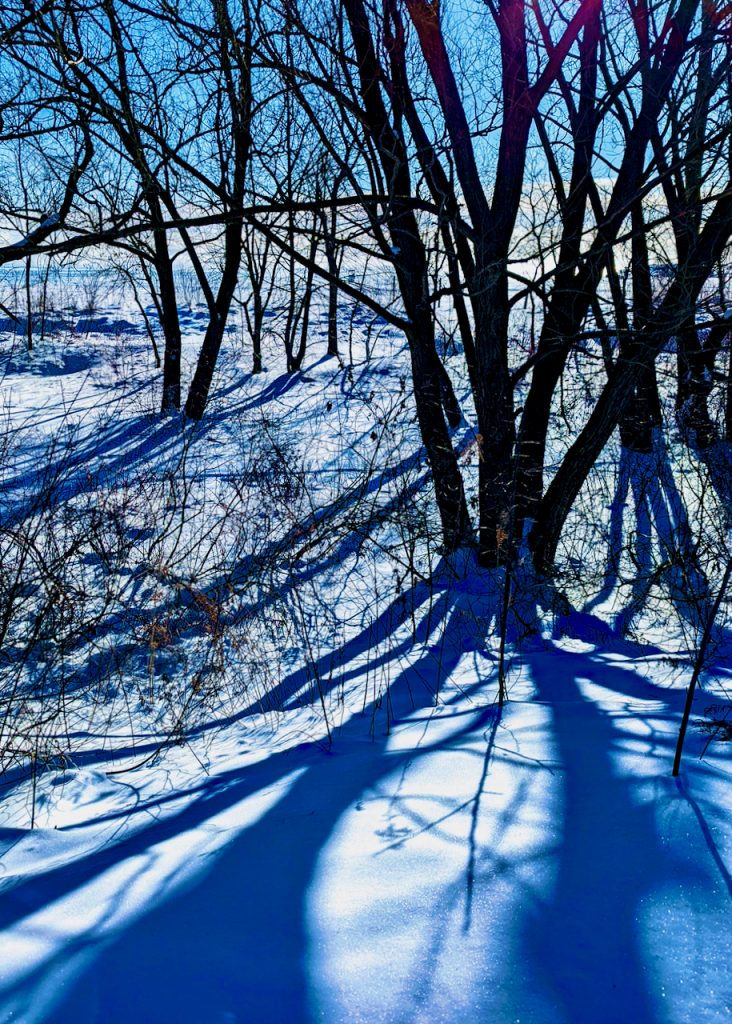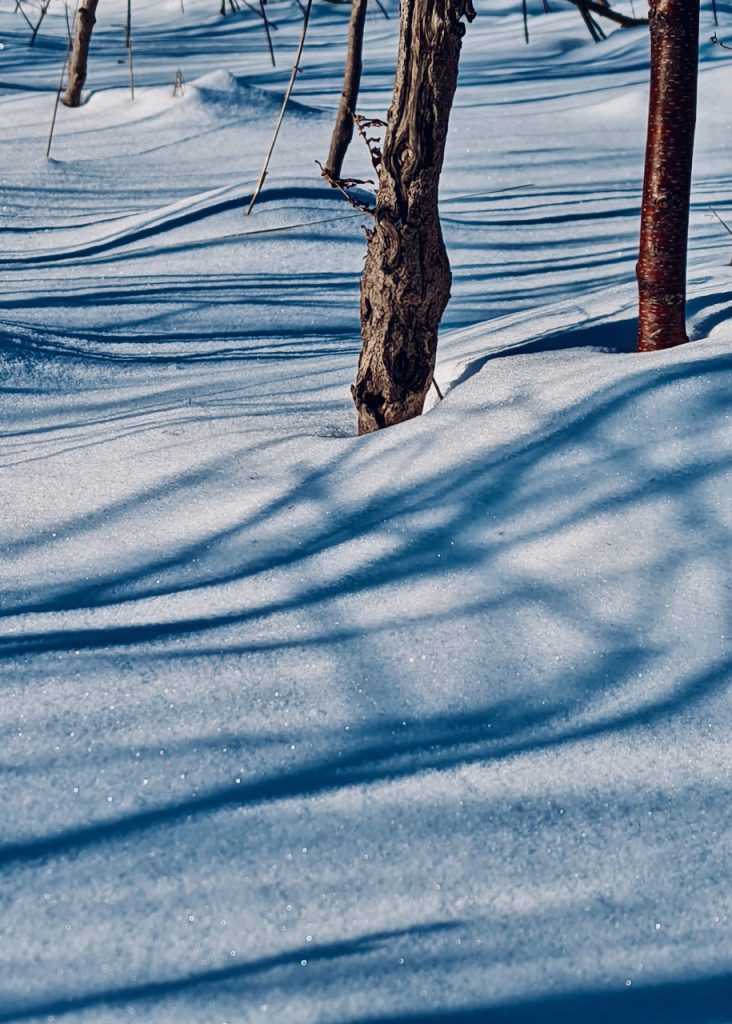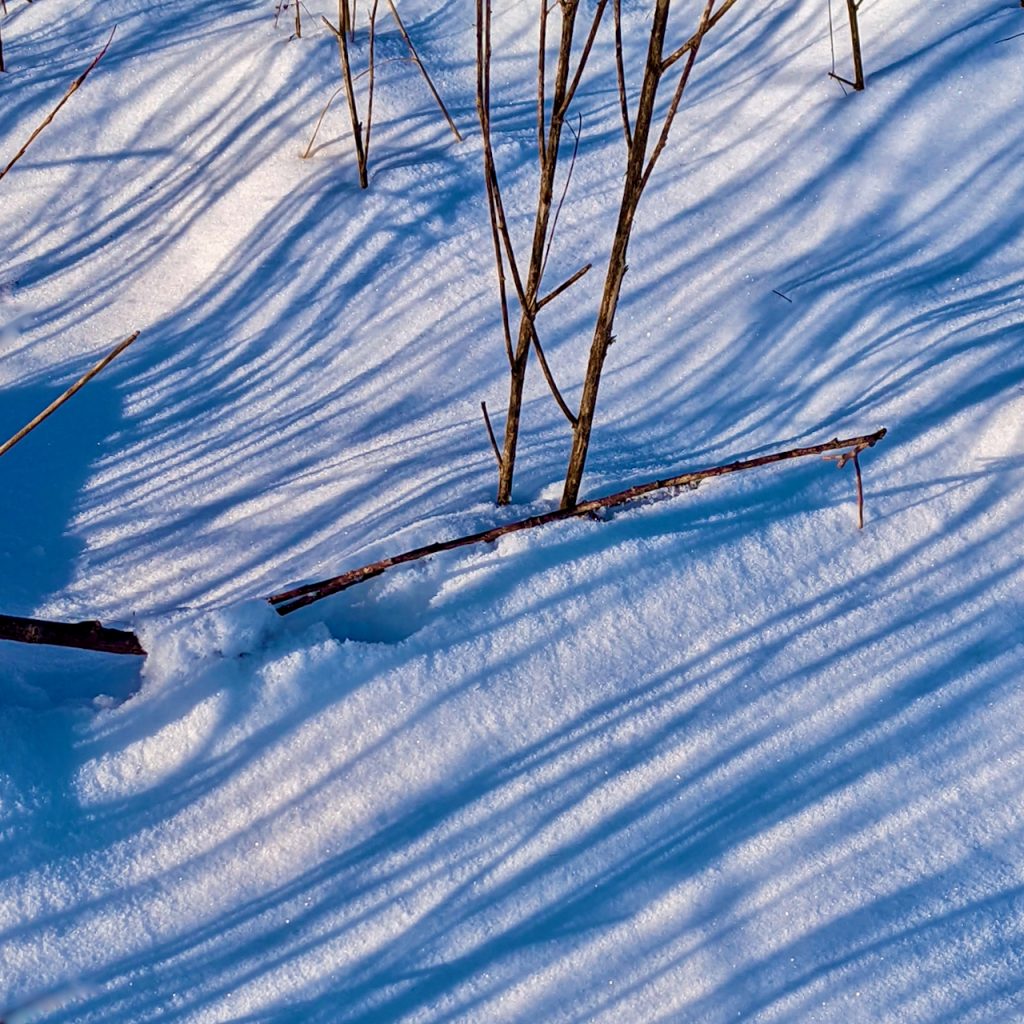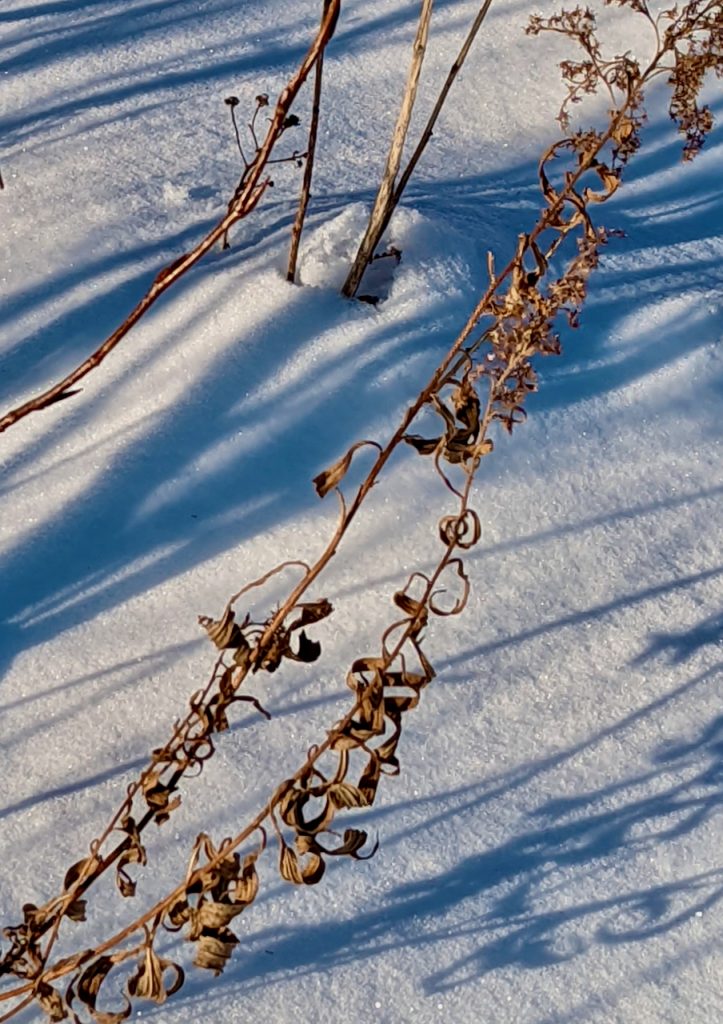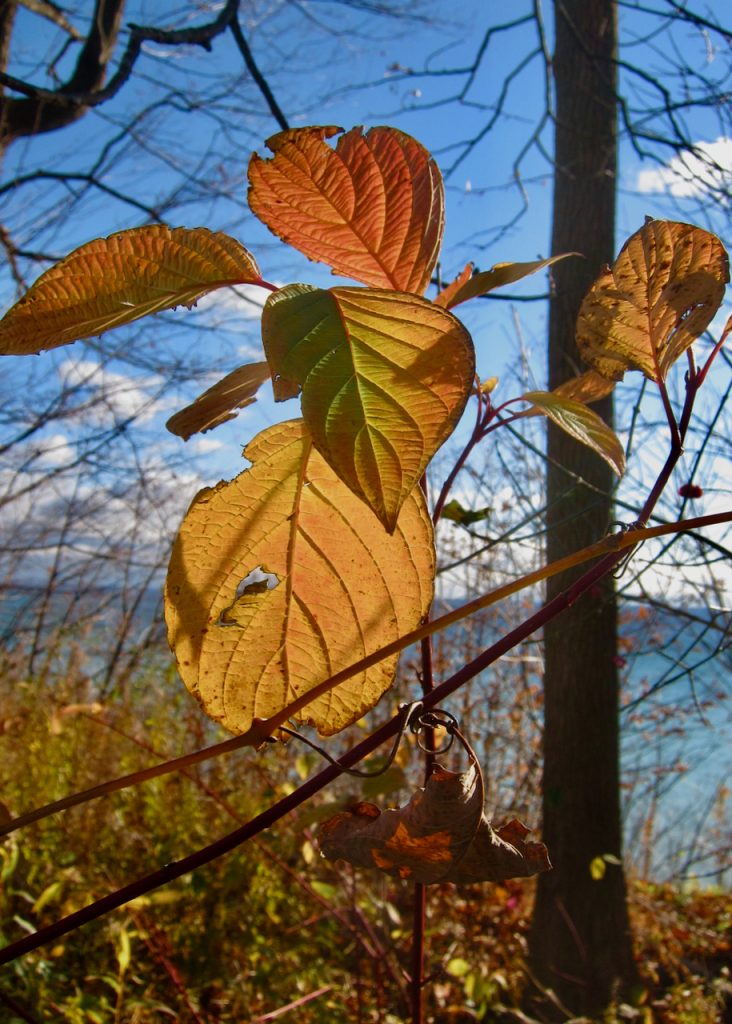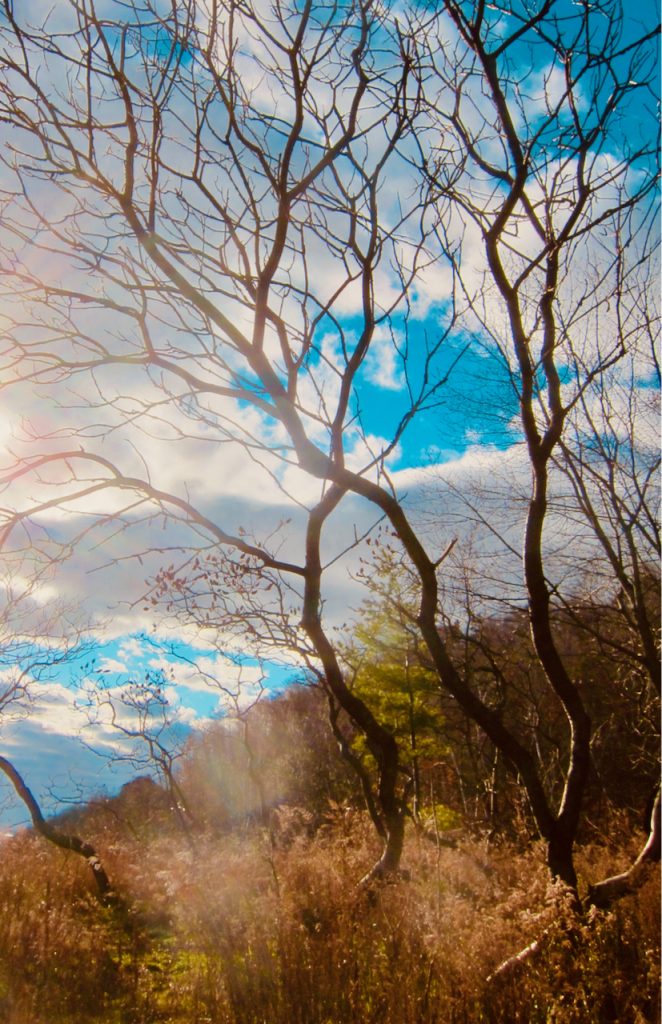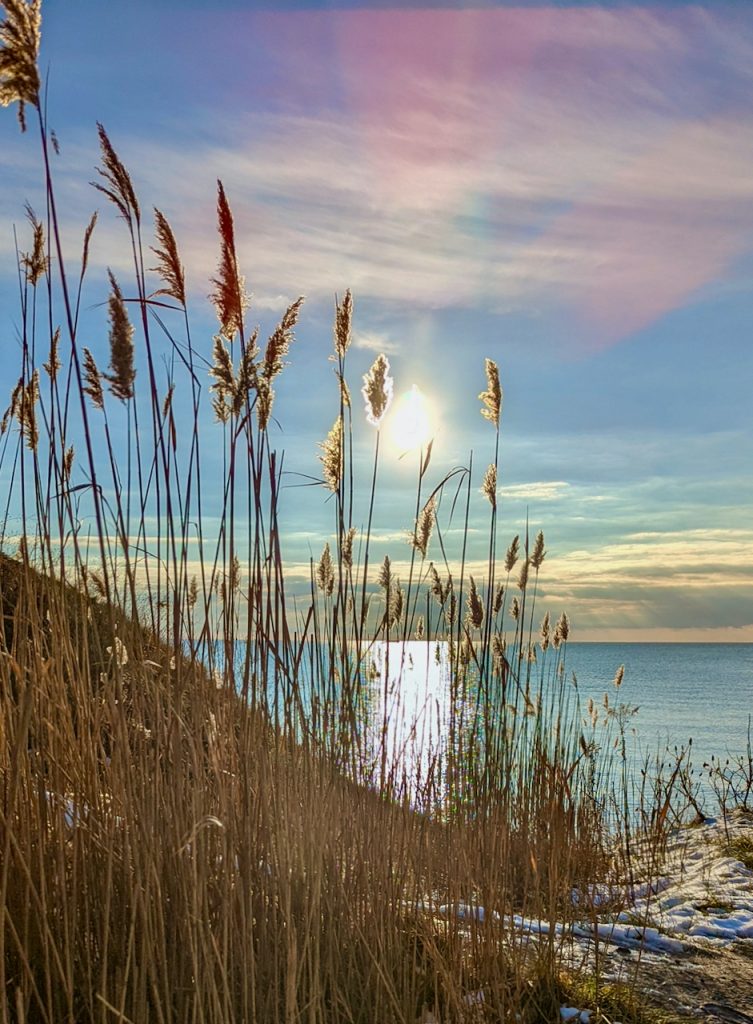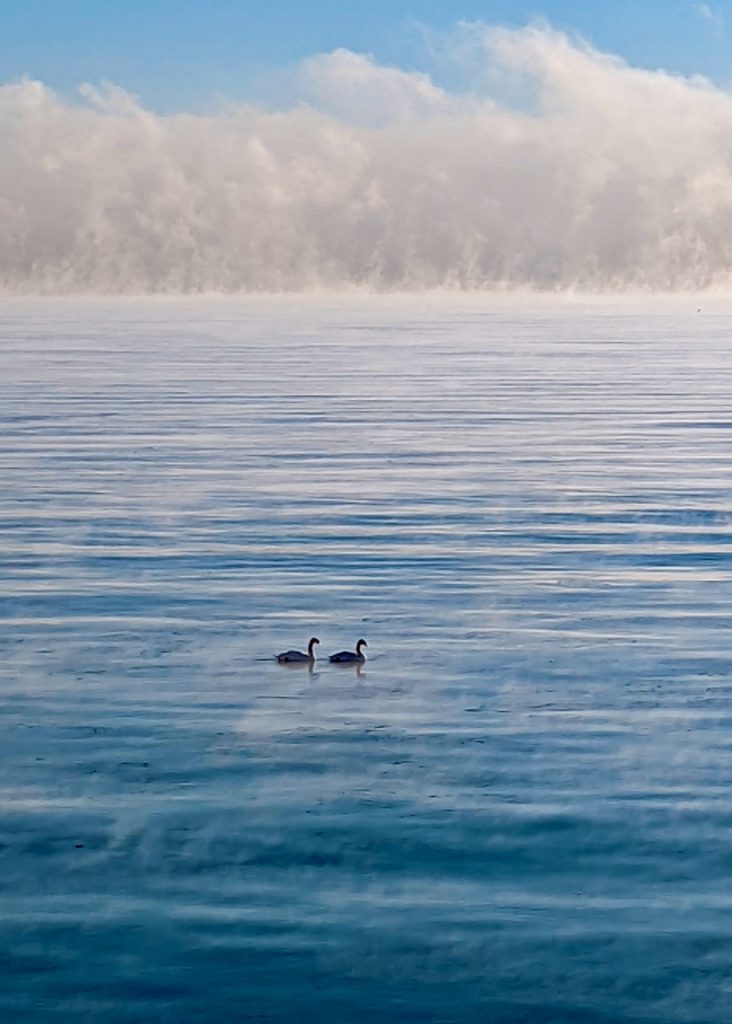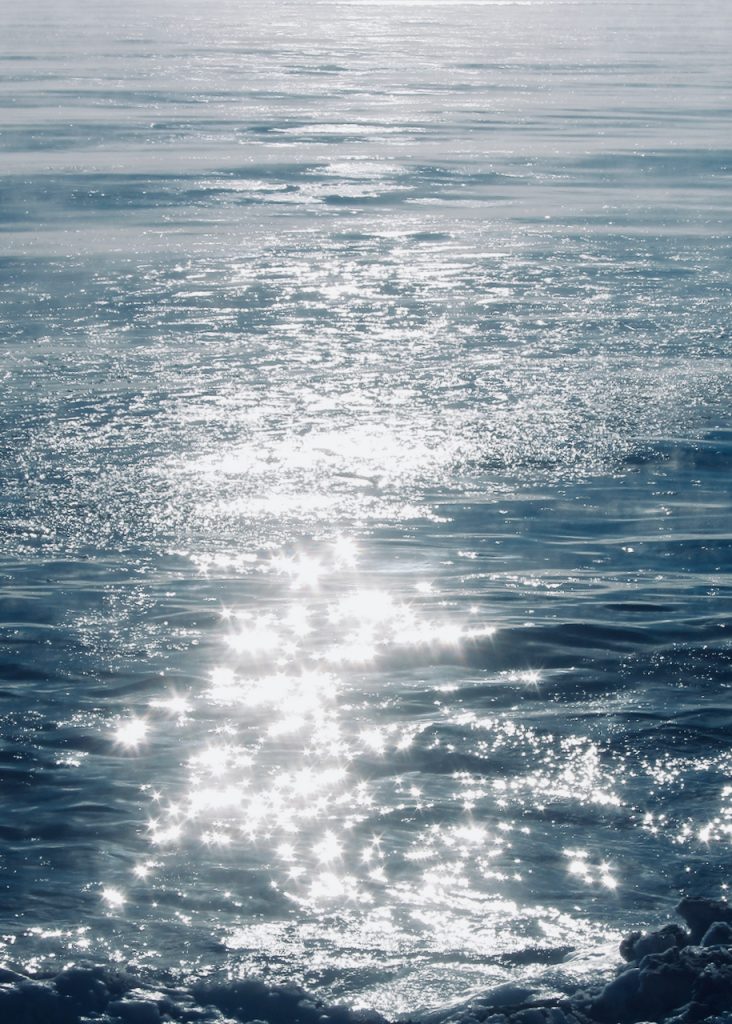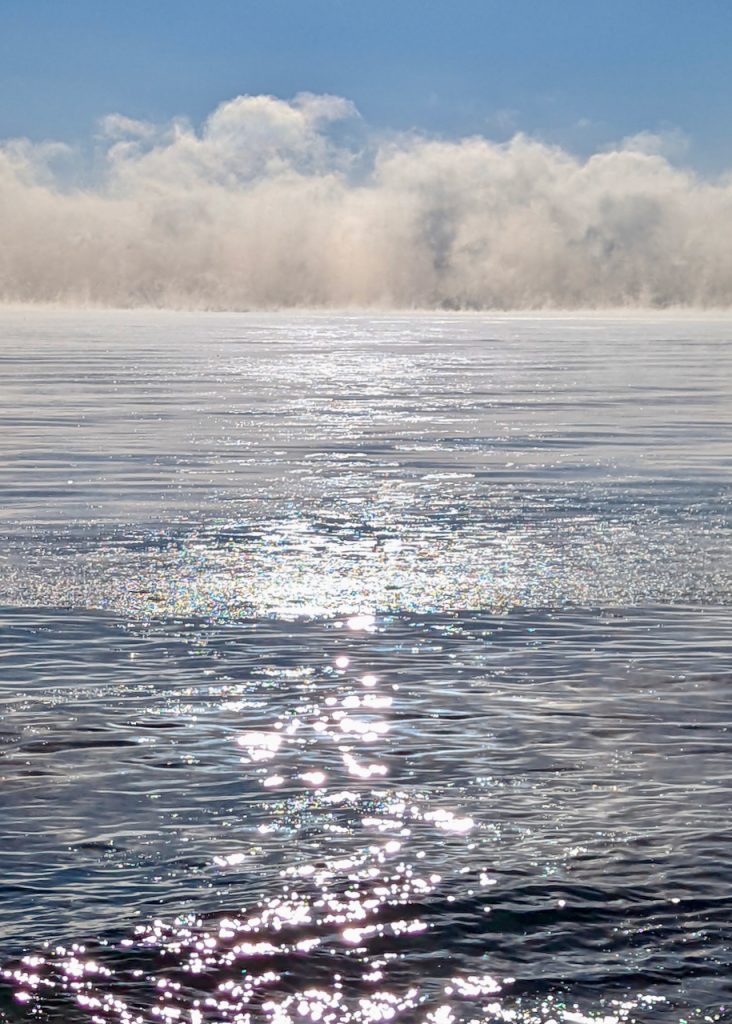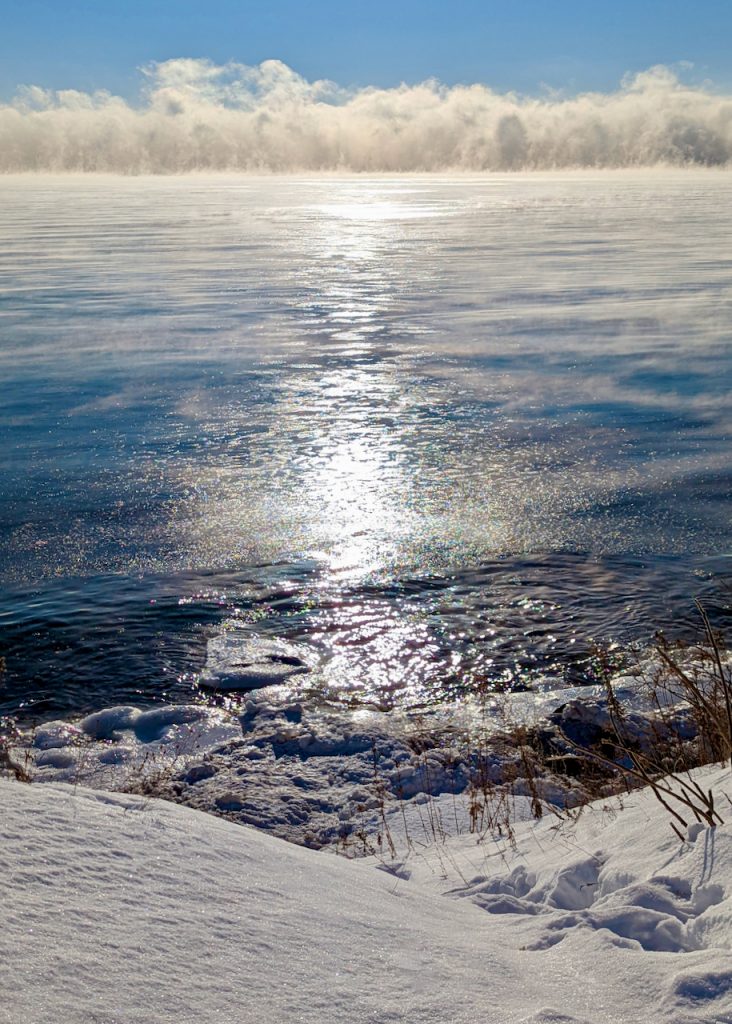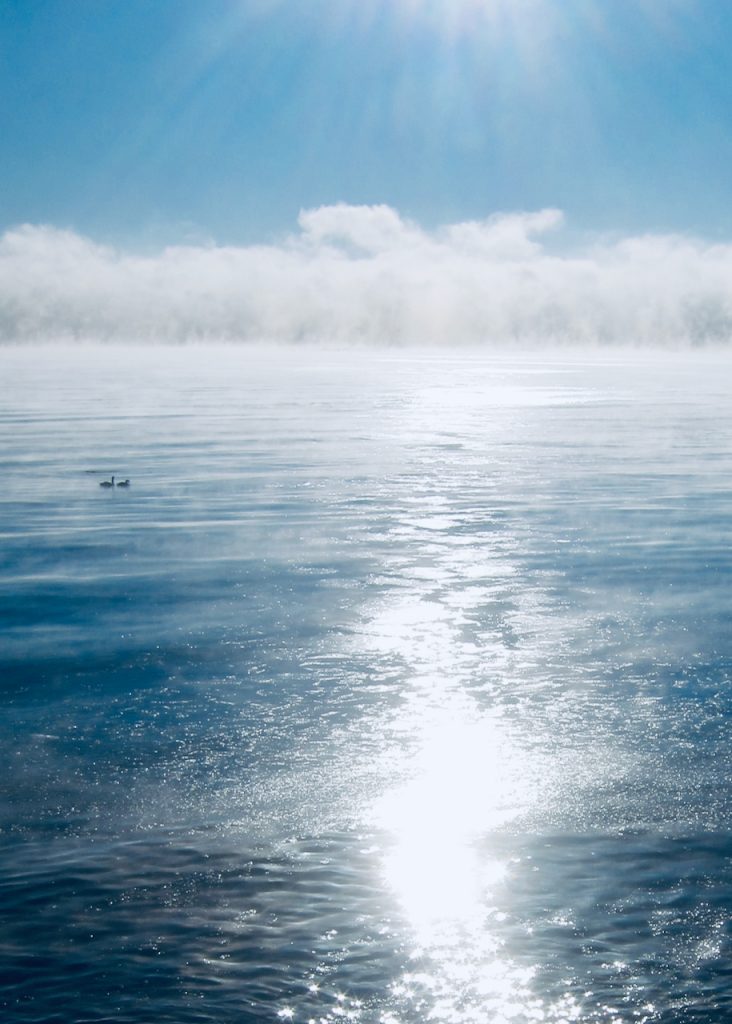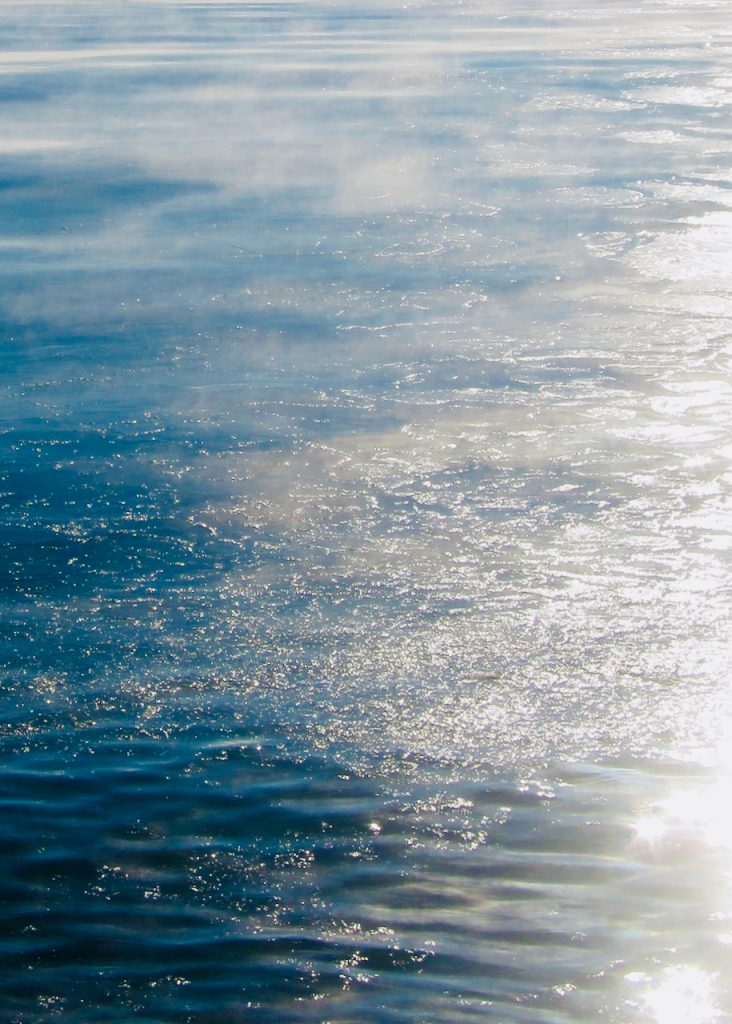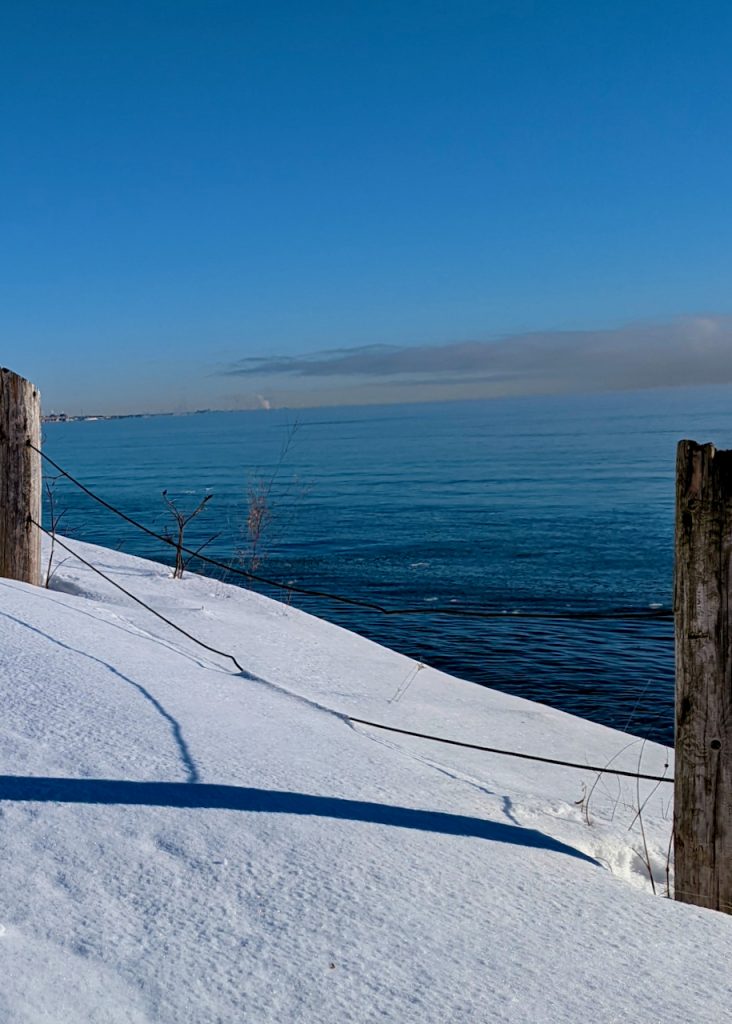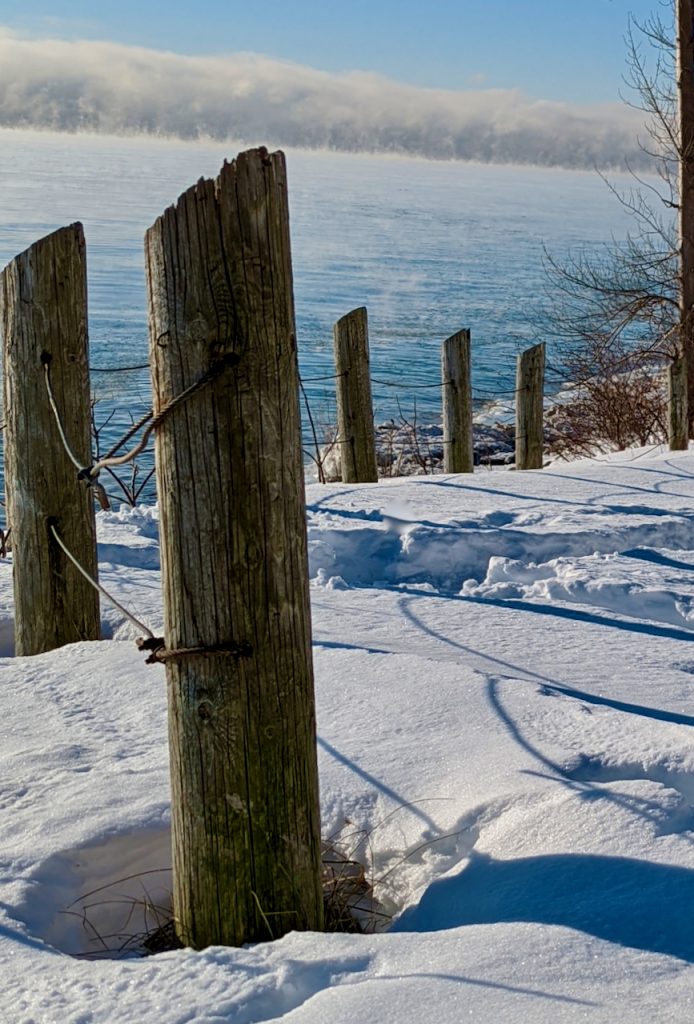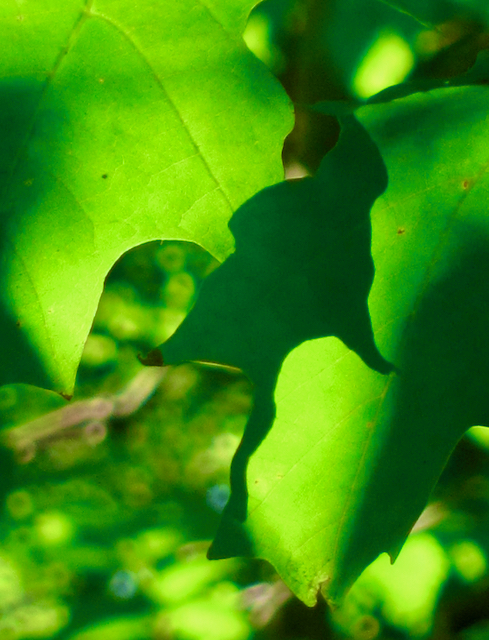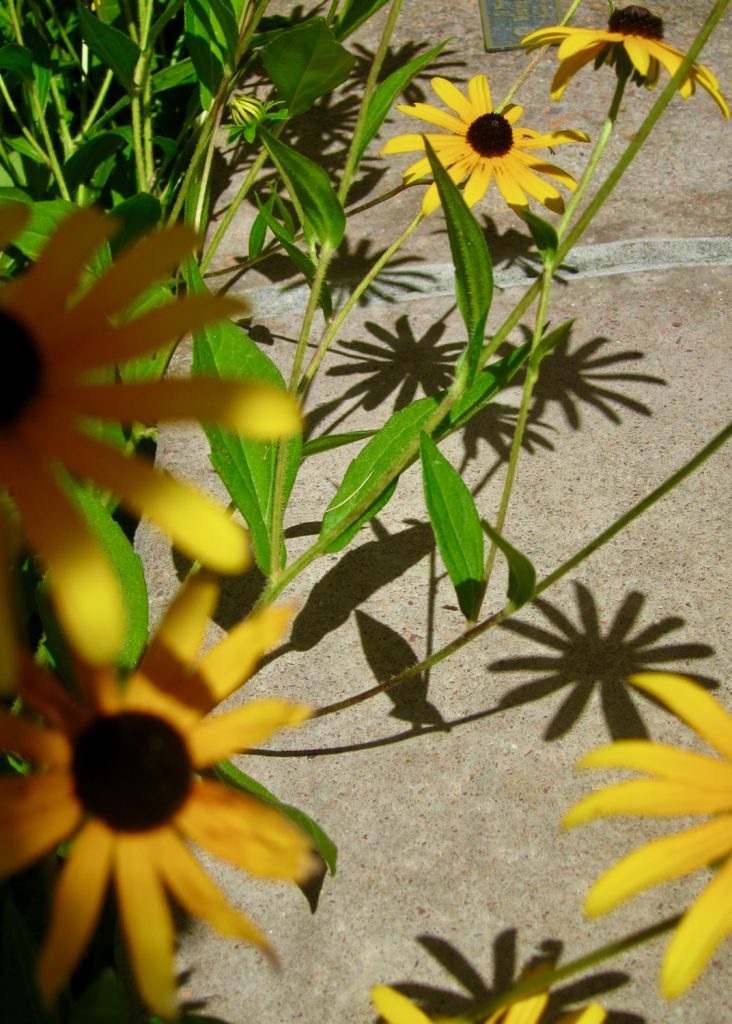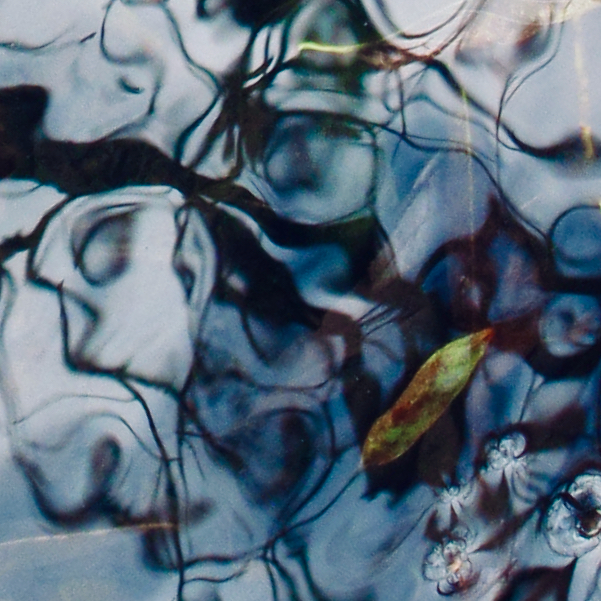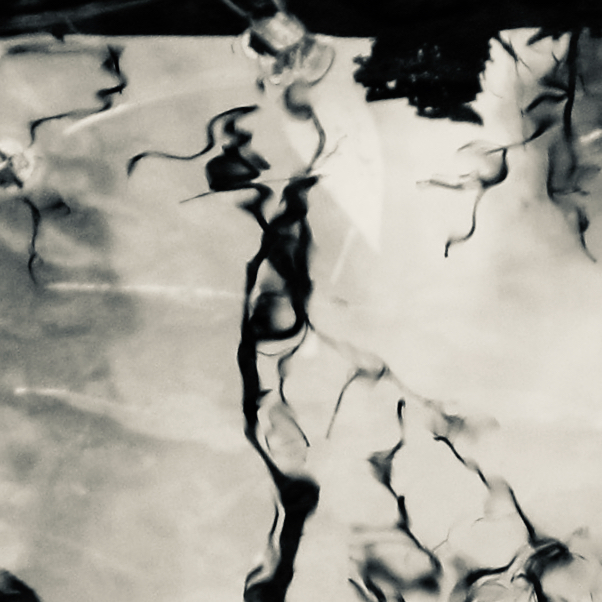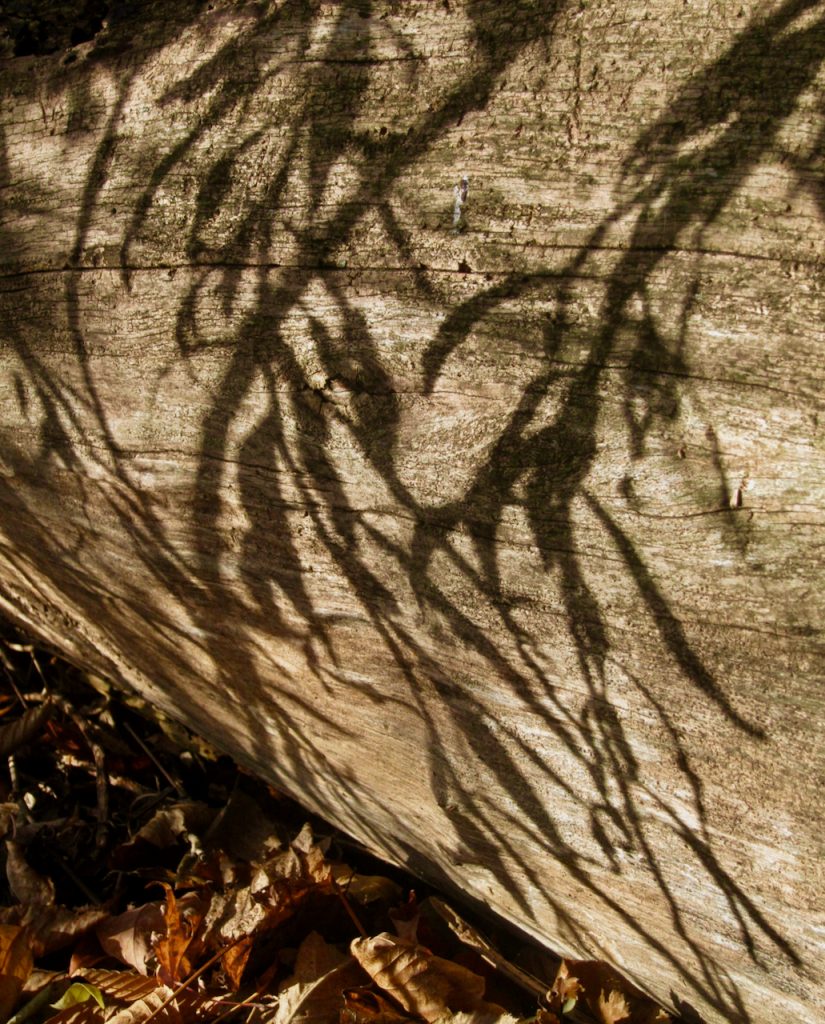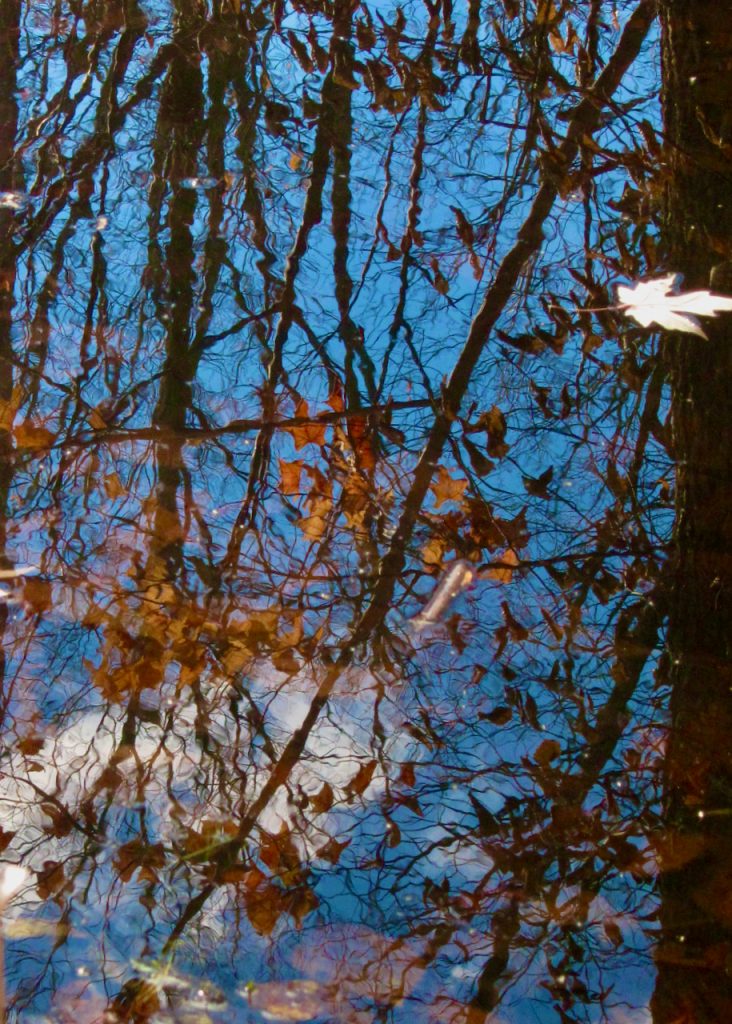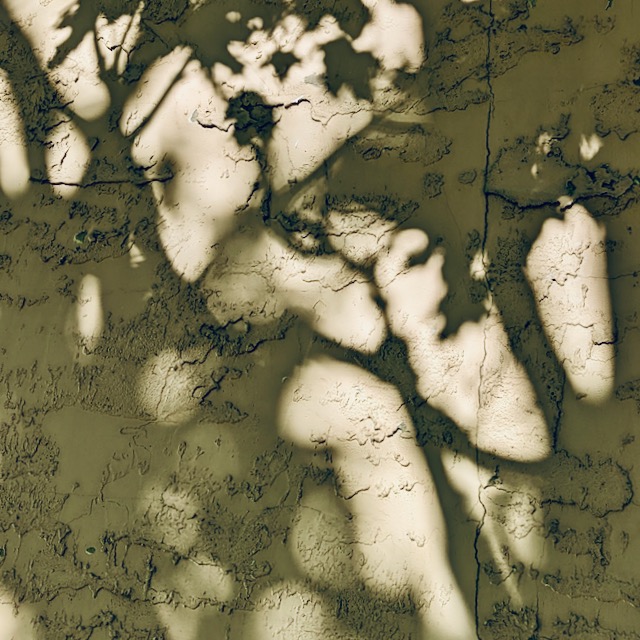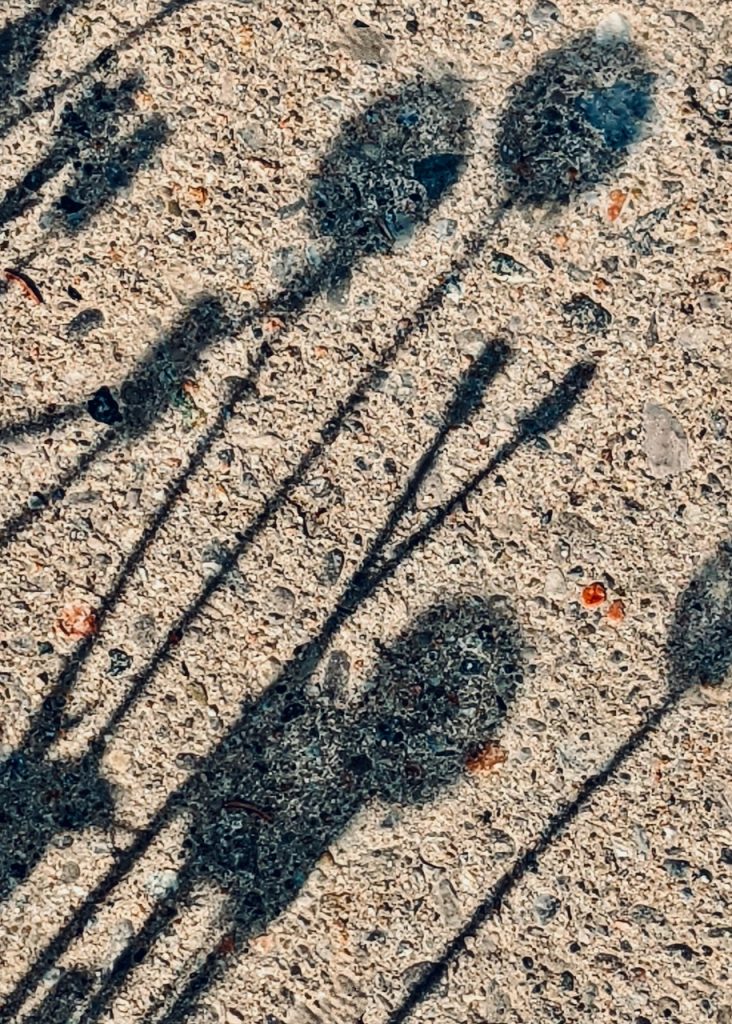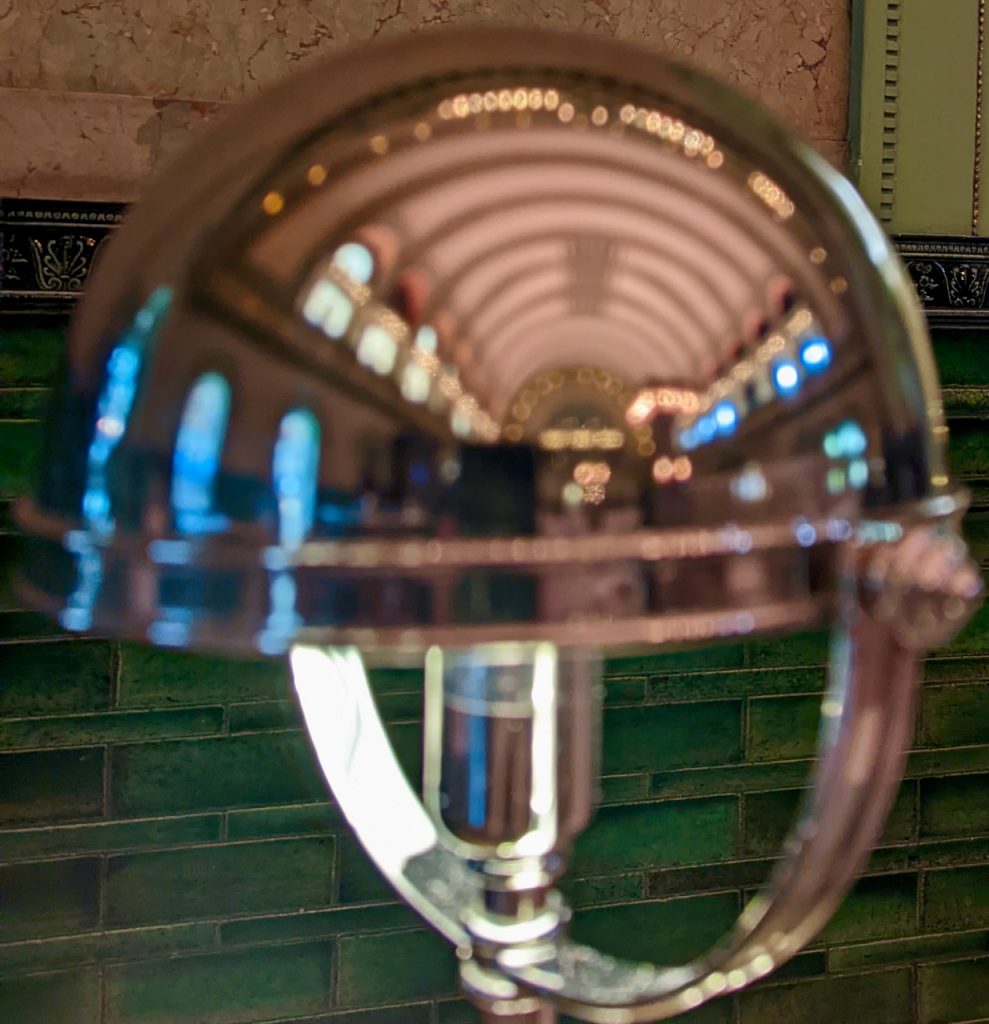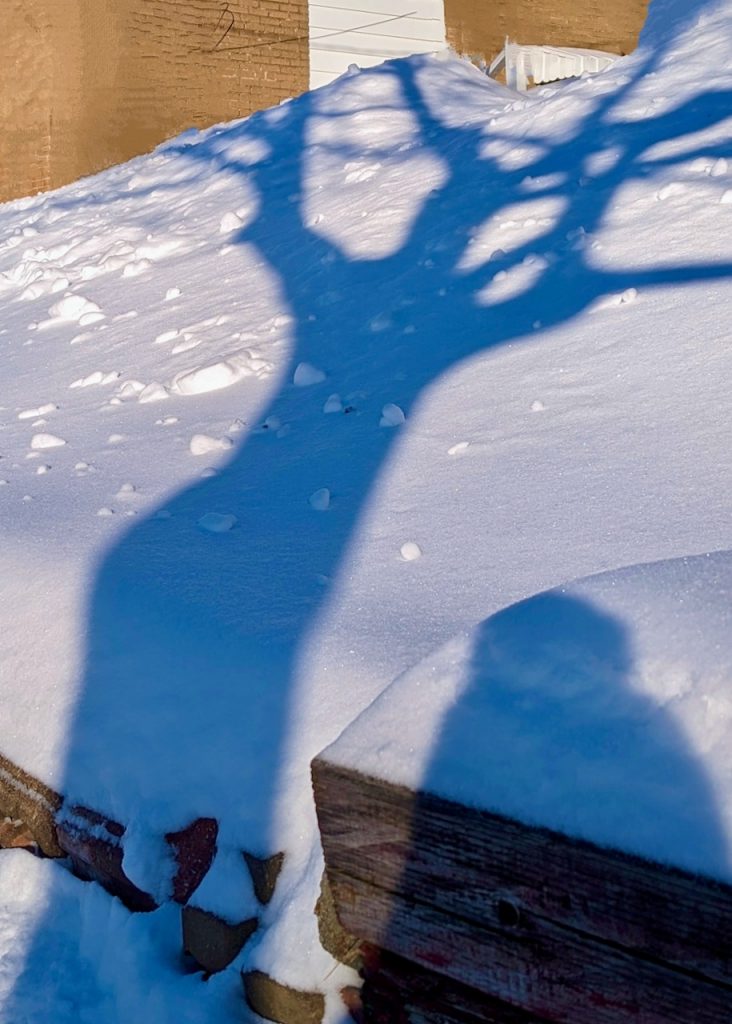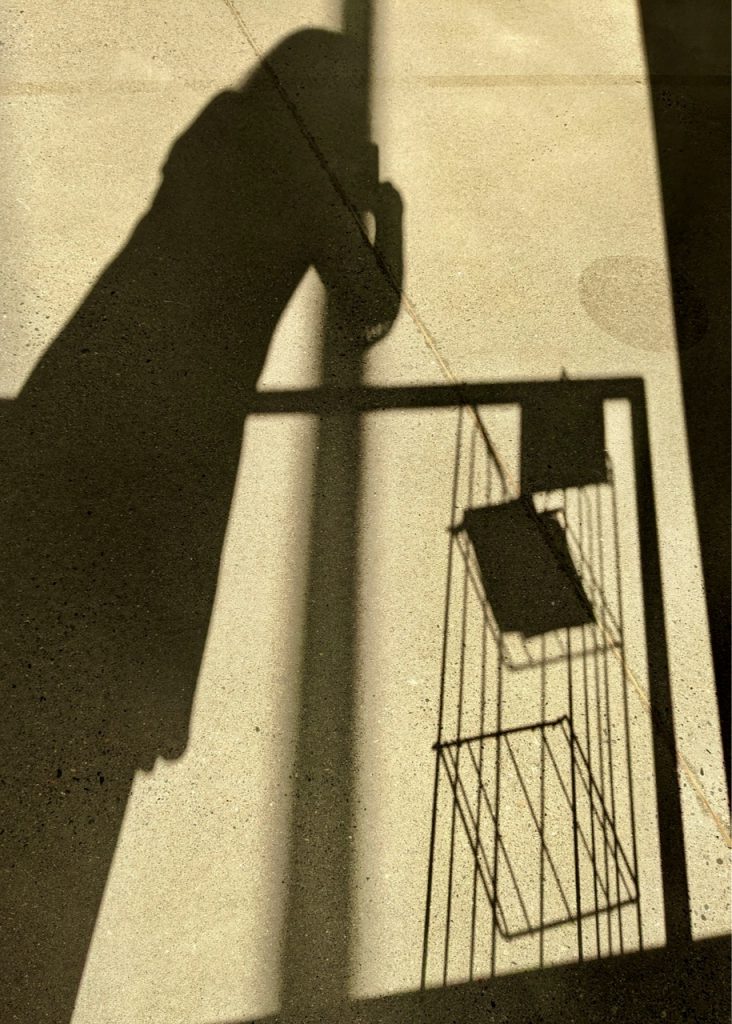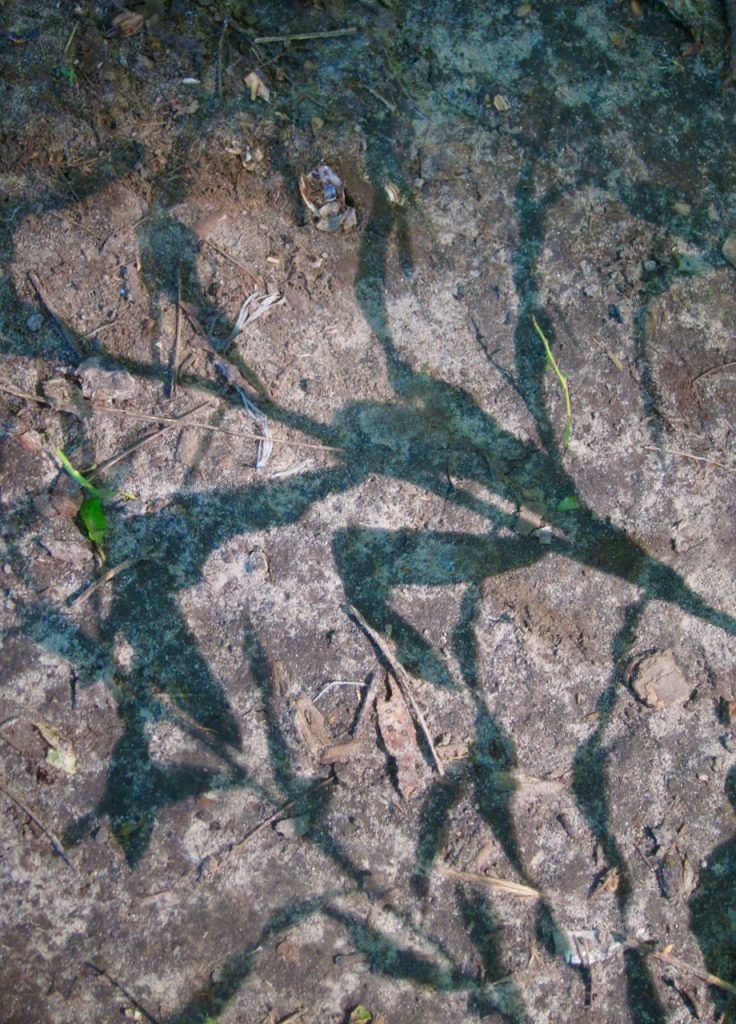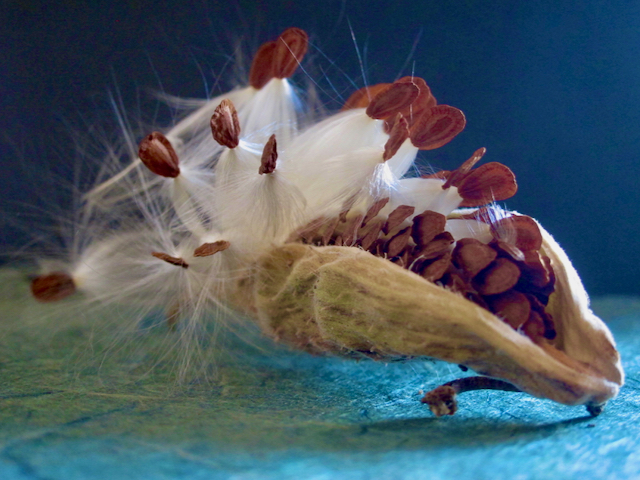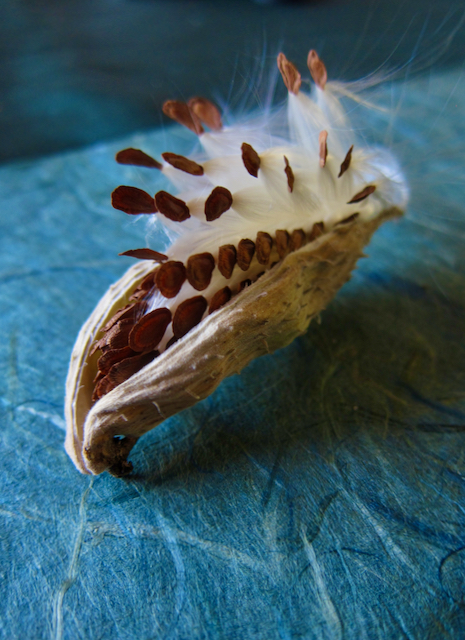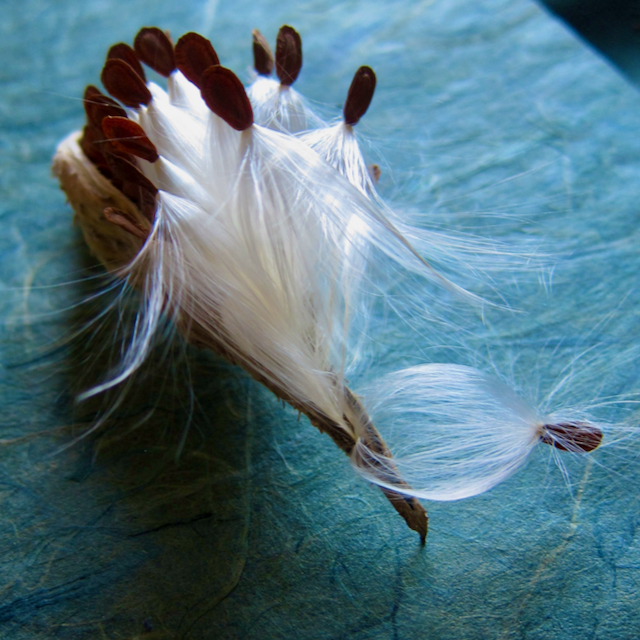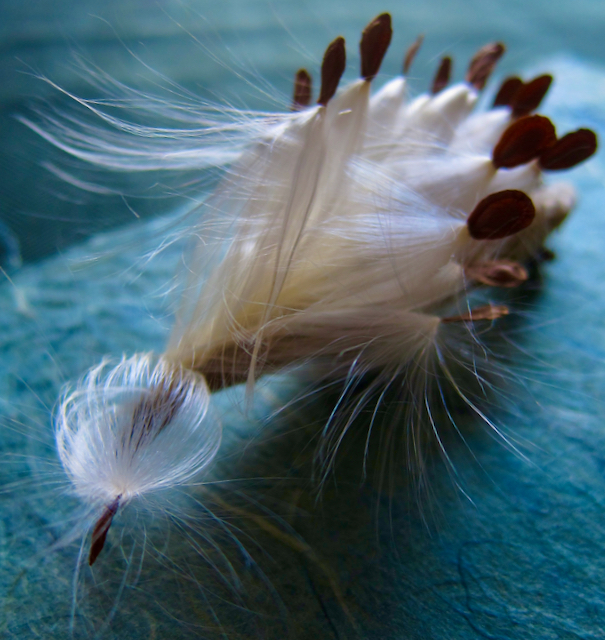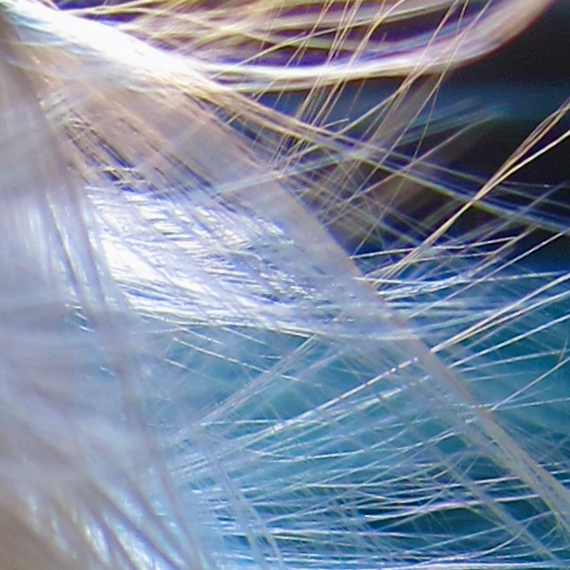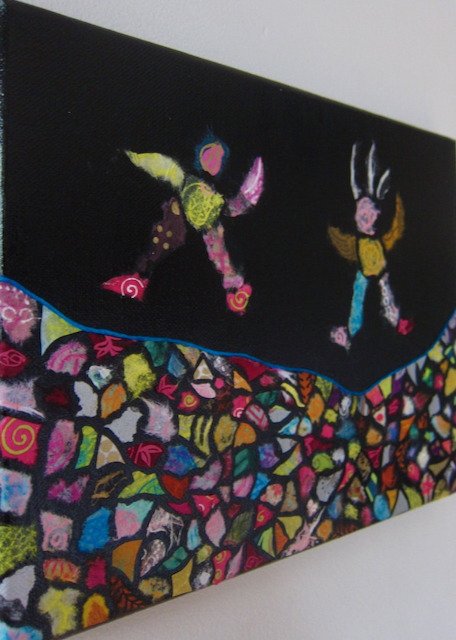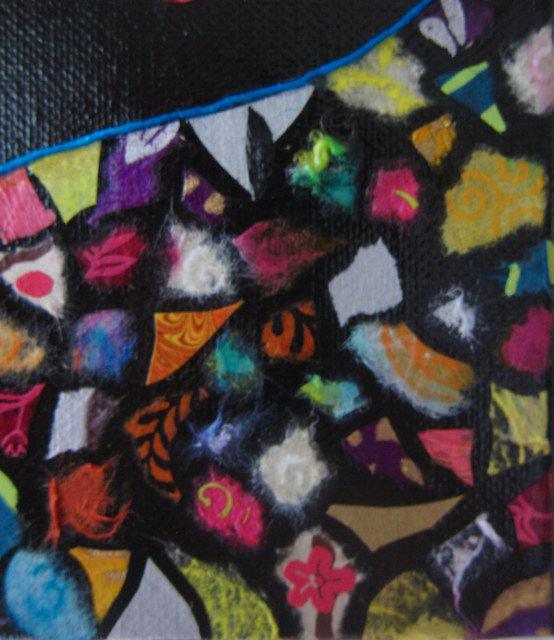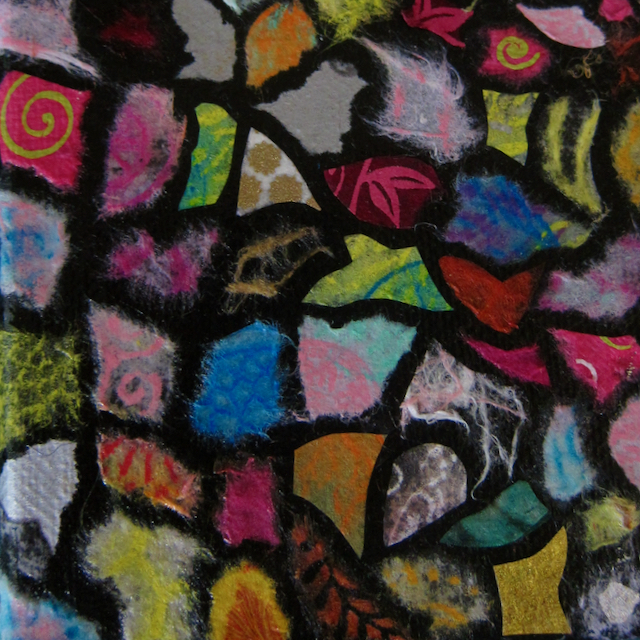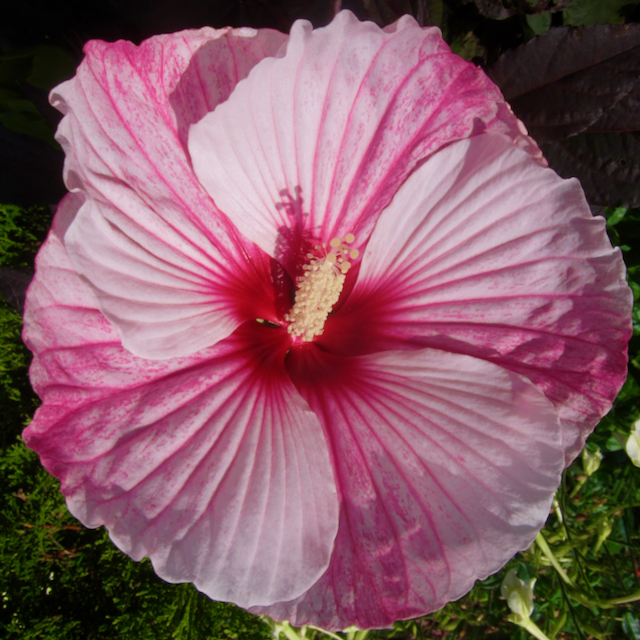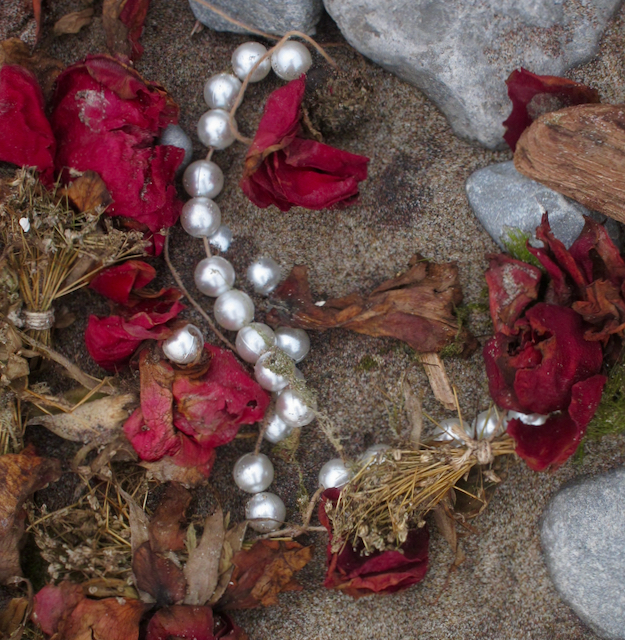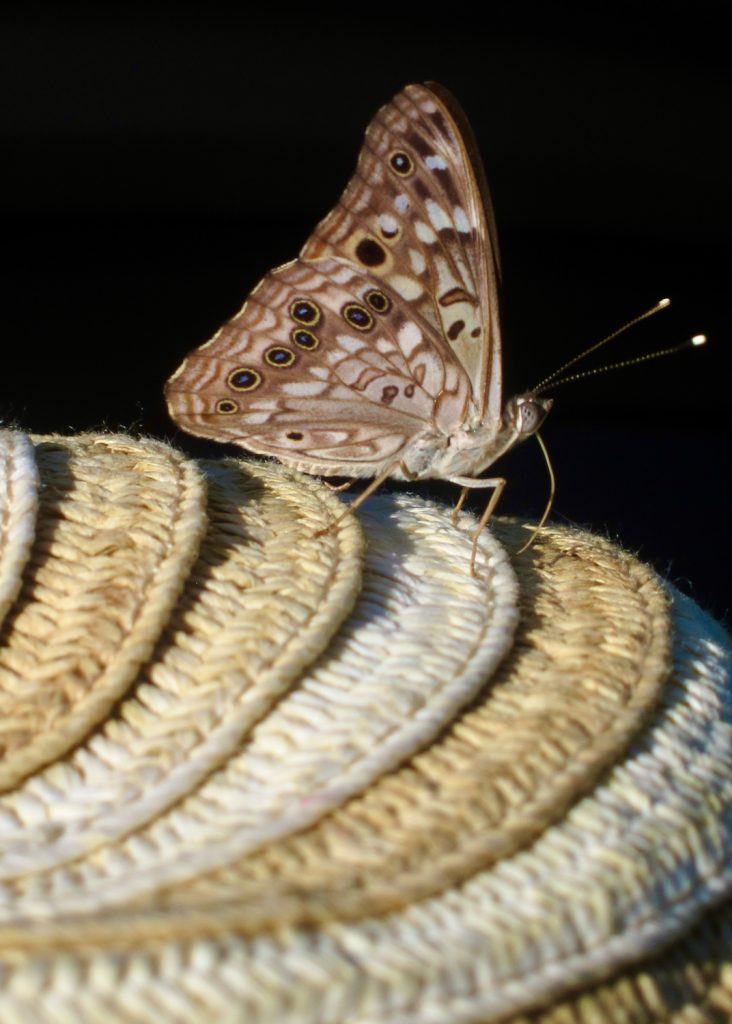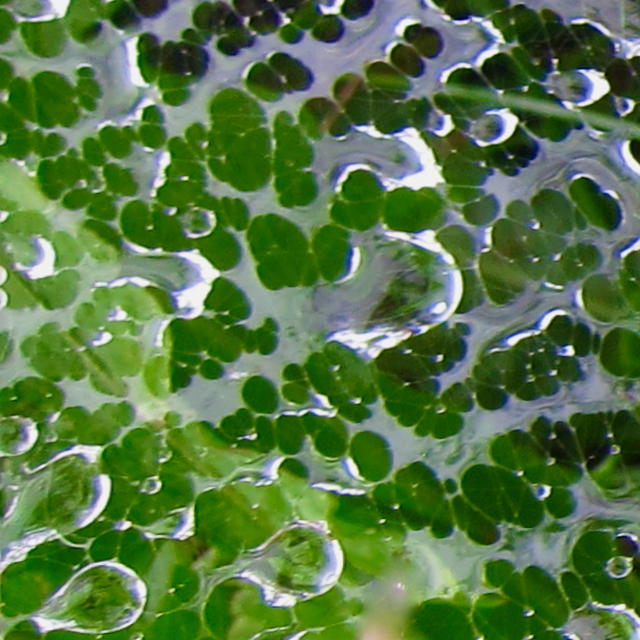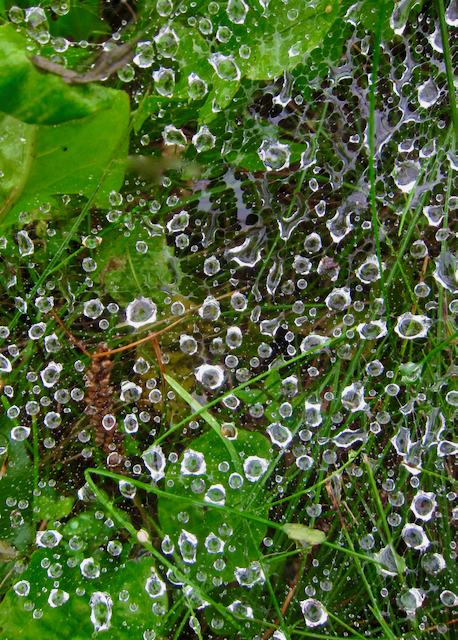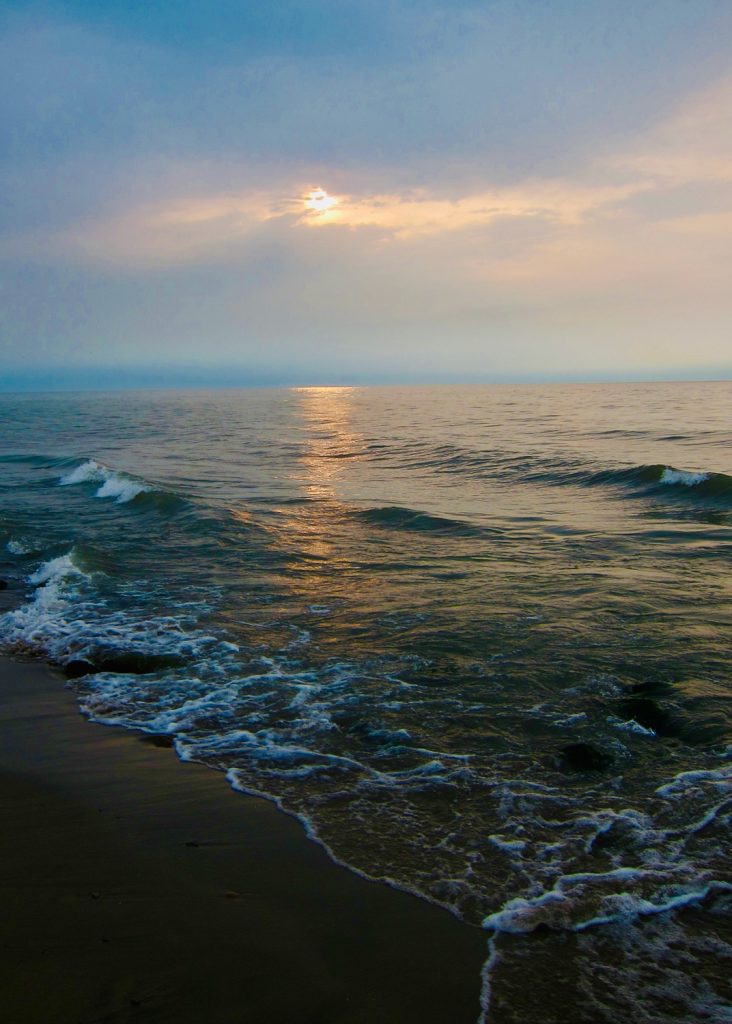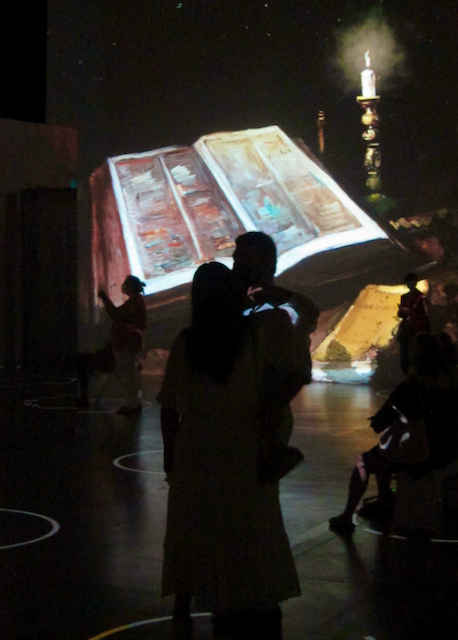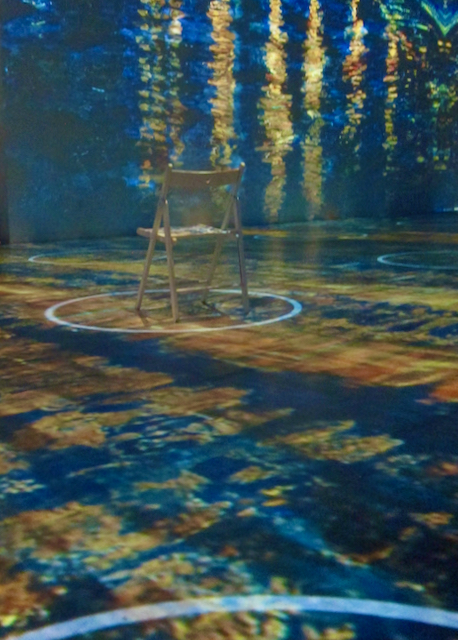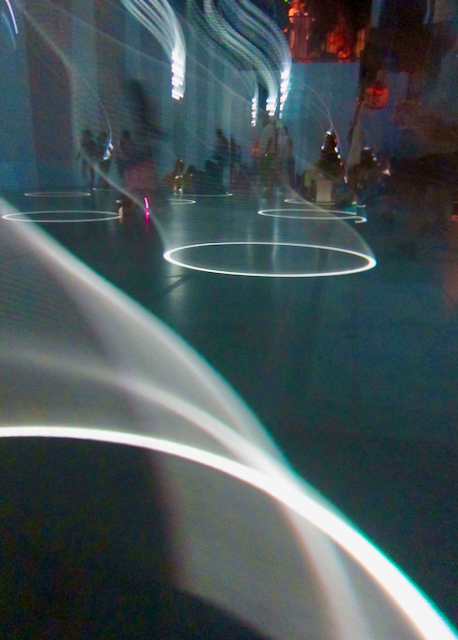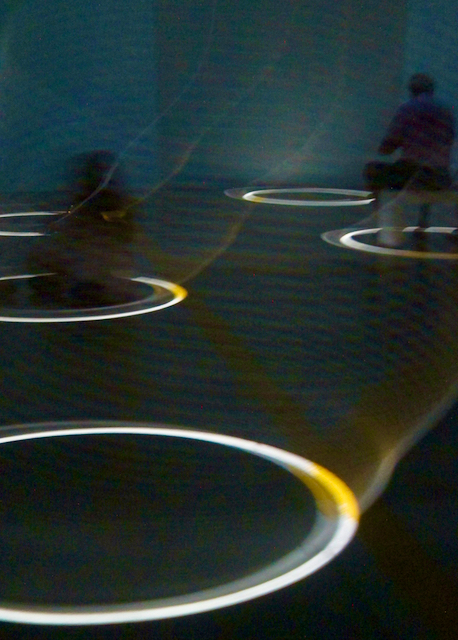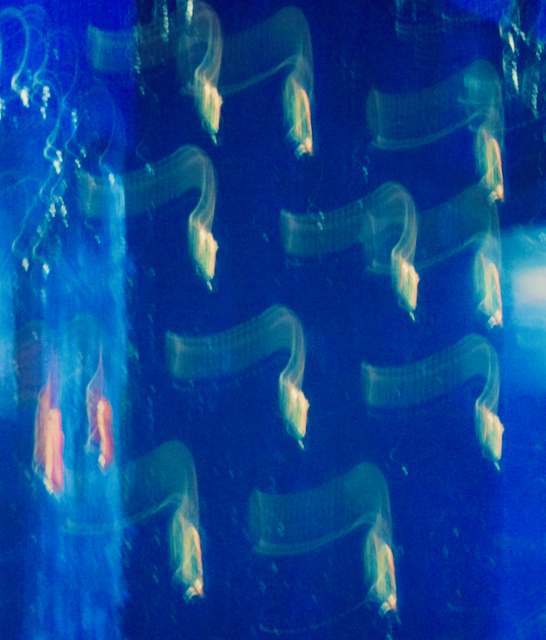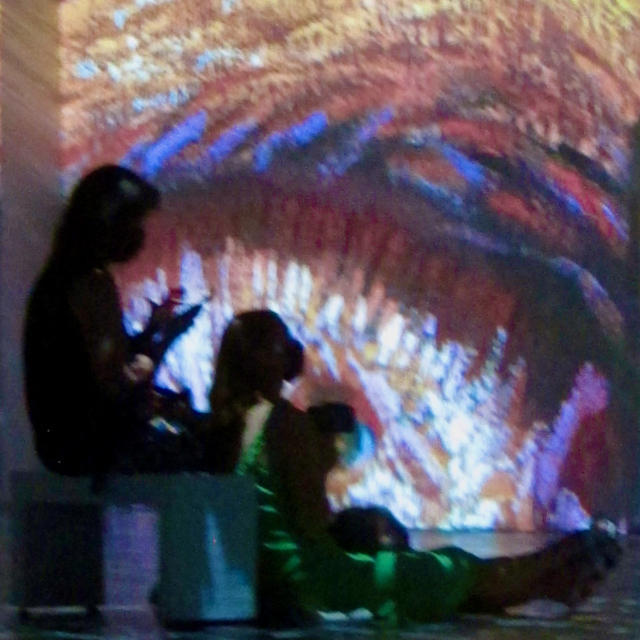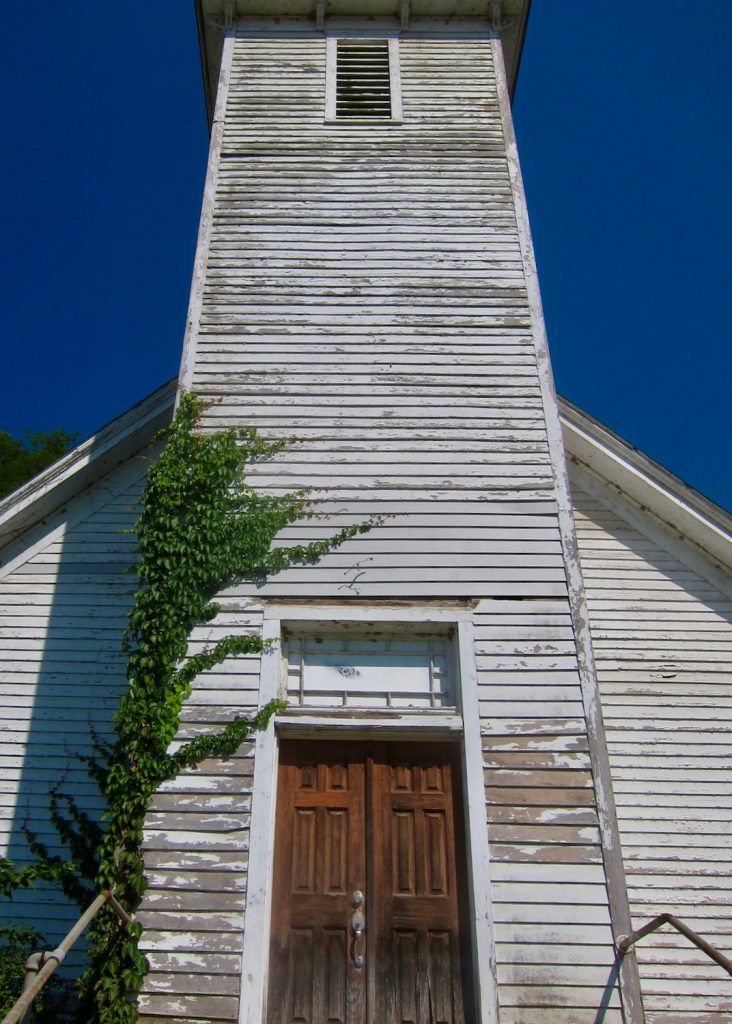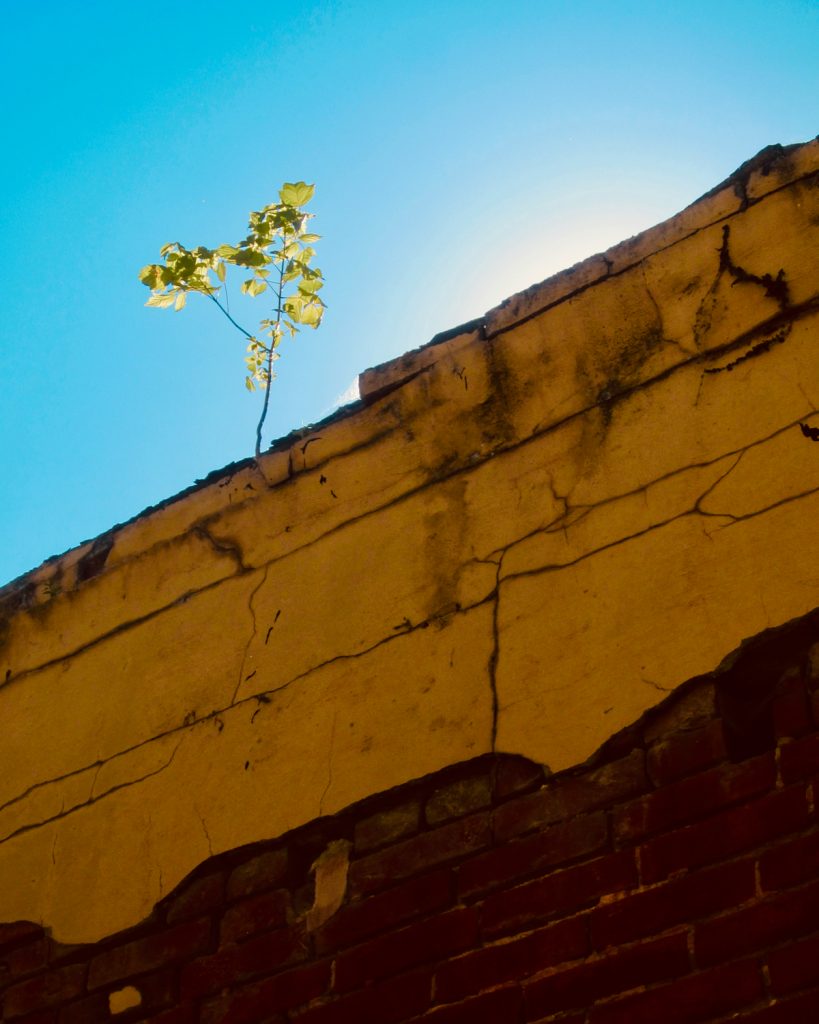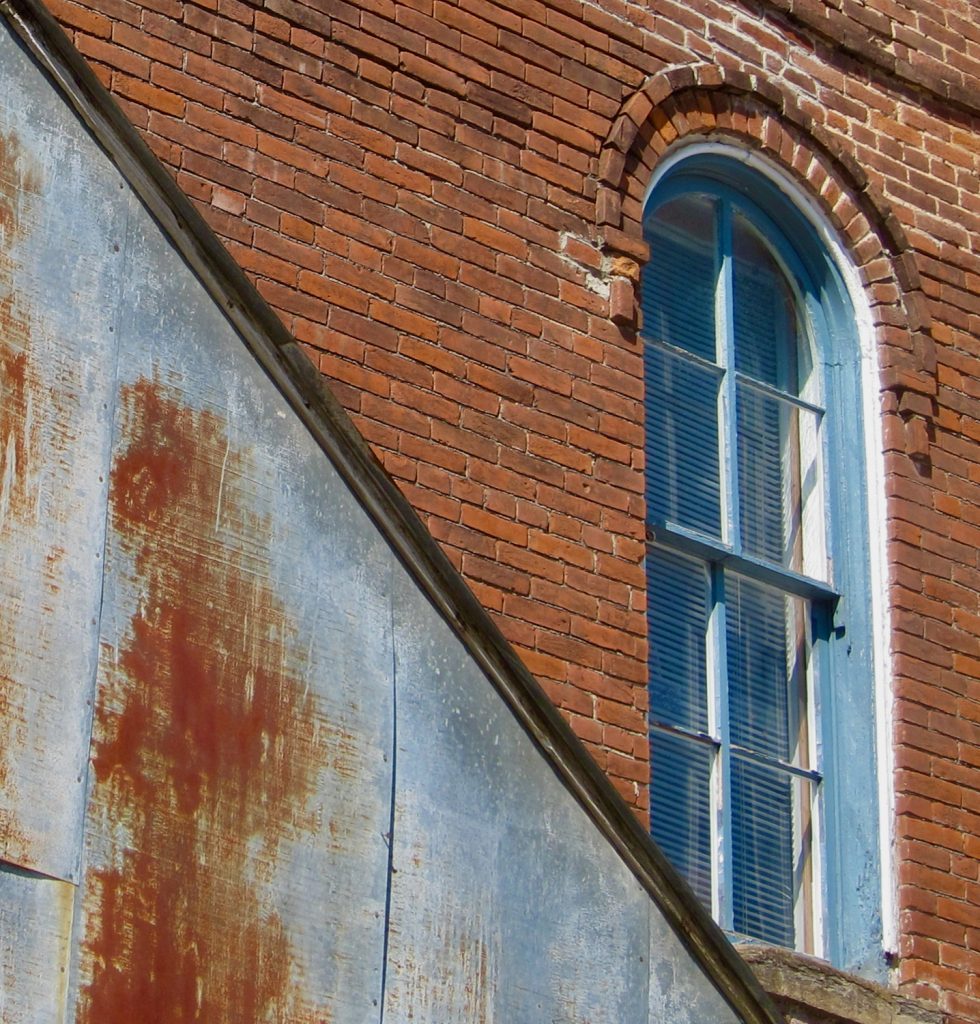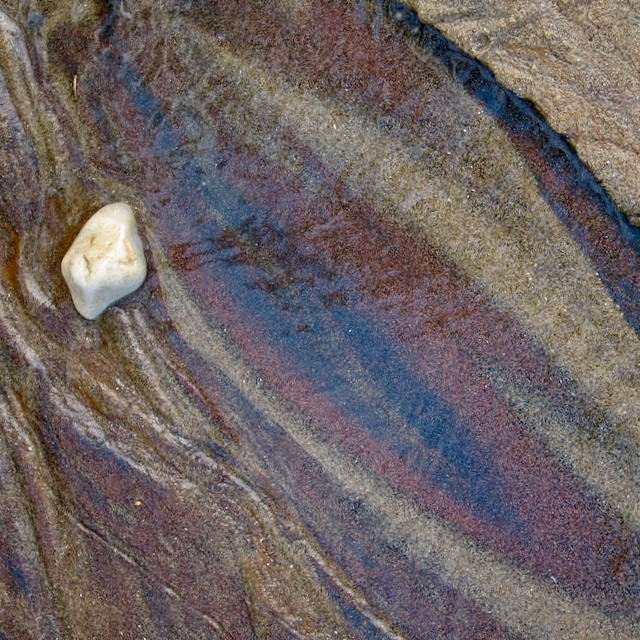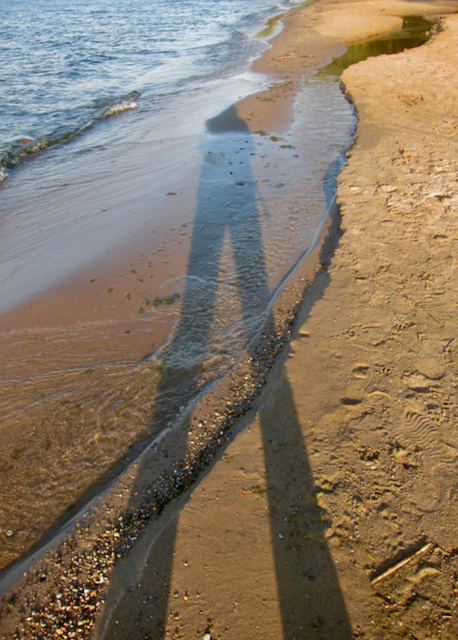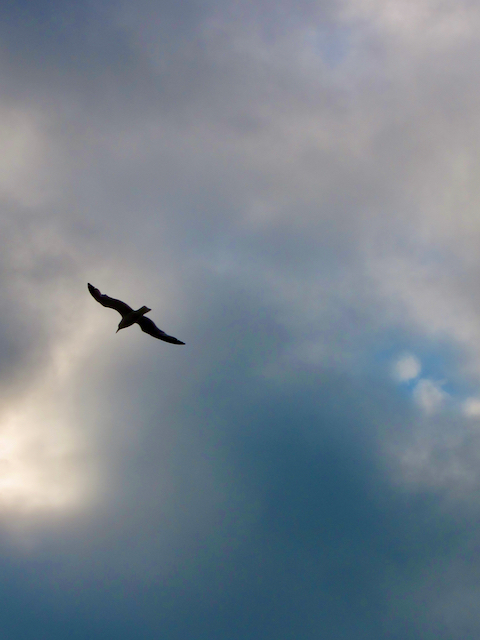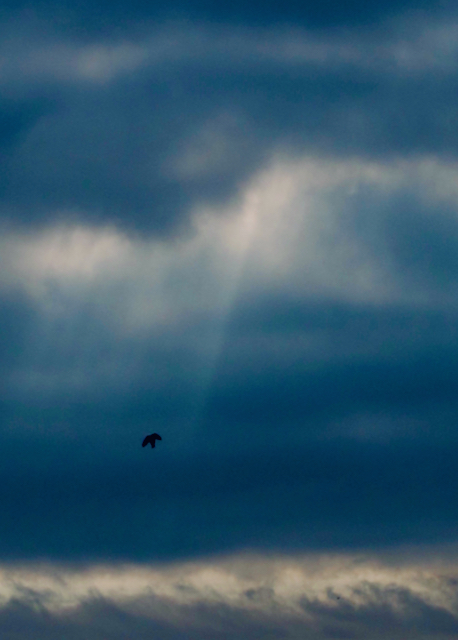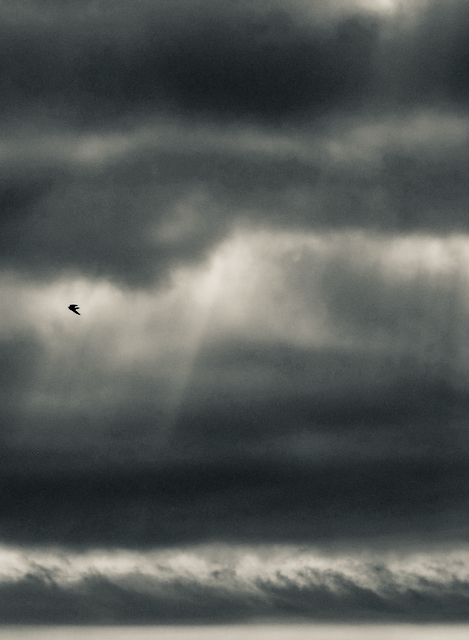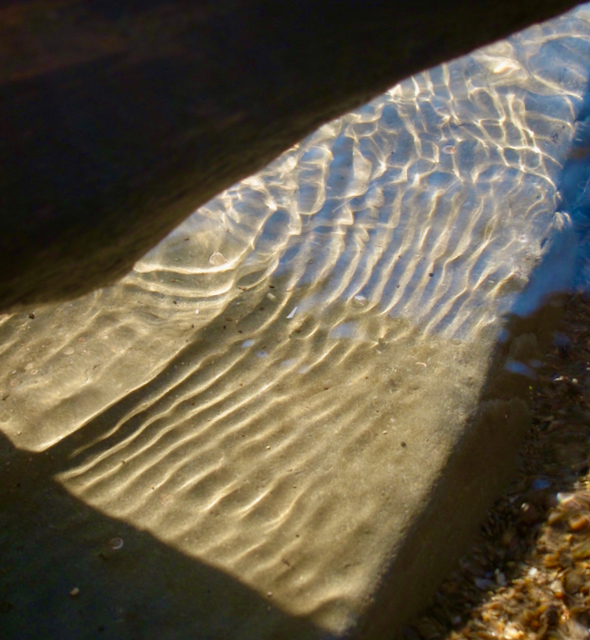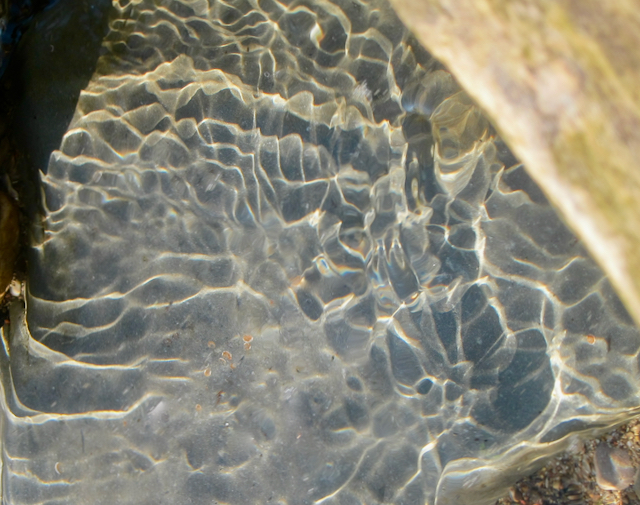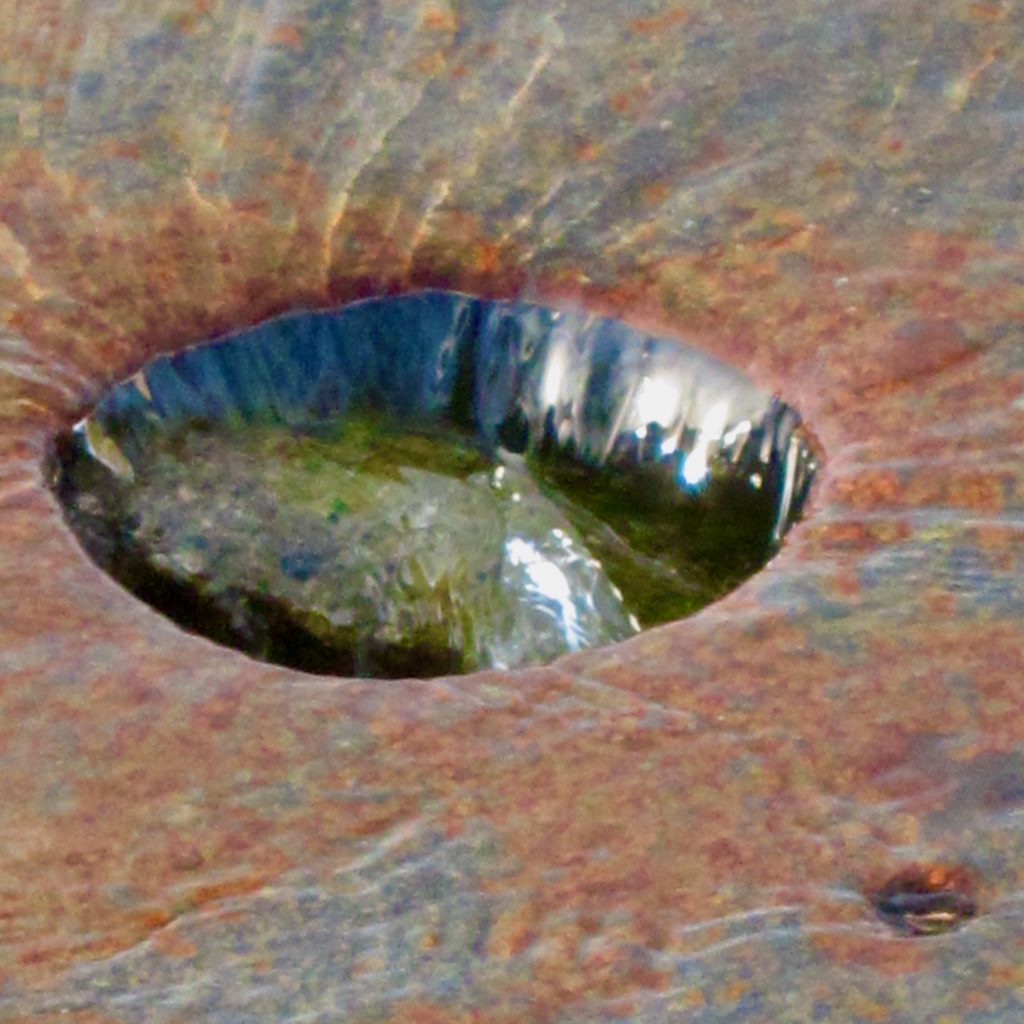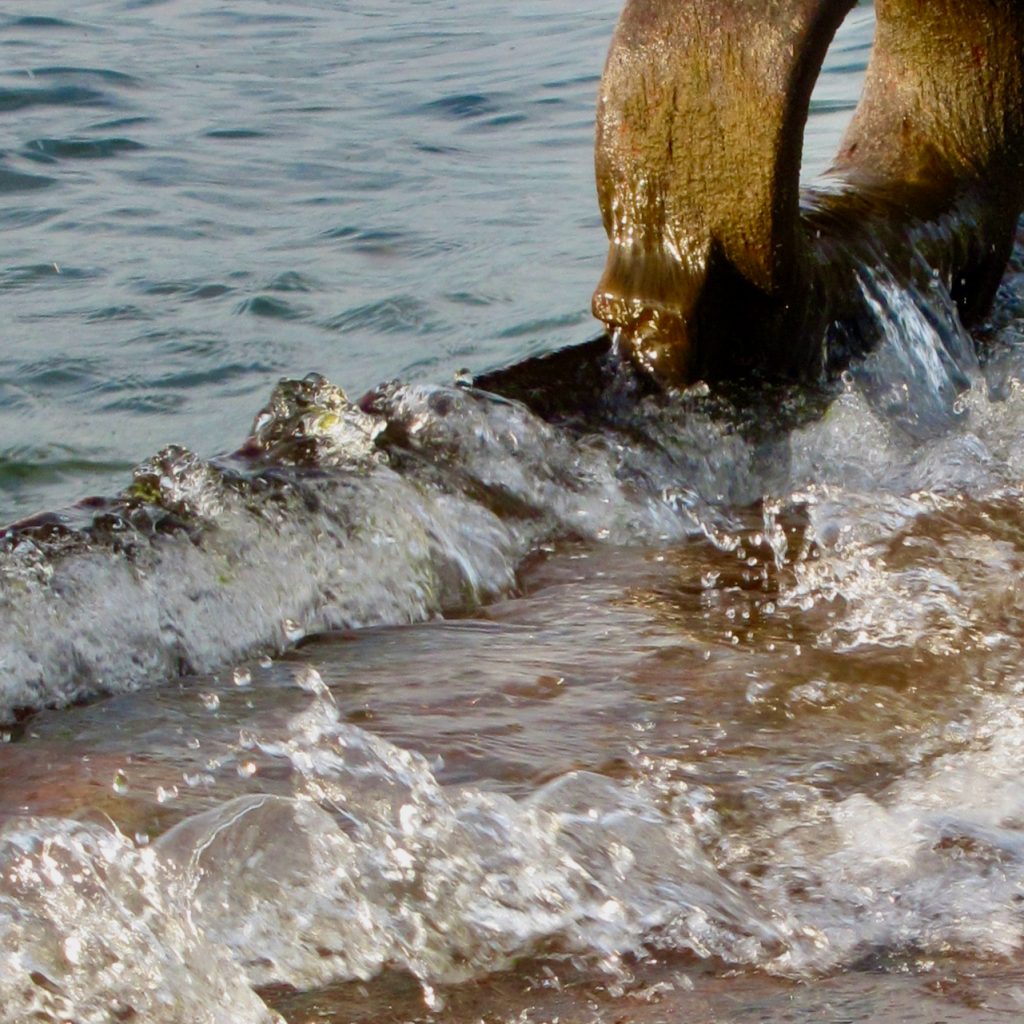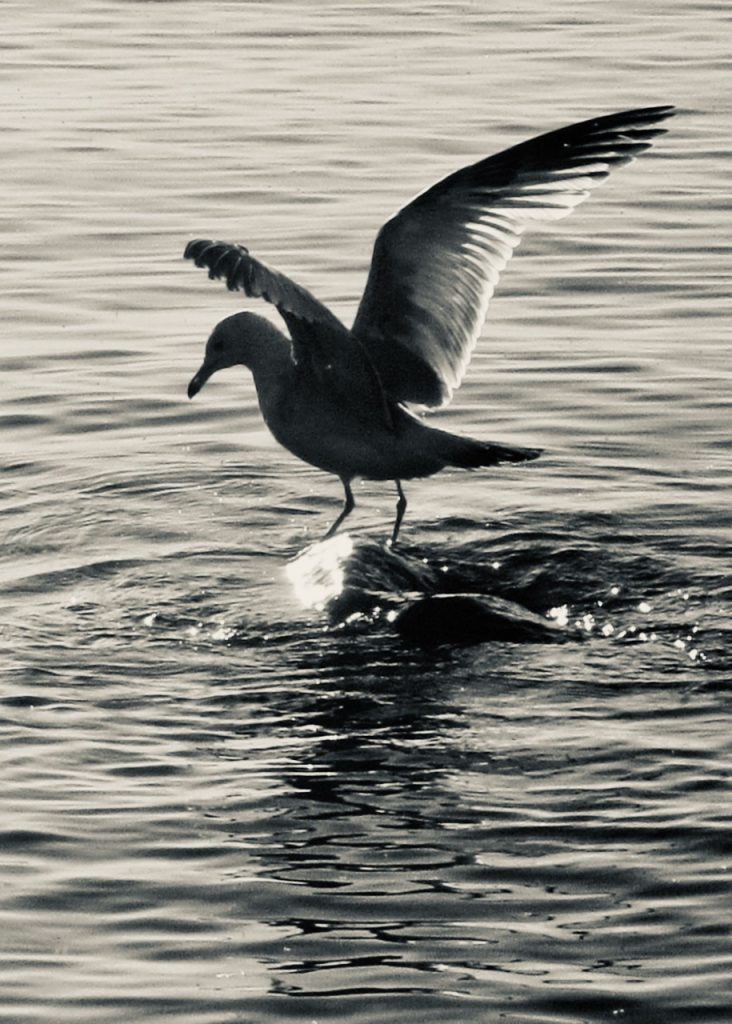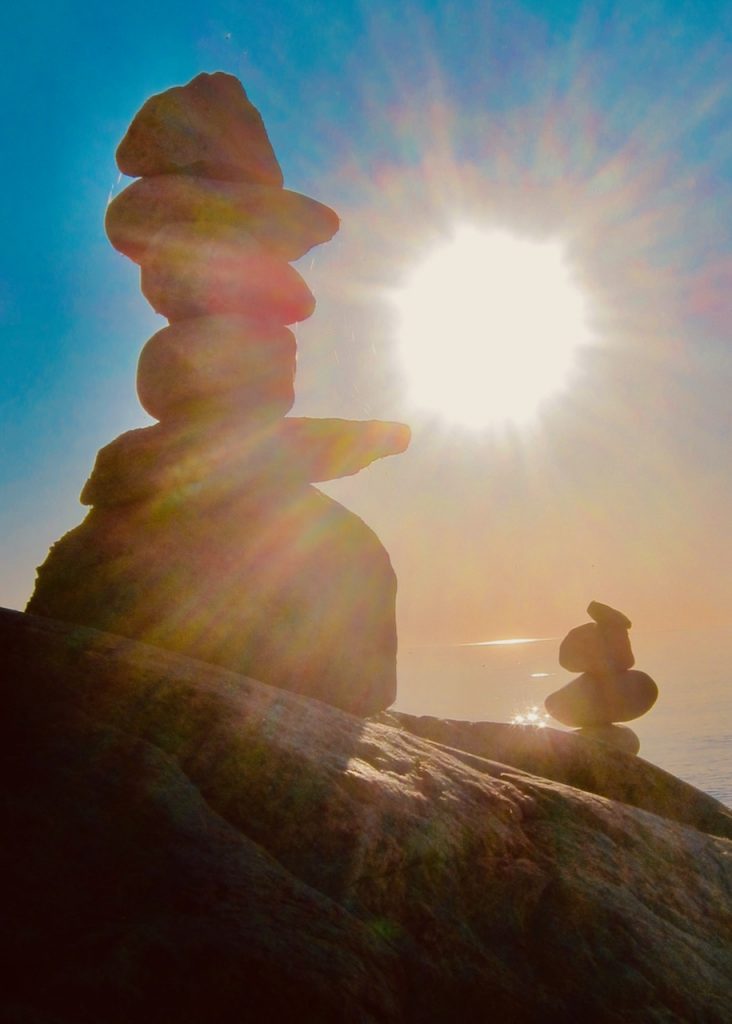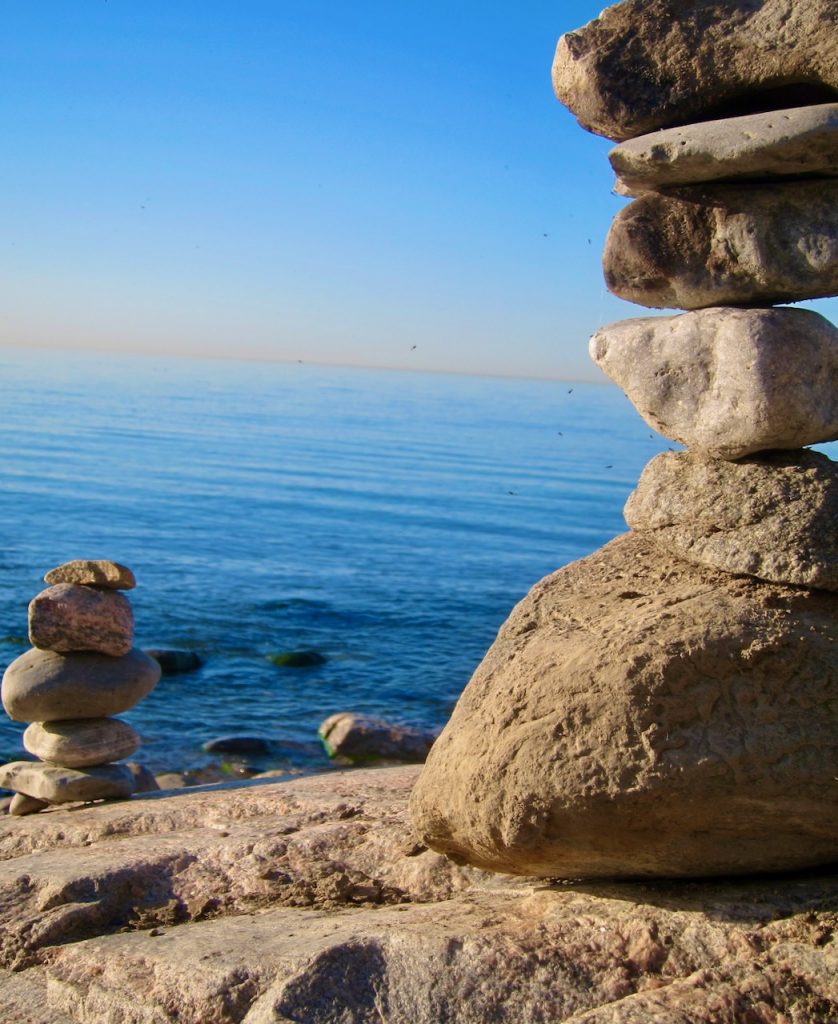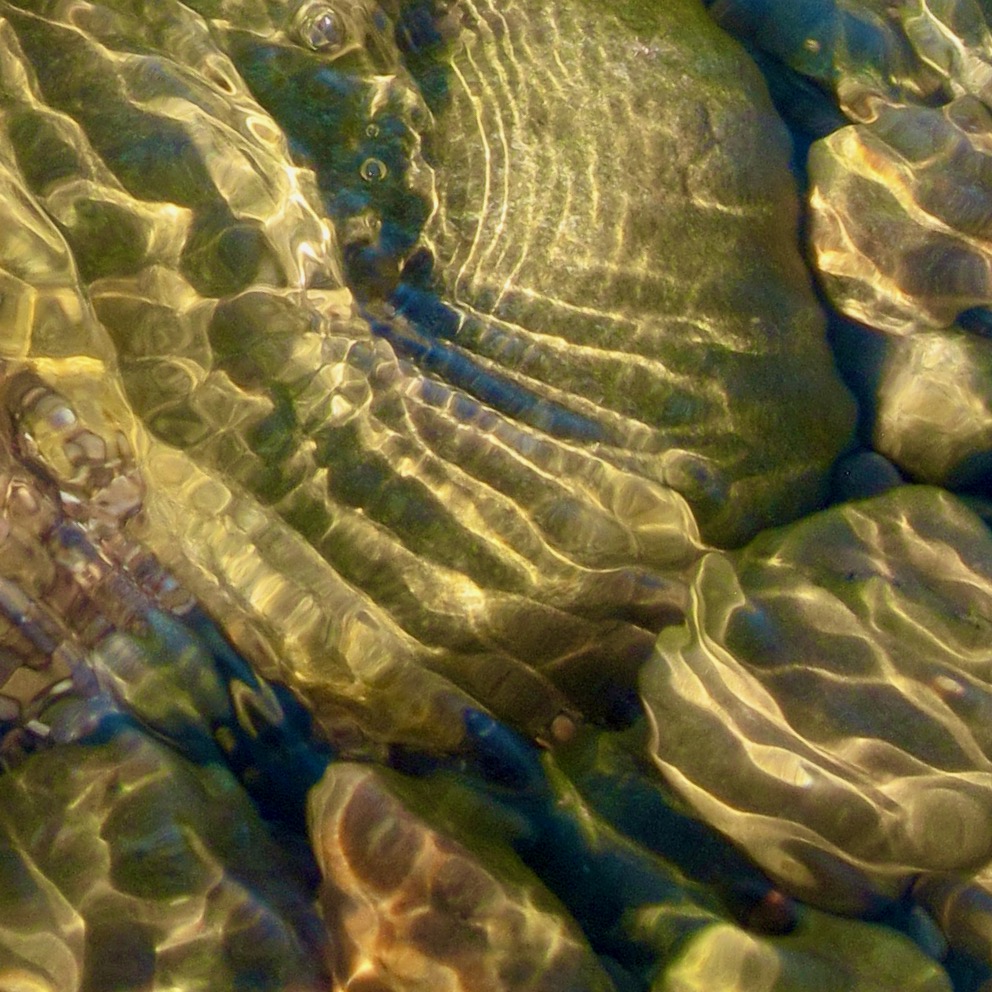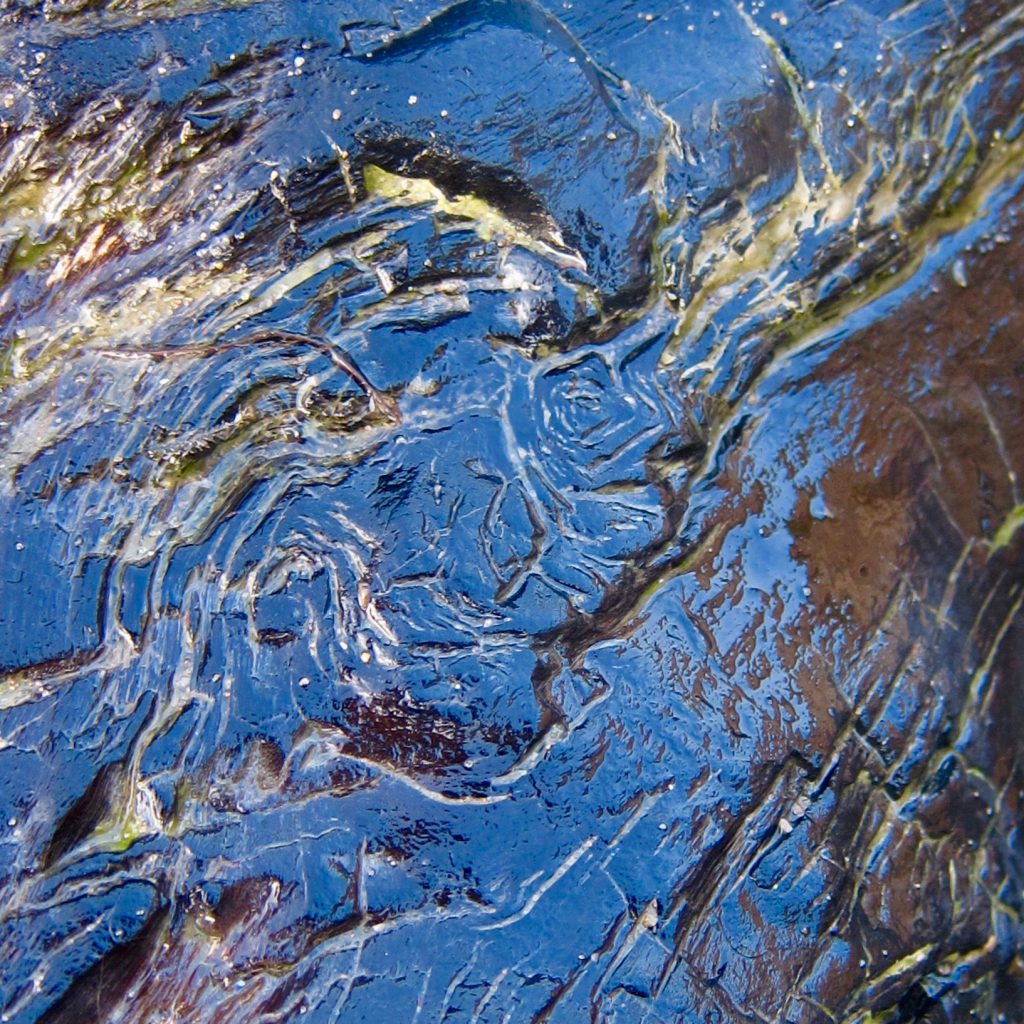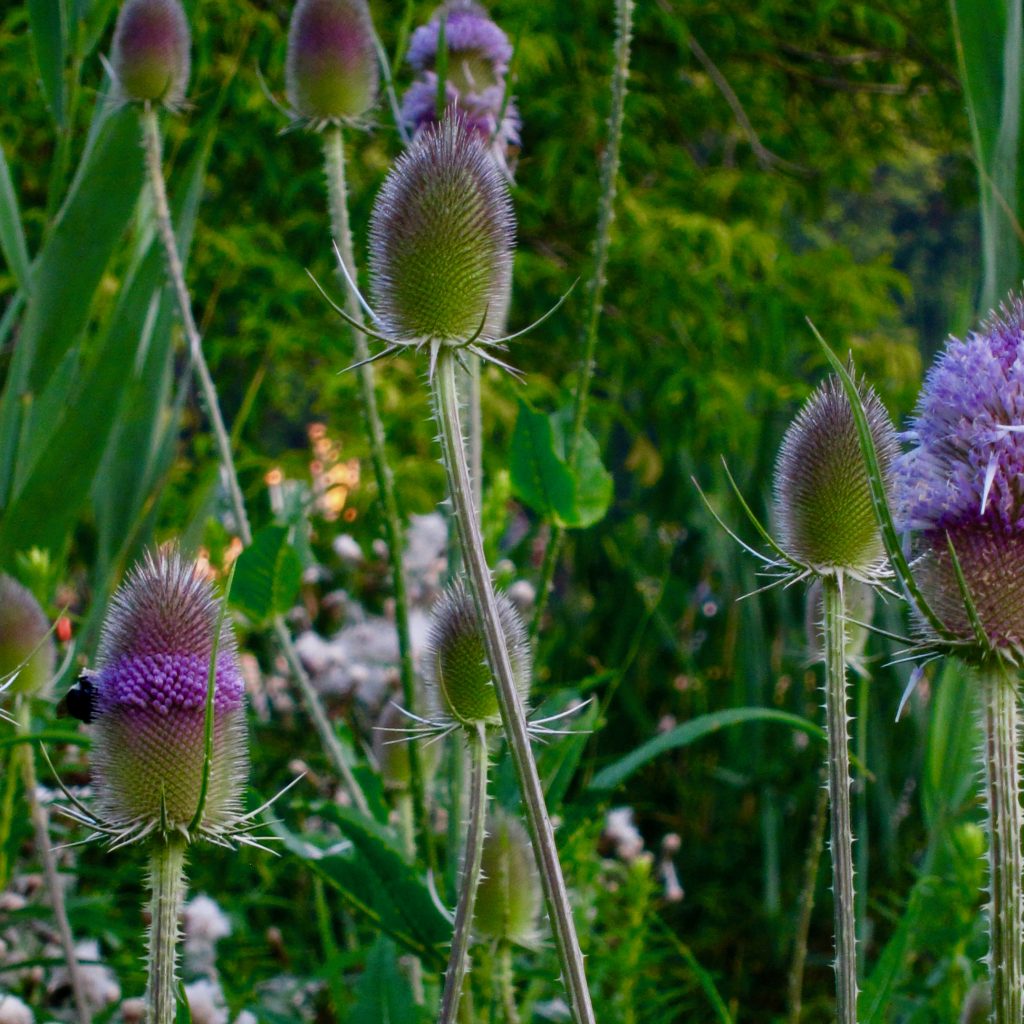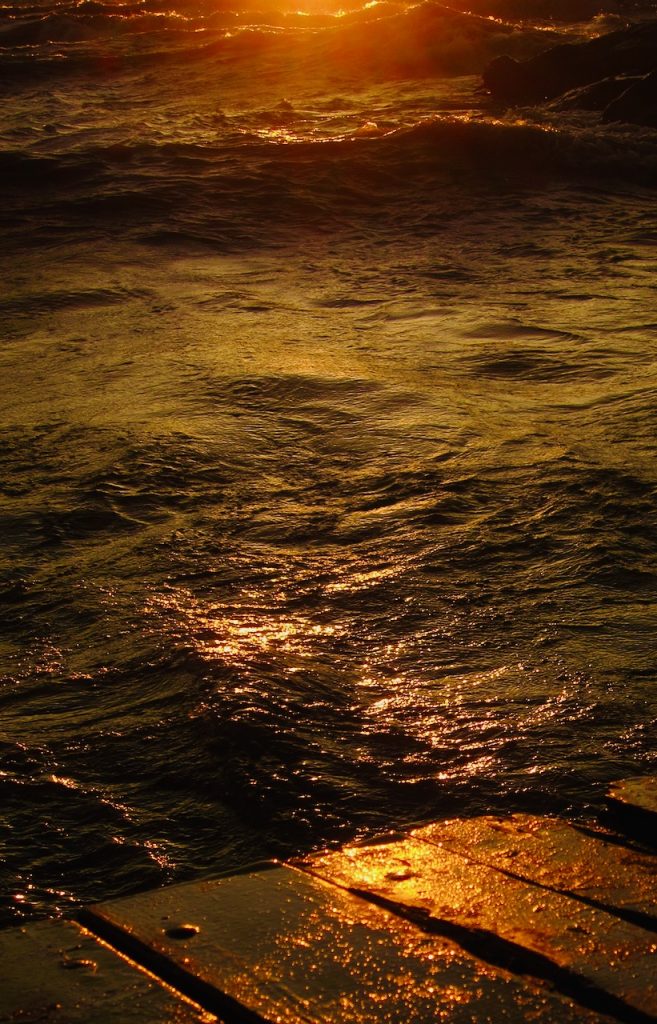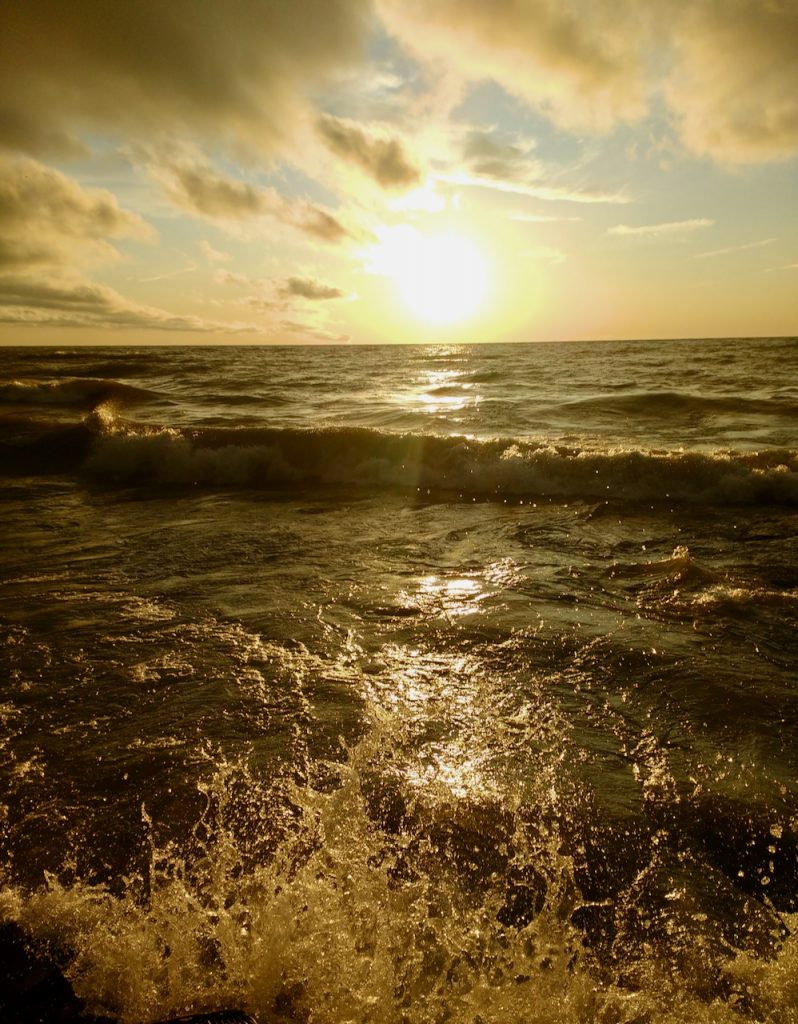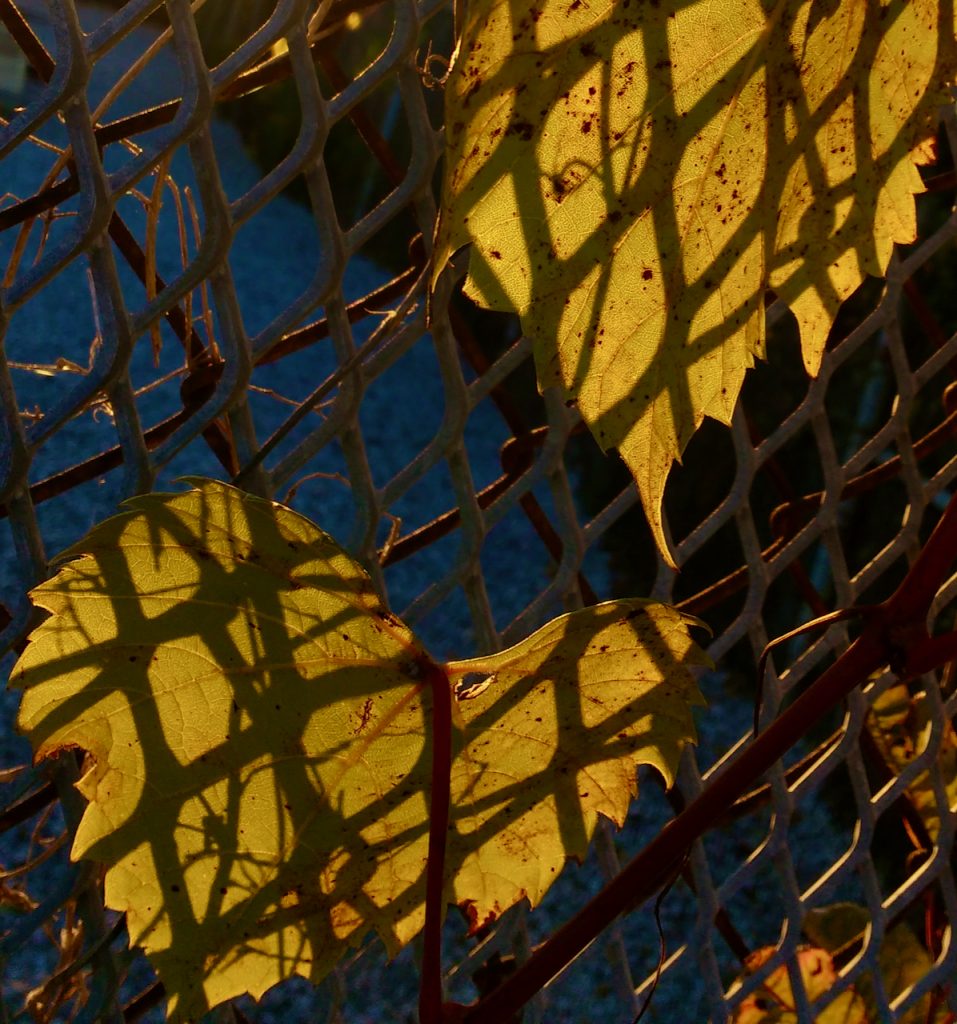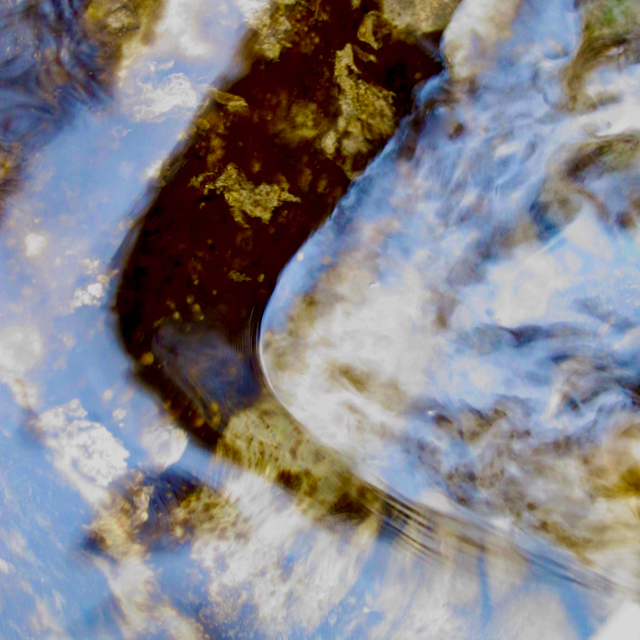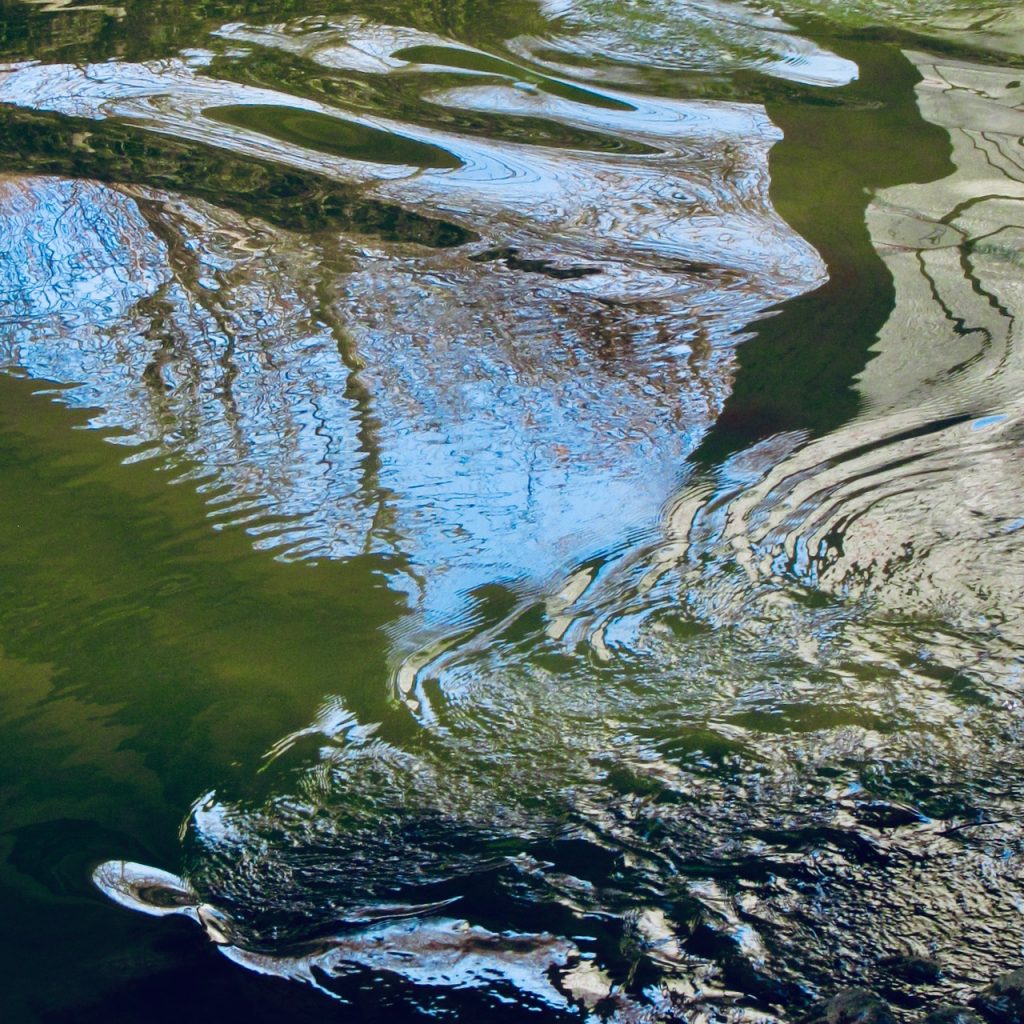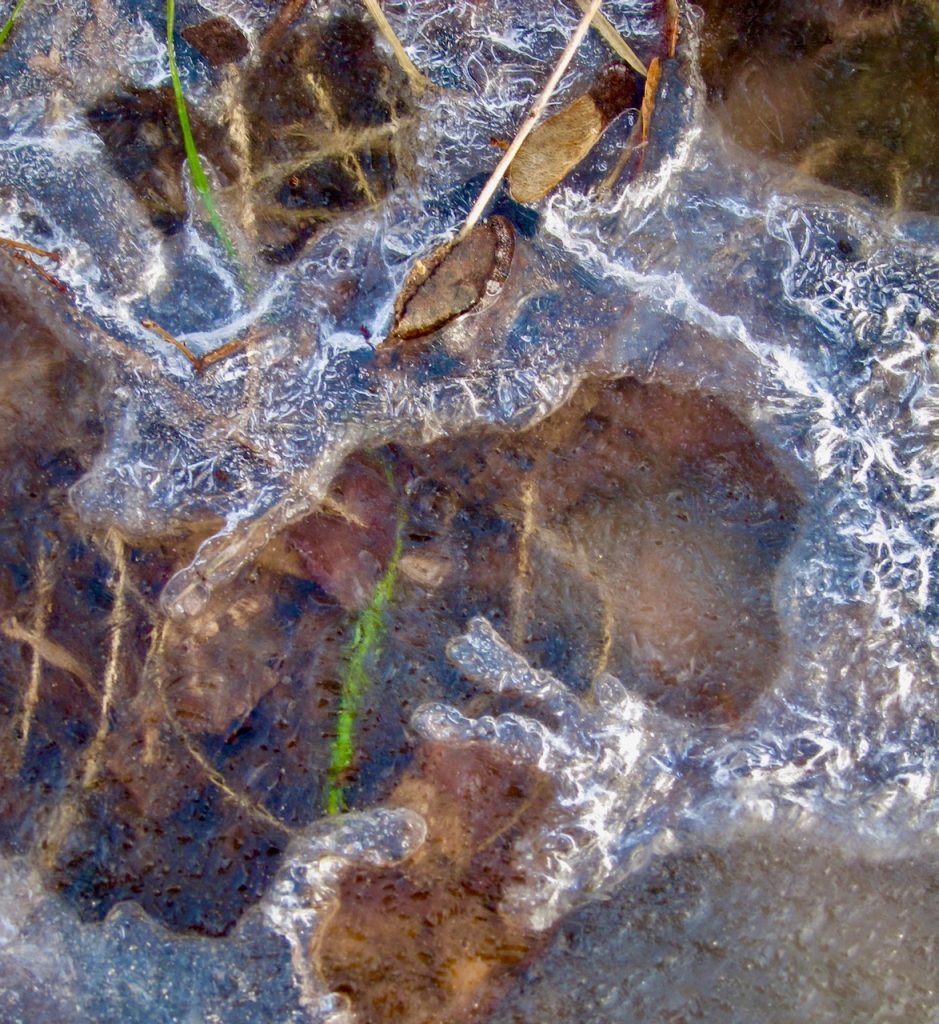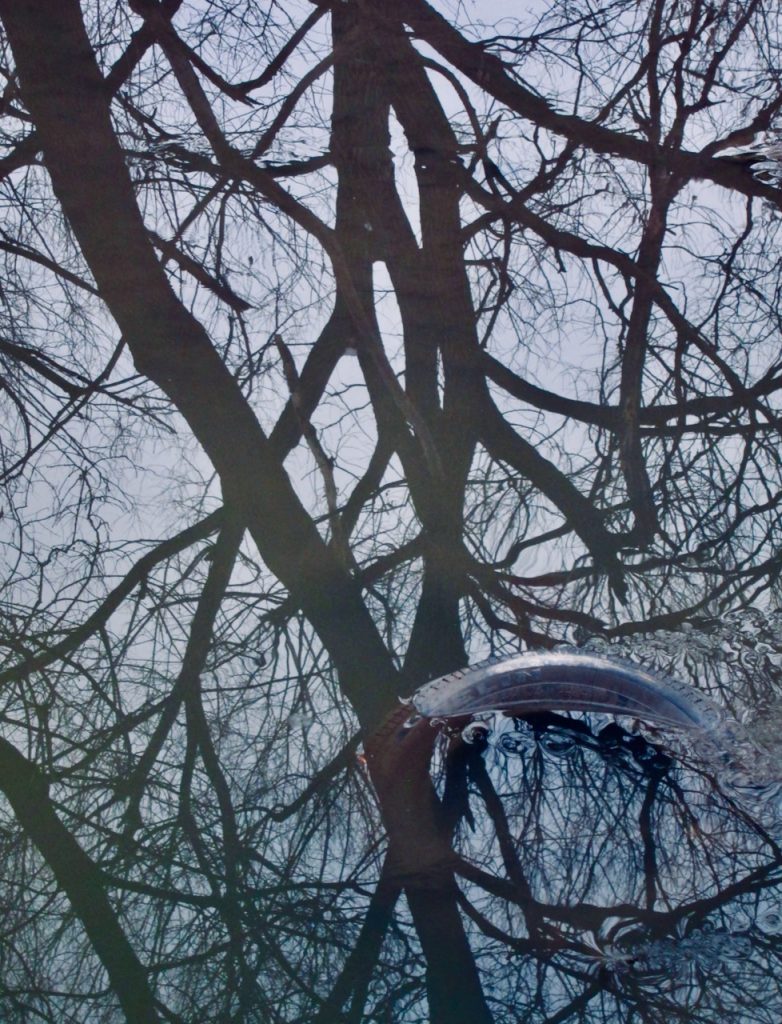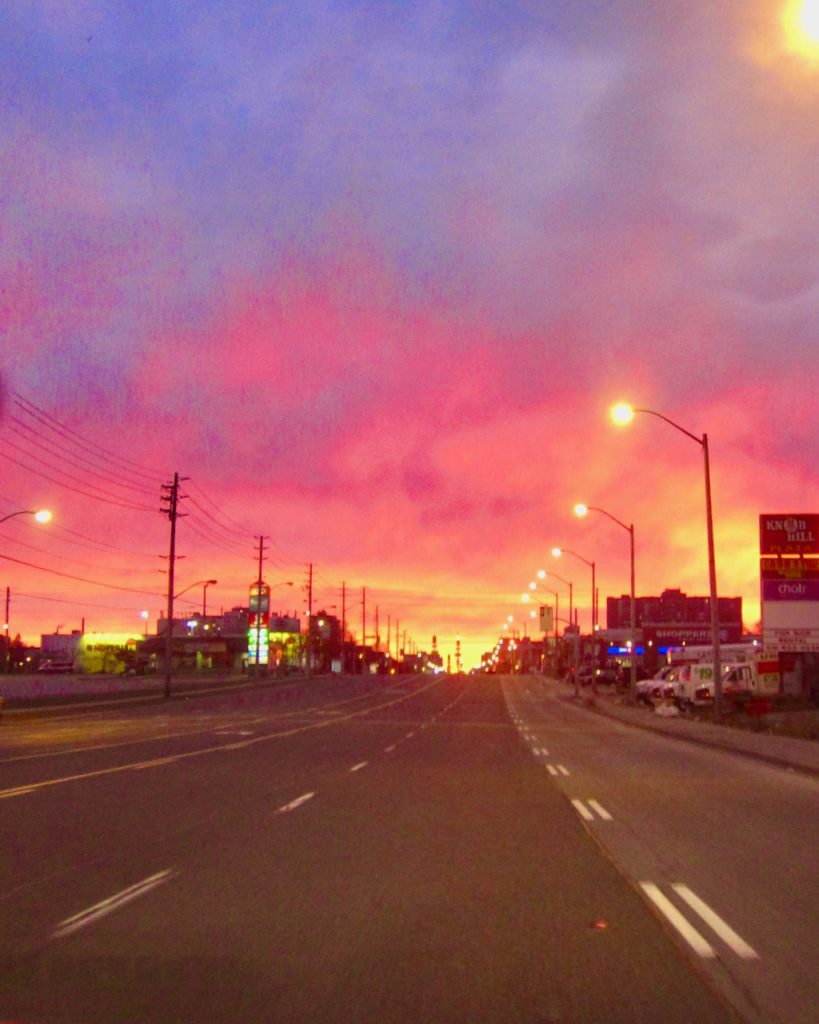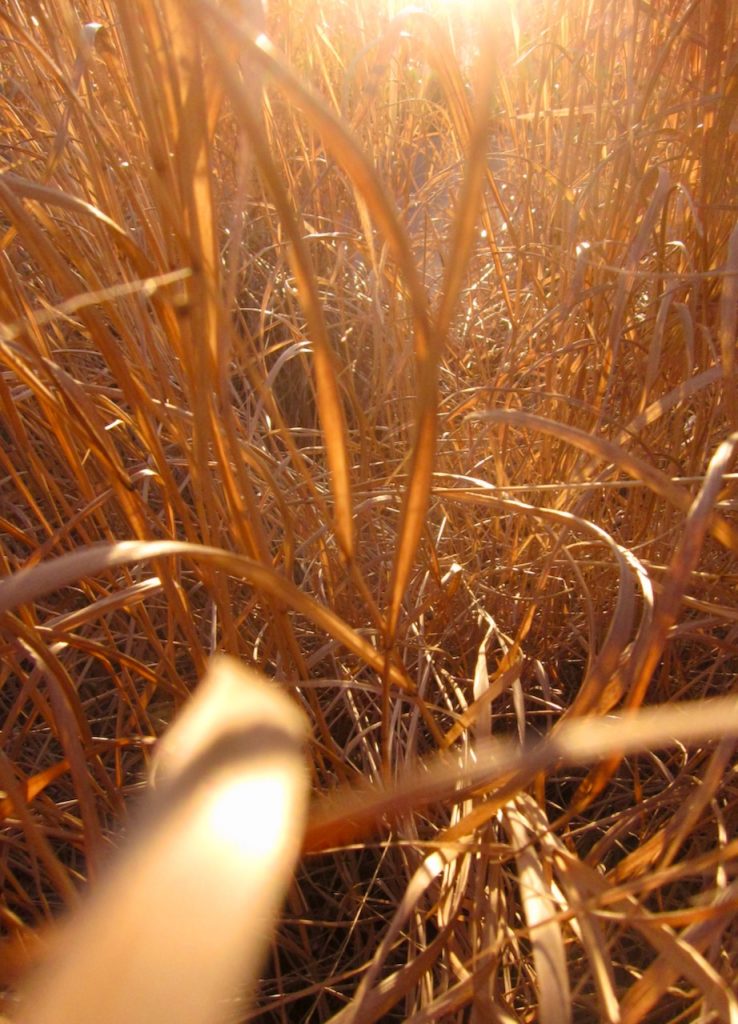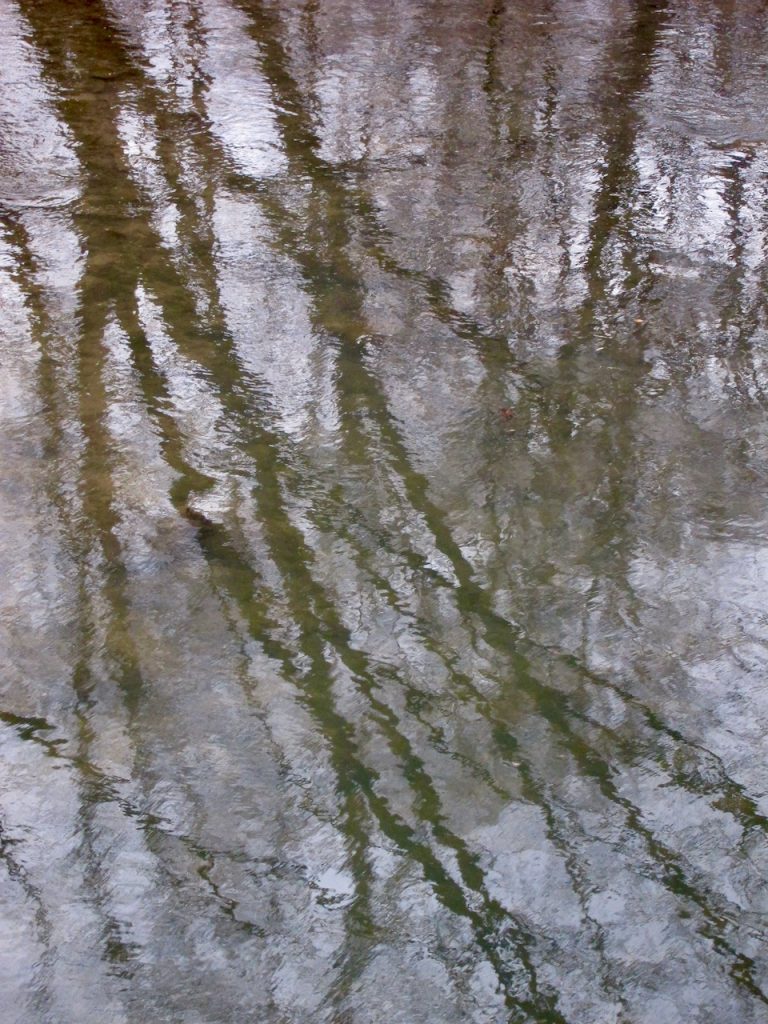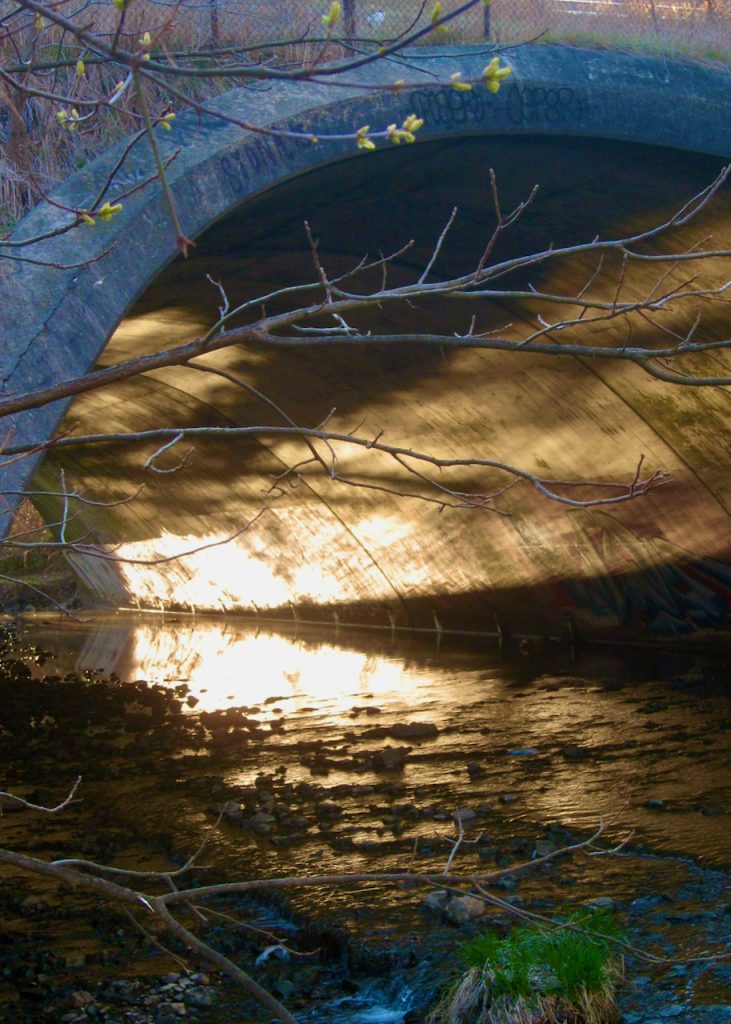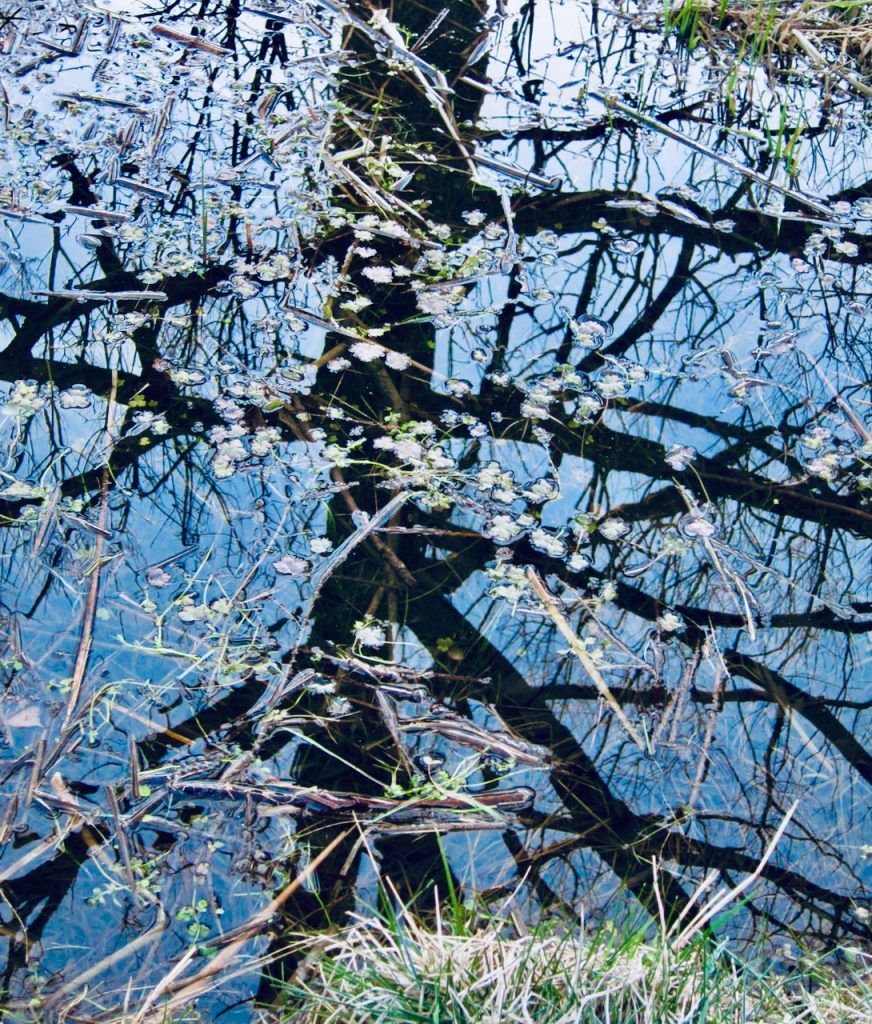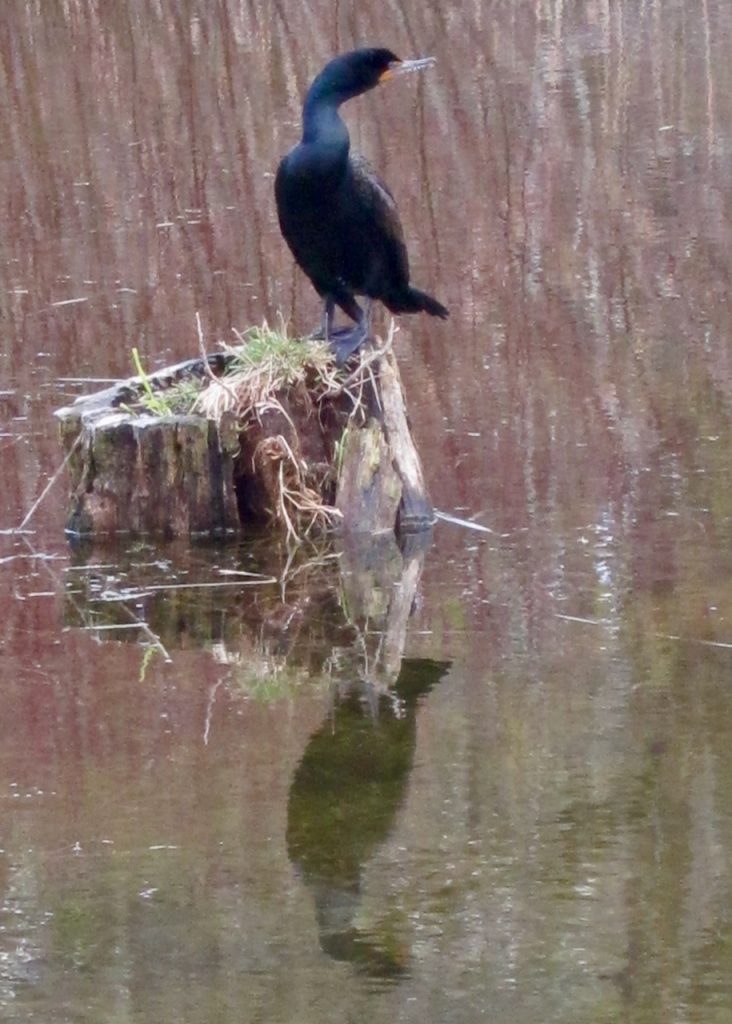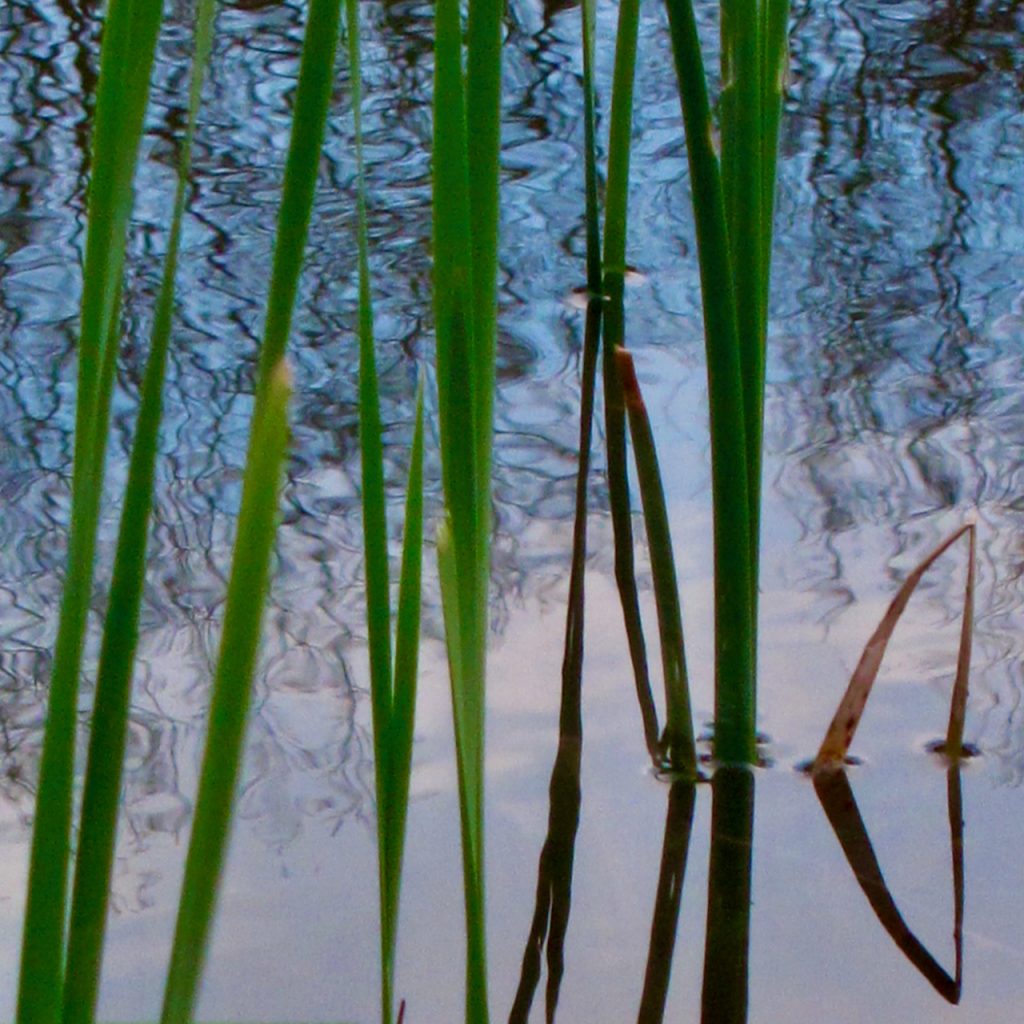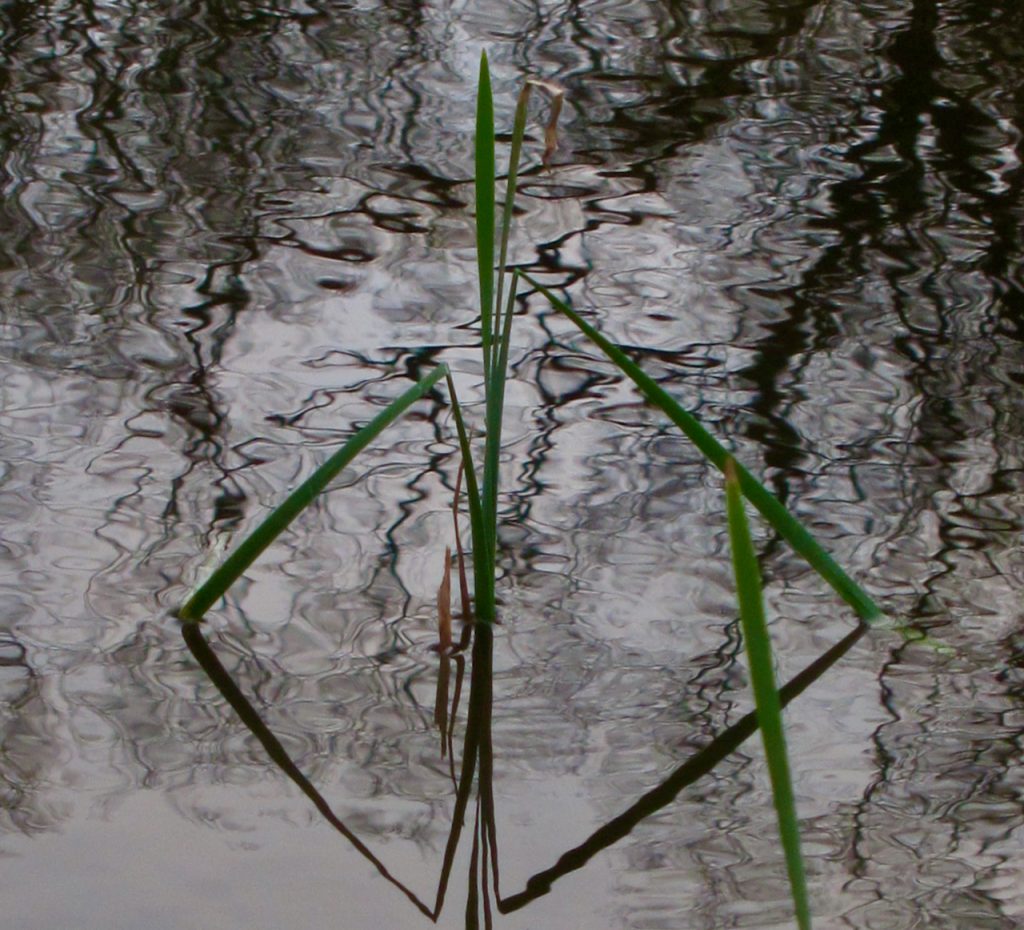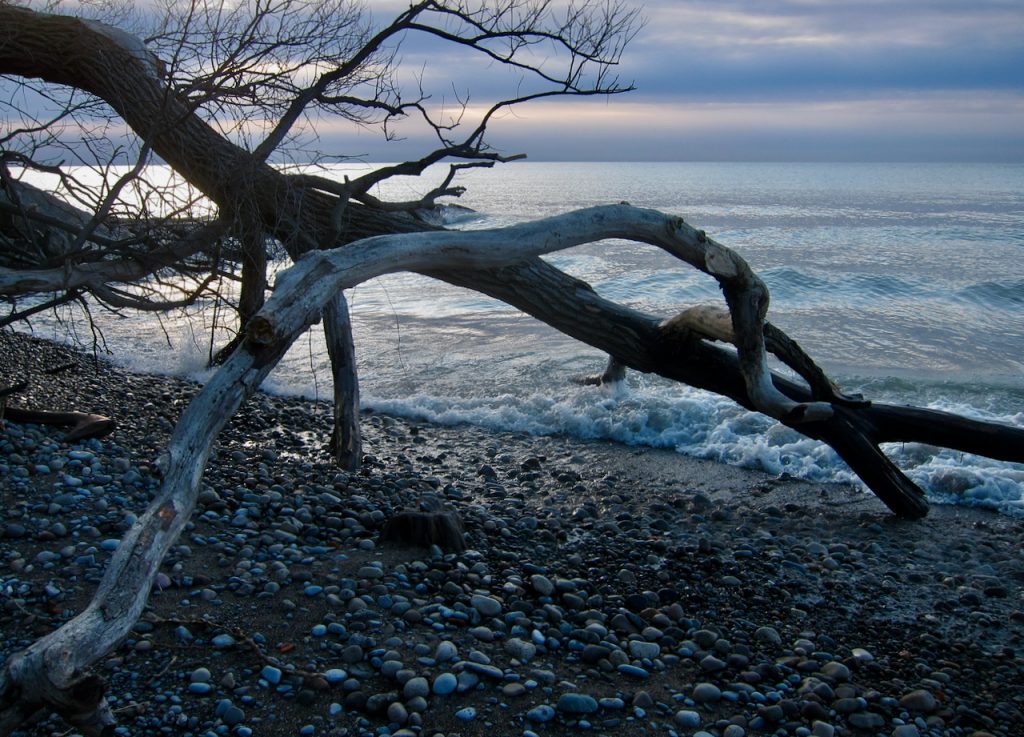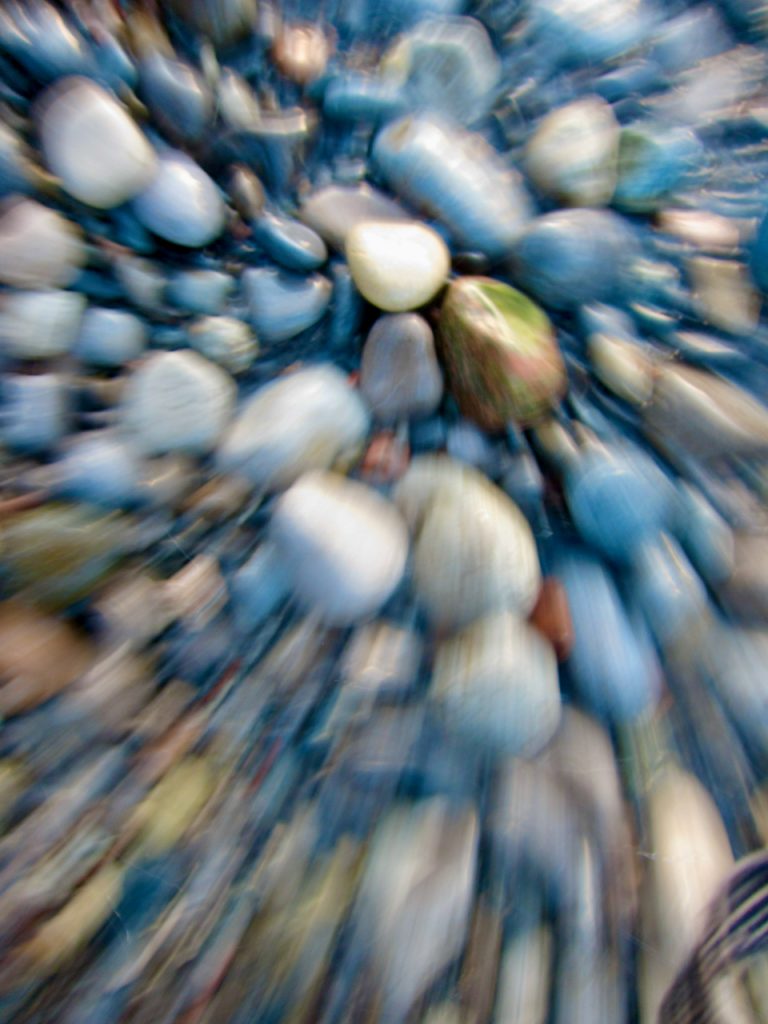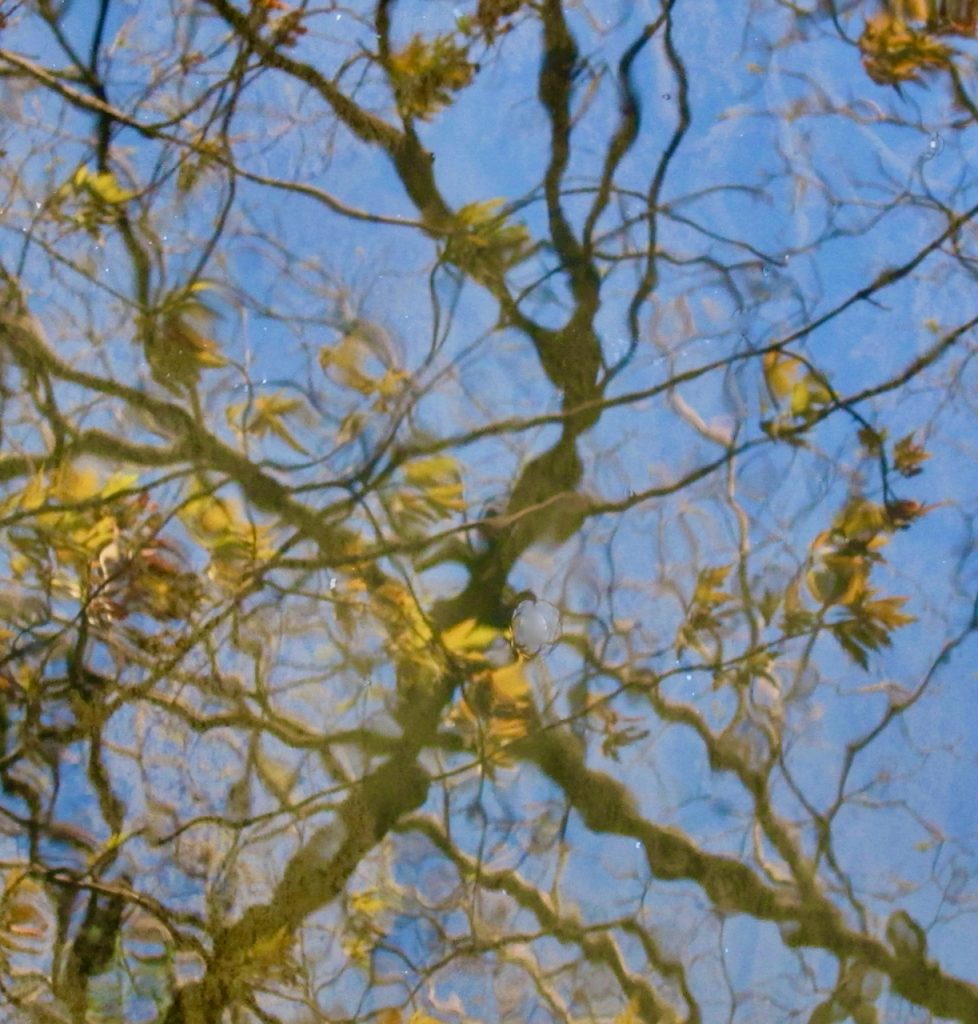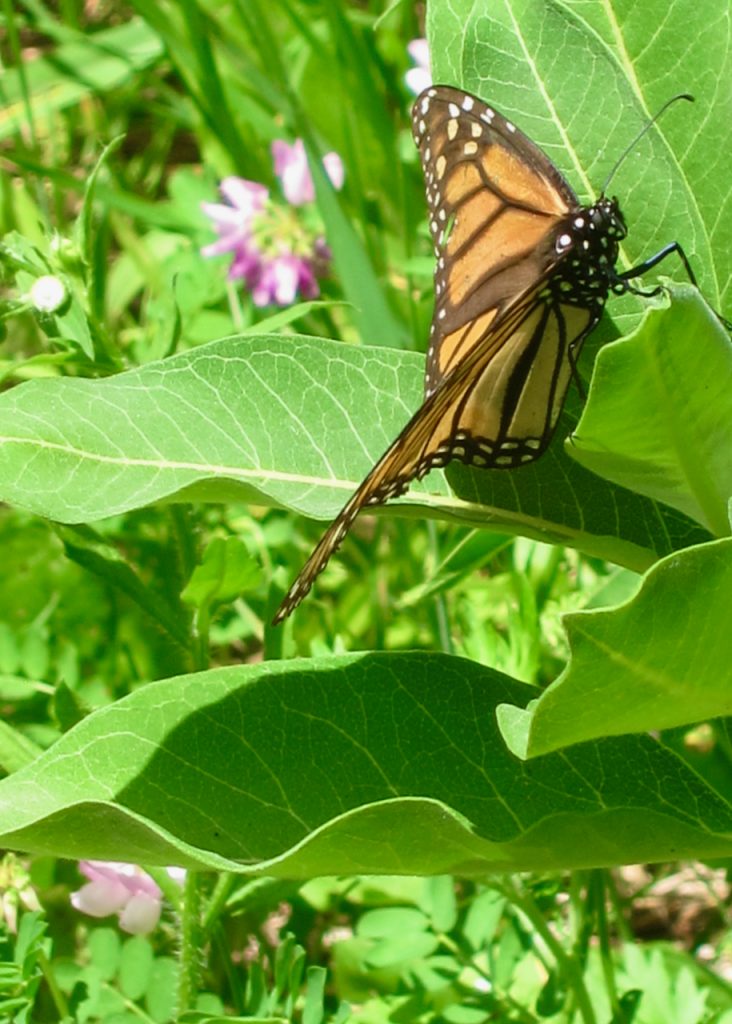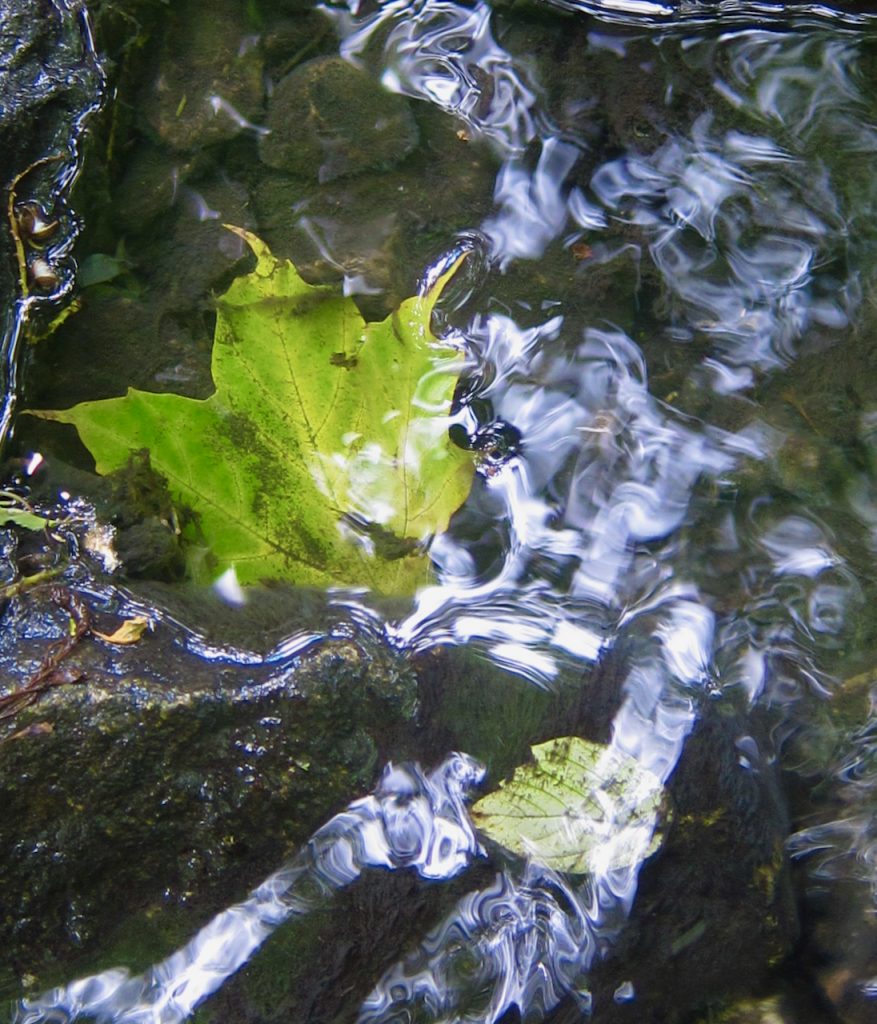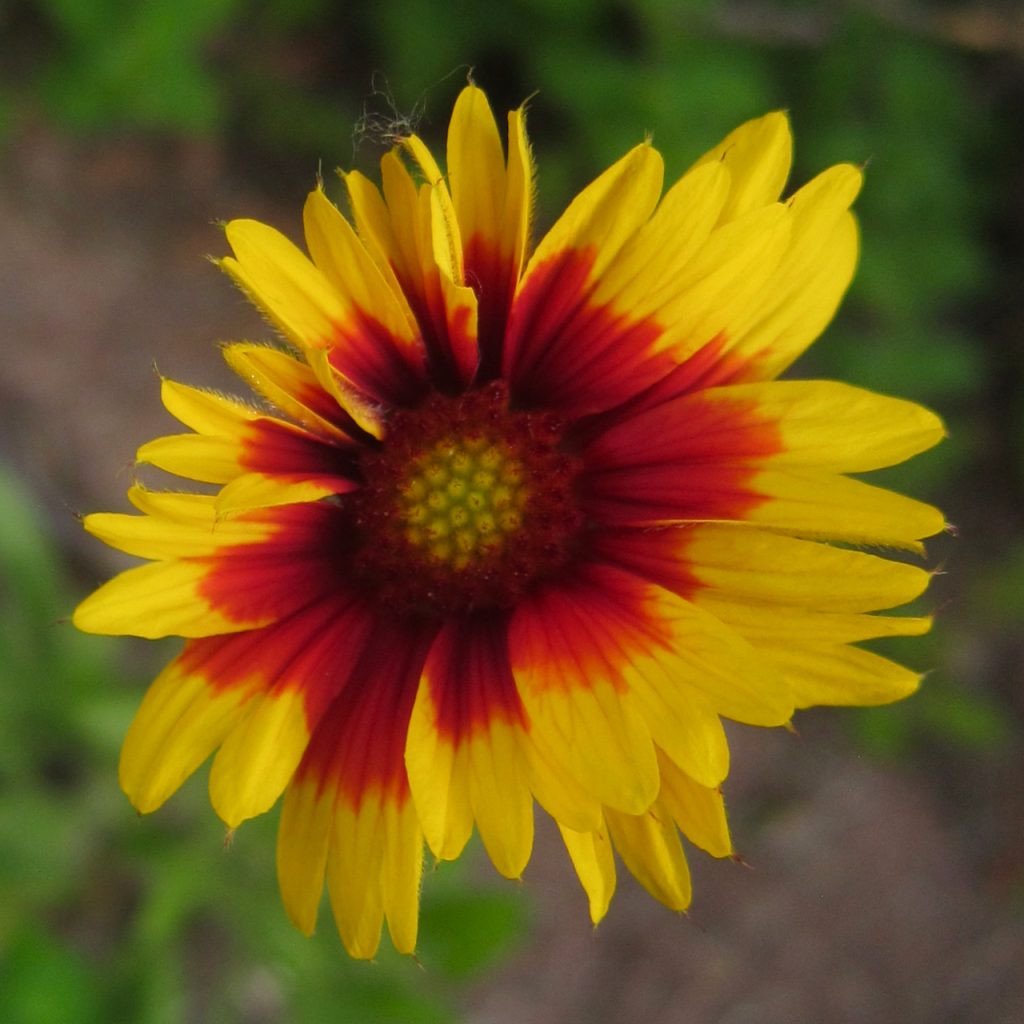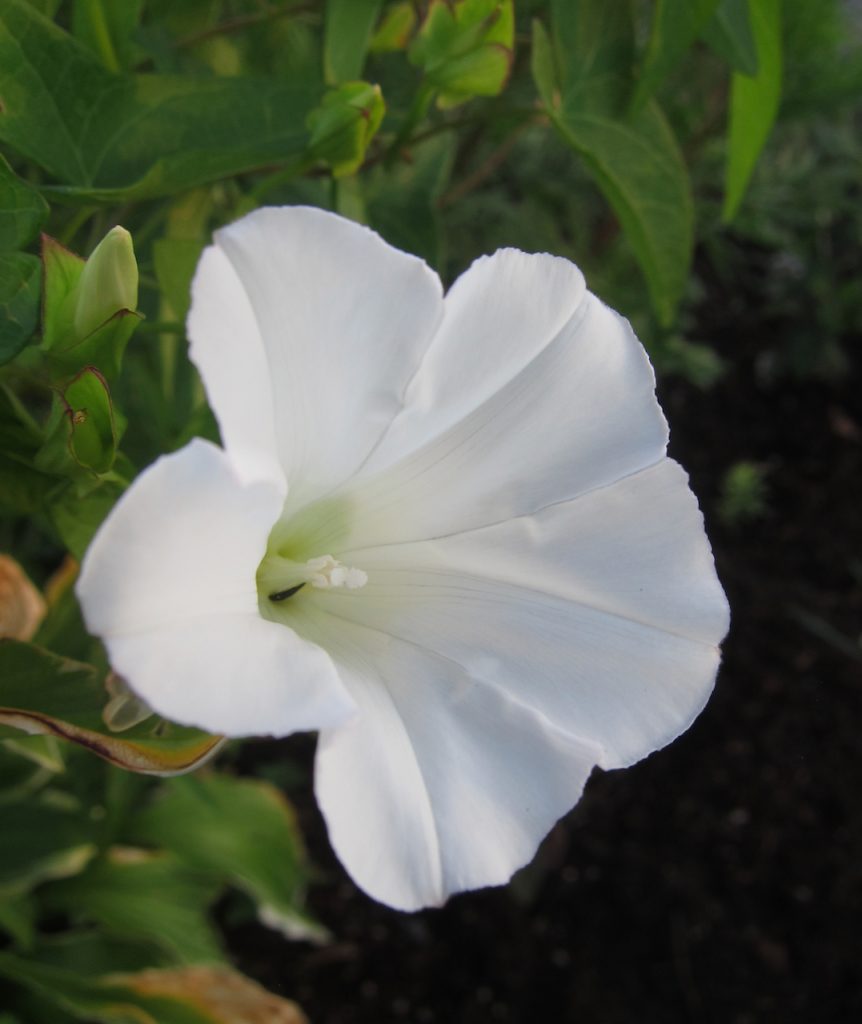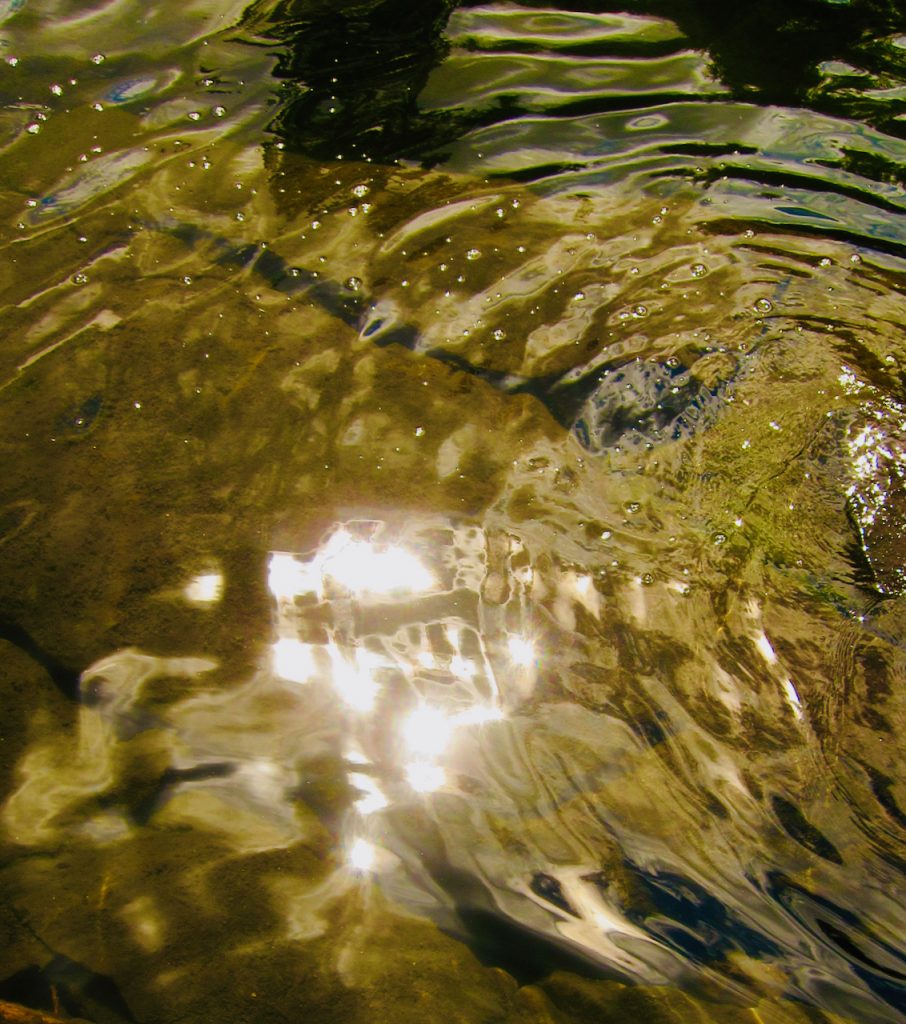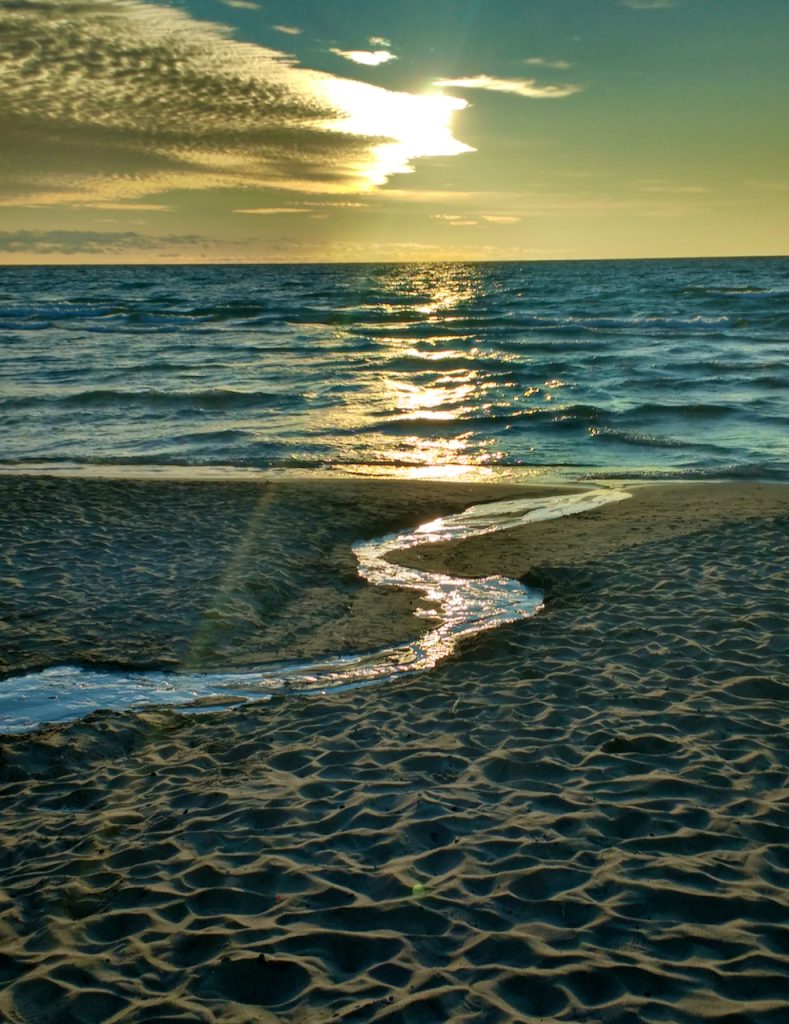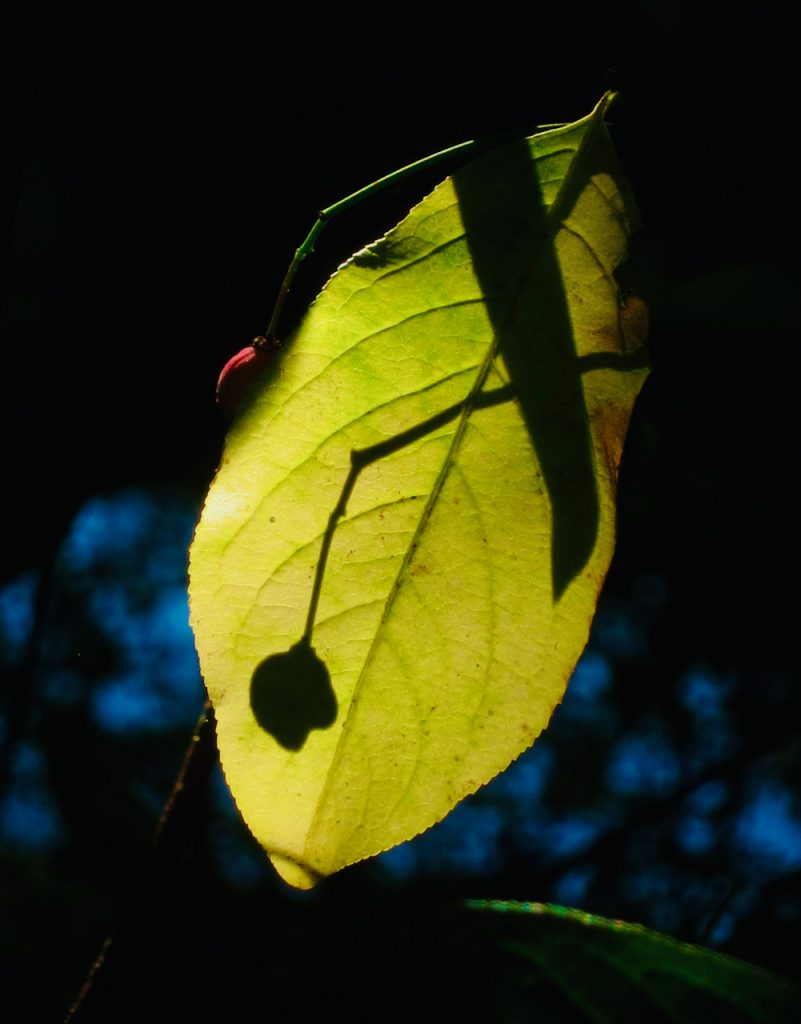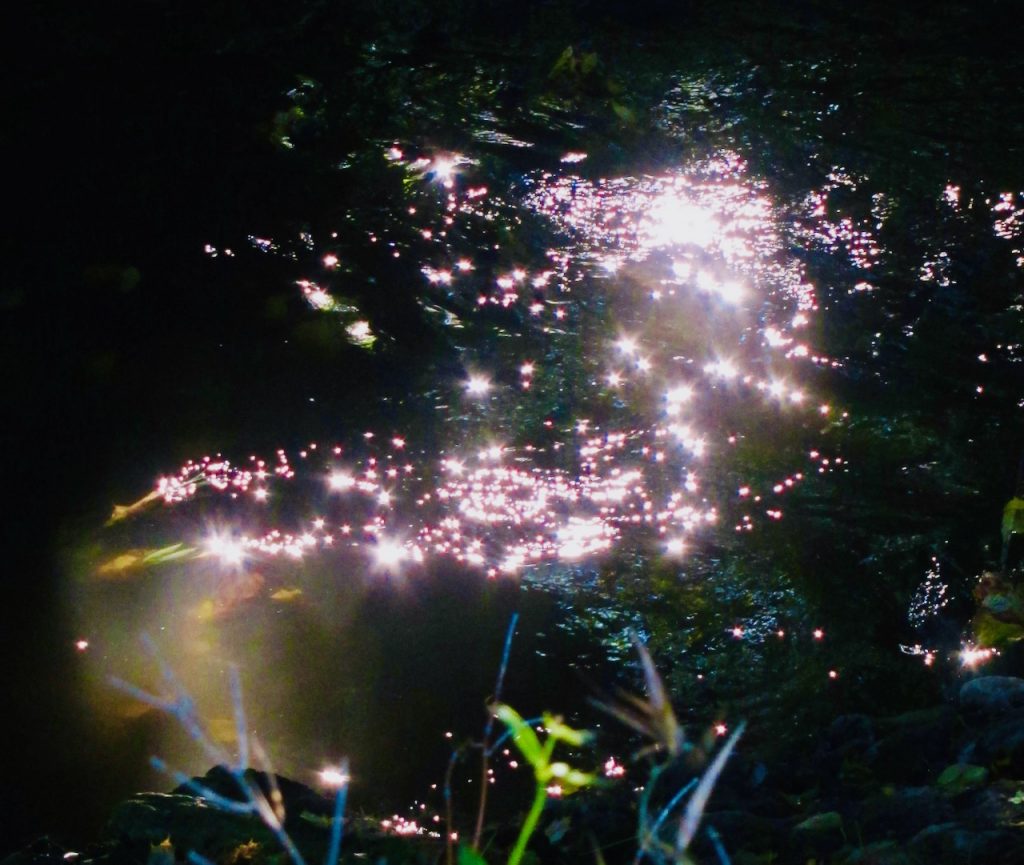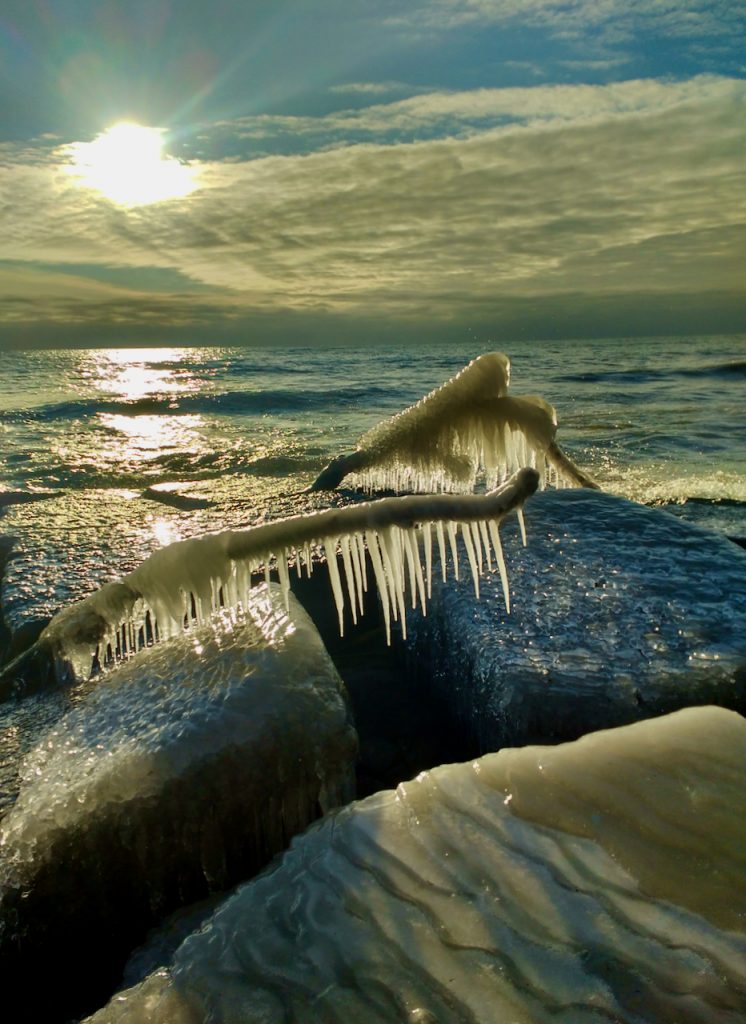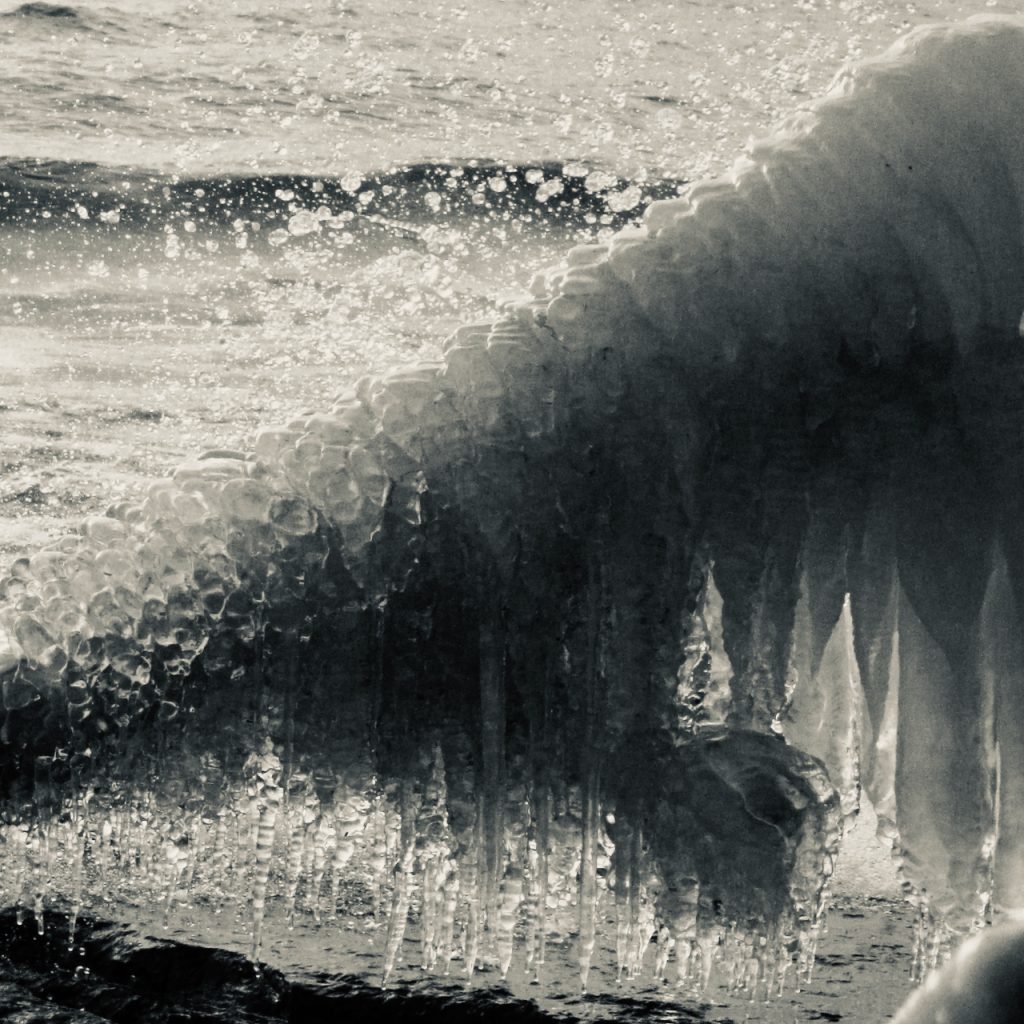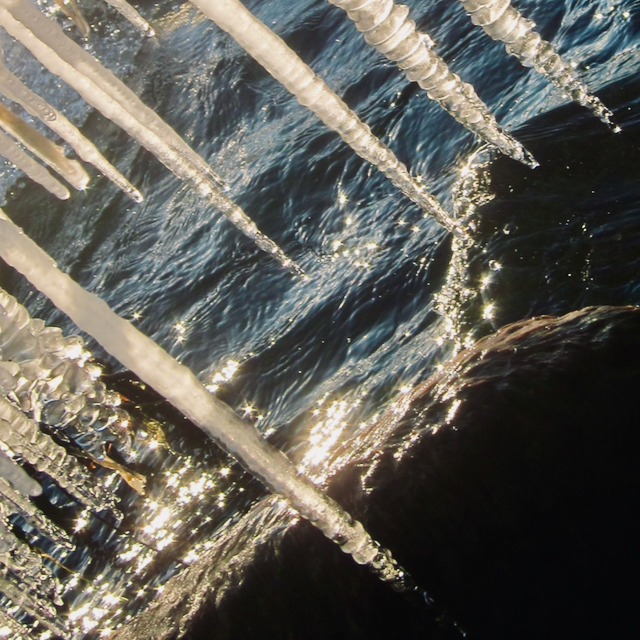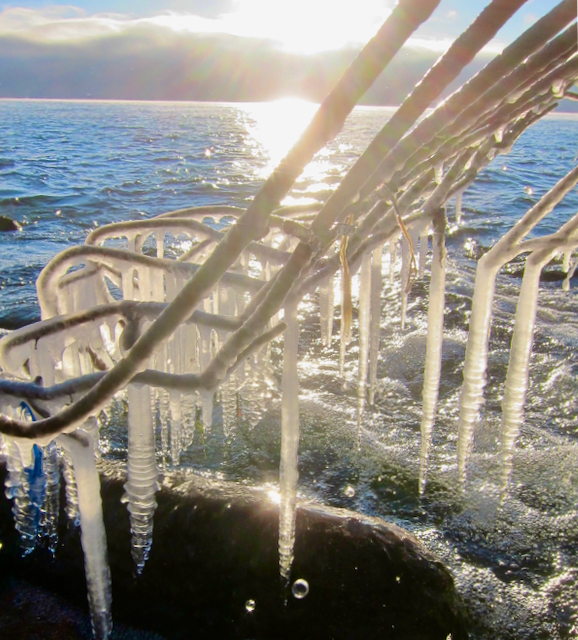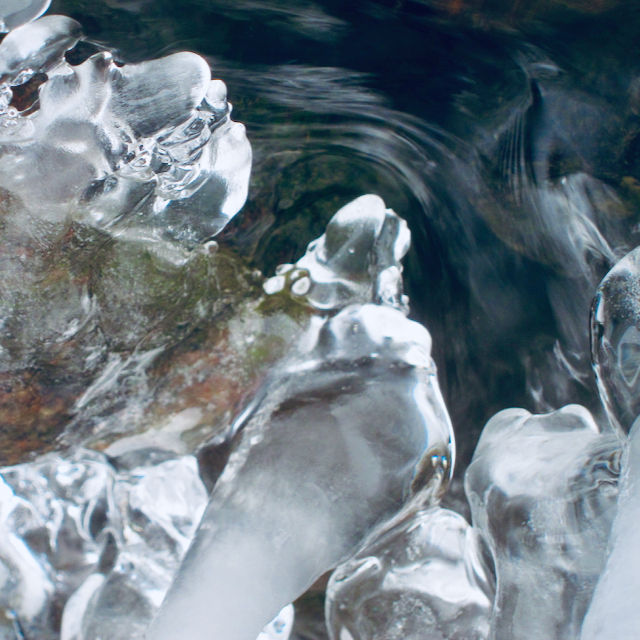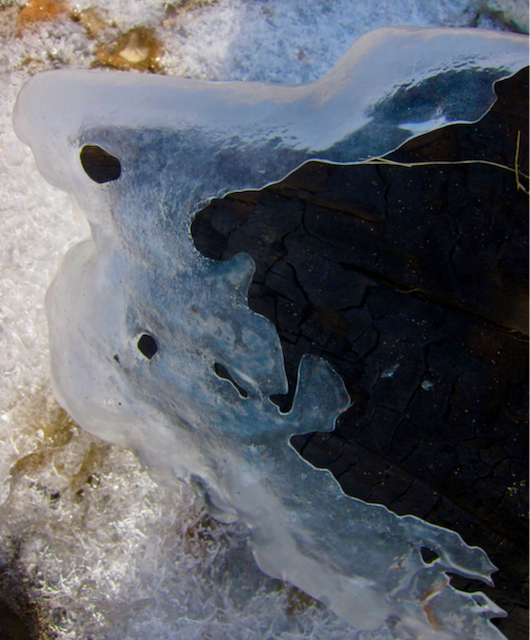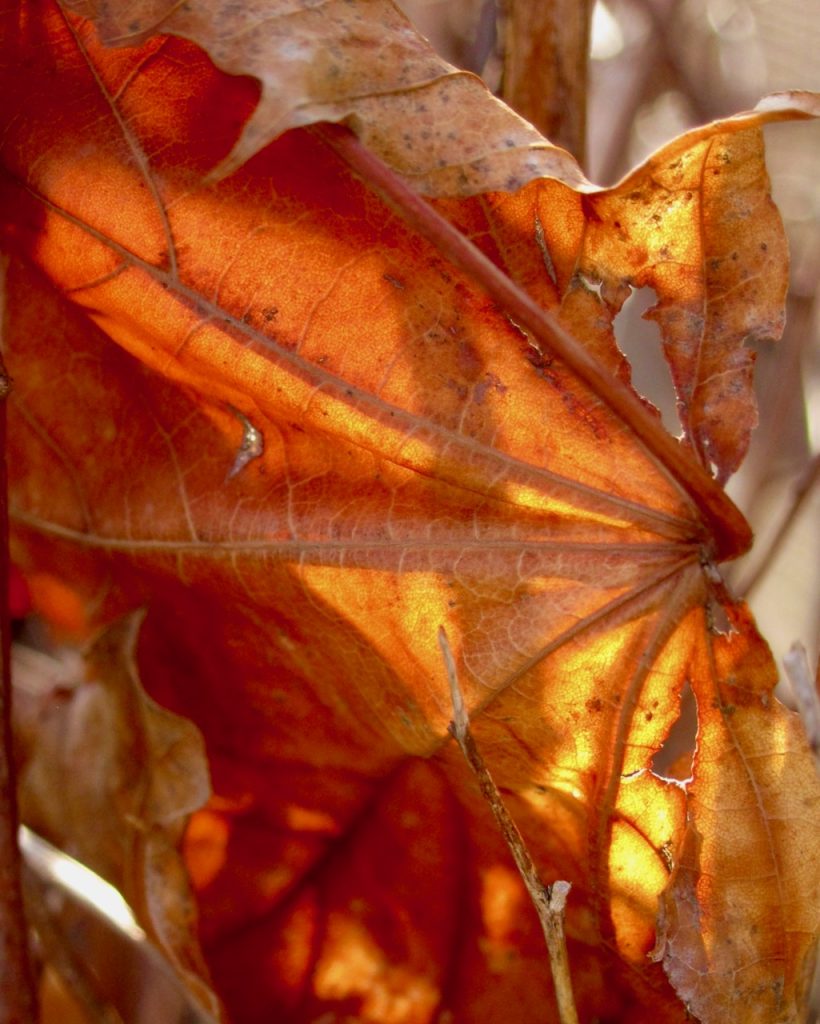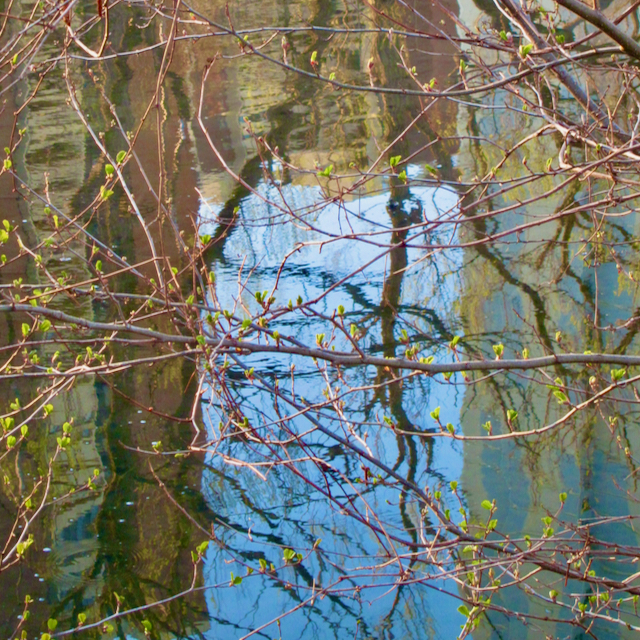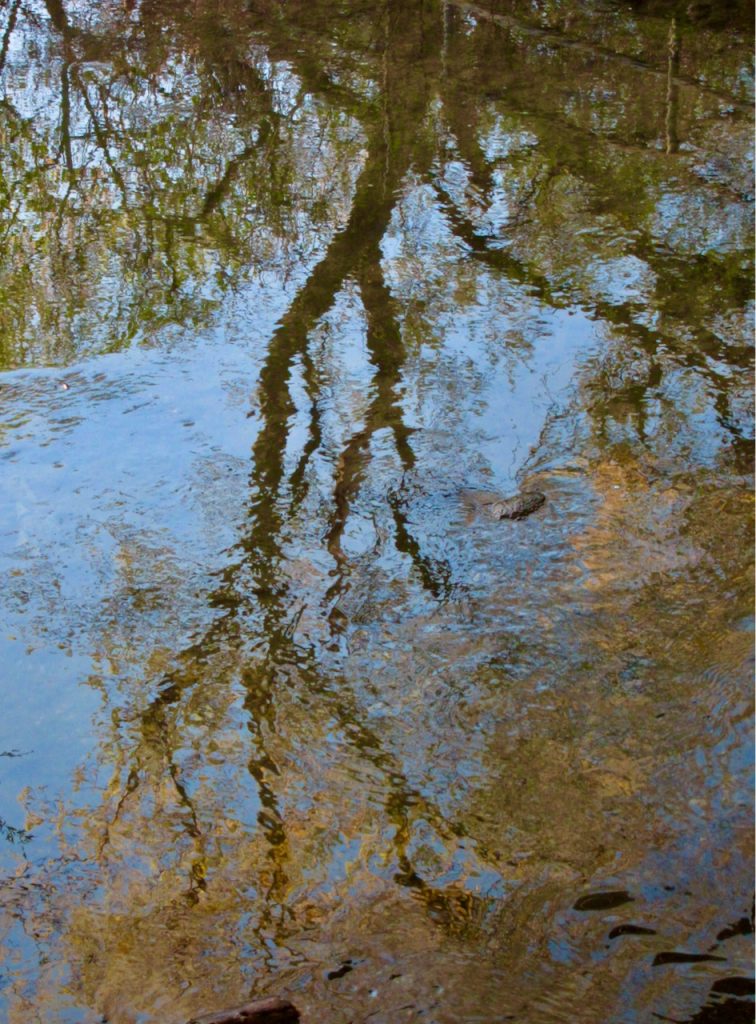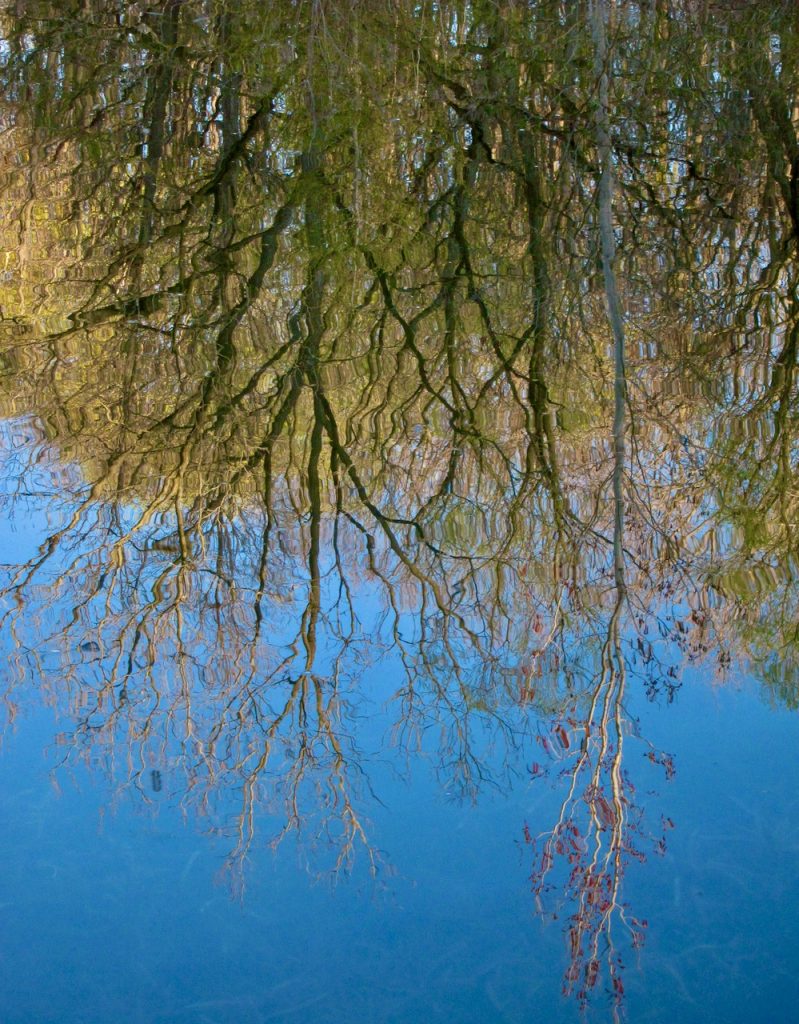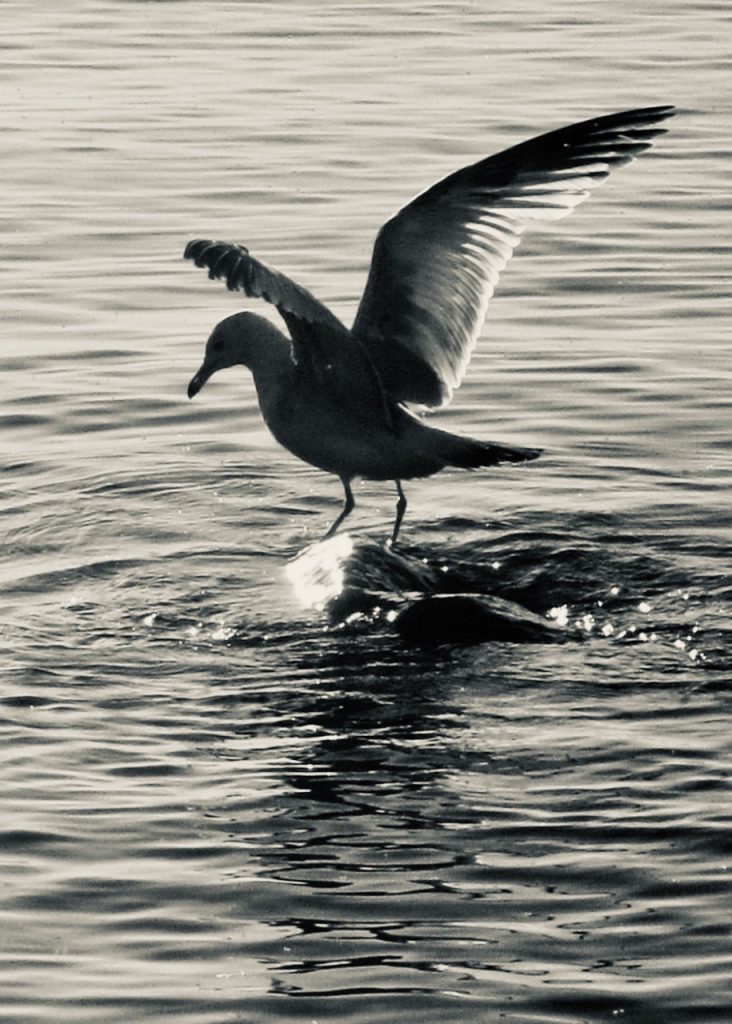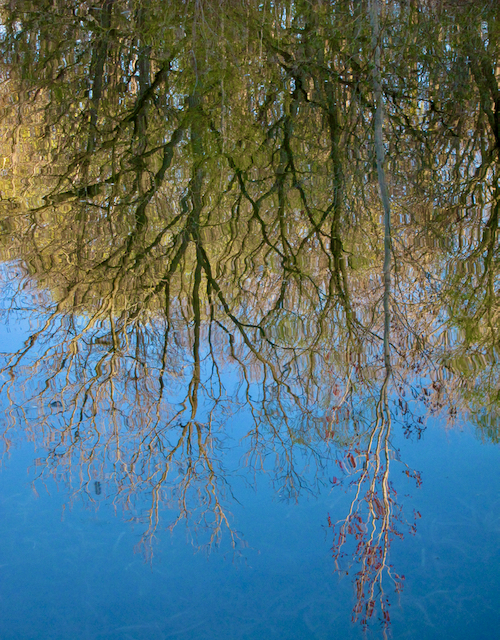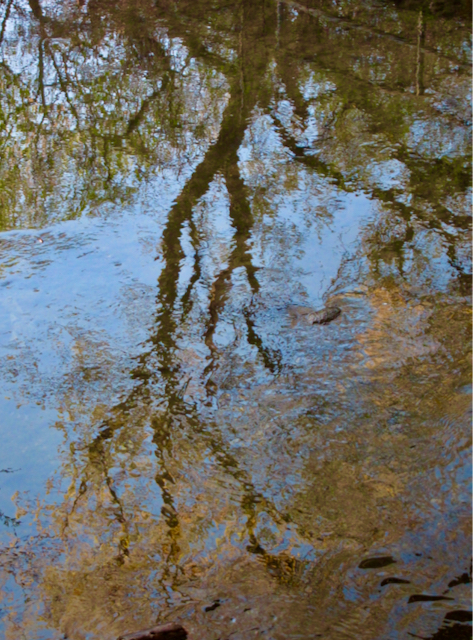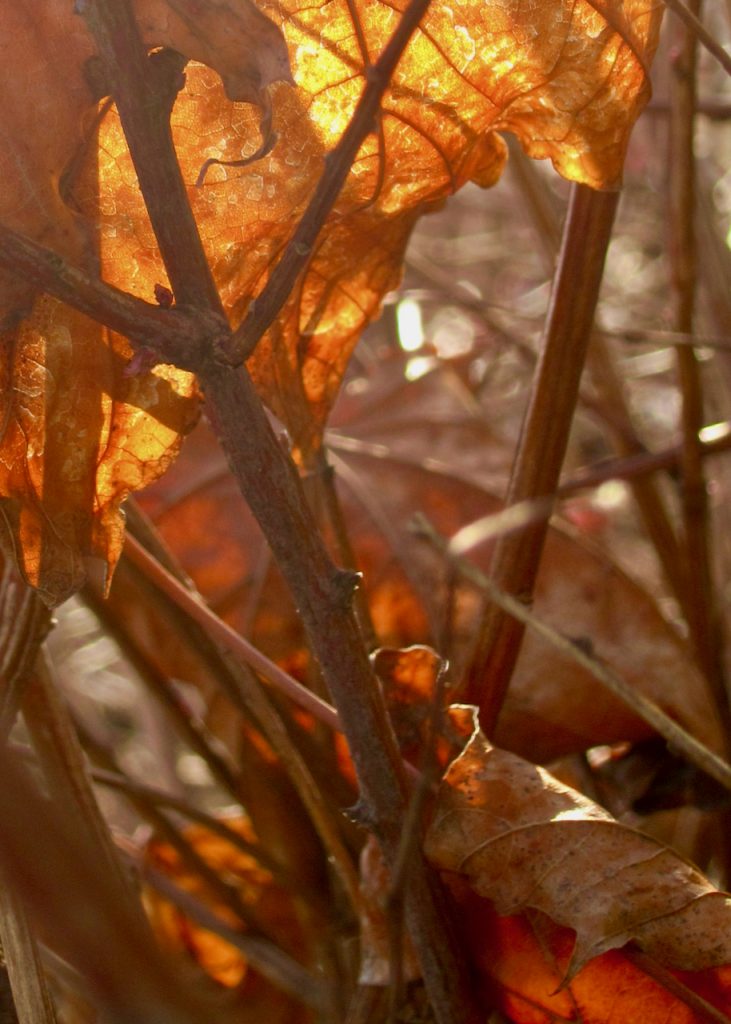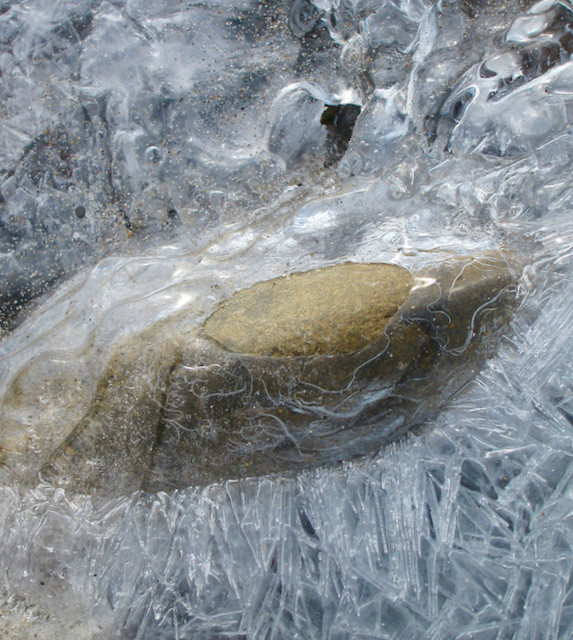Ice Statements
I bought Philip and Stephanie Carr-Gomm’s The Druid Animal Oracle Deck in 2008 in hopes of developing collage workshops based on animal teachings. My friend Ellen Jaffe, a poet and teacher, found the idea interesting, so we gave the deck a trial run at a yoga studio, each of us selecting a card at random without looking at the illustrated side. I chose Wolf.
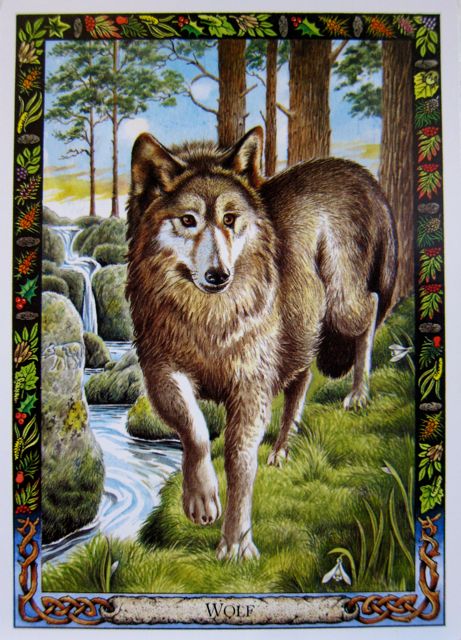
After Ellen made her selection, we took turns reading from an interpretive booklet provided with the deck. From the section on Wolf, I learned that its keywords are “Intuition, Learning, (and) The Shadow” and that Wolf encourages us to honour “the inner power and strength you feel when you spend time alone” (p. 22).
Following a discussion of the teachings, I pulled out a folder of images that I had collected for the animals contained in the deck. Each animal had its own transparent sleeve full of pictures, and from Wolf’s sleeve I selected a few photos for my collage.
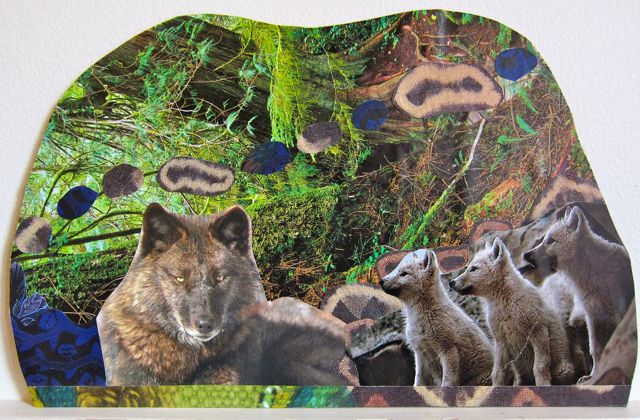
Having enjoyed our artistic experiment with The Druid Animal Oracle Deck in 2010, Ellen and I decided to offer a workshop called “Collage Your Animal Spirit Guide” at a music therapy facility in 2011. The session took place in Hamilton, Ontario and opened with all six participants selecting a random card. After reading aloud from the booklet about the selected animals, everyone received a set of pictures on which to base a collage in addition to backings, scissors, and a glue stick.
As we settled into our work one by one, minds humming in collective concentration, a silence like a seventh presence filled the room. After an hour of tearing, cutting, shaping, and gluing, we shared our artwork, celebrating each piece in turn.
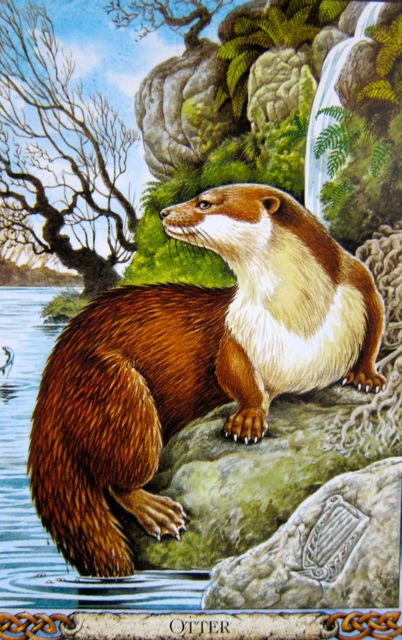
Otter was my personal animal guide that day in Hamilton. According to Carr-Gomm’s explanatory booklet, Otter “invites us to play, to ‘go with the flow’ of life and experience — to become a child again” (p. 32).
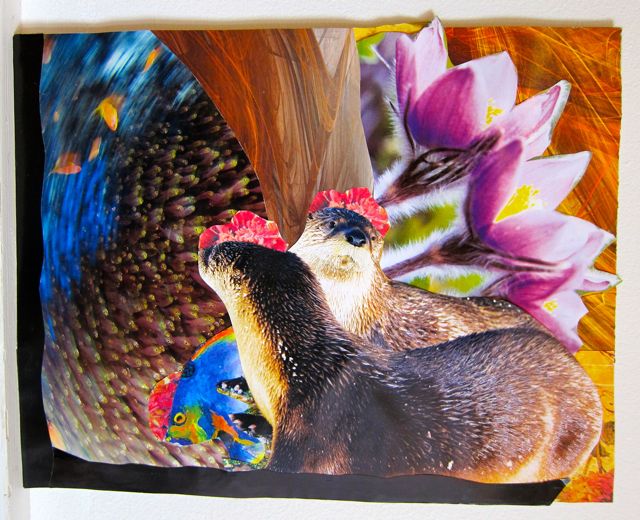
To suggest flow and movement, I included swirling fish and active grasses. For playfulness, I gave the otters and their fish friend some red flower hats.
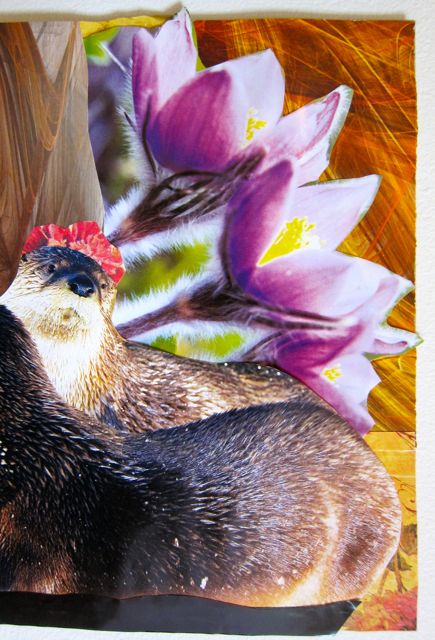
In addition to art sponsored by Wolf and Otter, seven other collages have been inspired by engagement with the Druid Animal Oracle Deck. After a gap of two years, I retrieved the deck when my mother was visiting me in Toronto. This time, Eagle rose up from the pool of cards laid out on my kitchen table. (Mom selected Hawk).
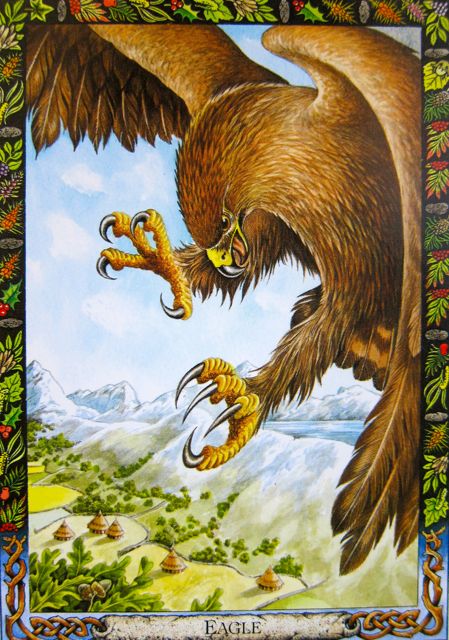
“Intelligence, Renewal, (and) Courage” are Eagle’s key words, and the booklet further asserts that Eagle “will . . . show you how to renew and rejuvenate yourself, by demonstrating the art of plunging — at the just the right moment — into the lake of the heart” (p. 24).
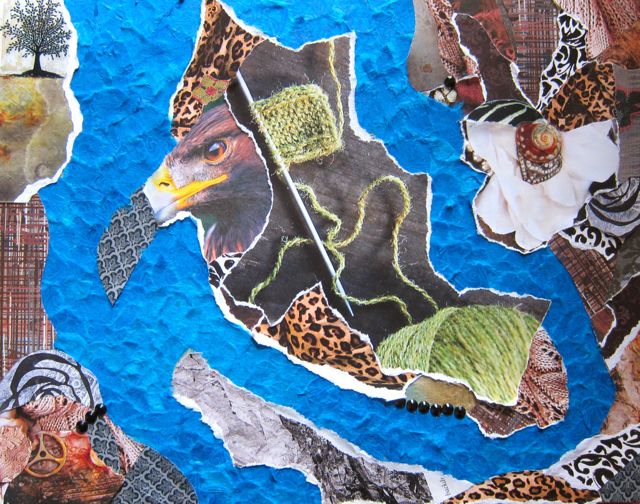
My eagle collage depicts a rare species of knitted raptor, a bird who is at home in the water as well as the sky. Much less predatory than its non-textile cousins, the knitted eagle enjoys a quiet life of introspection.
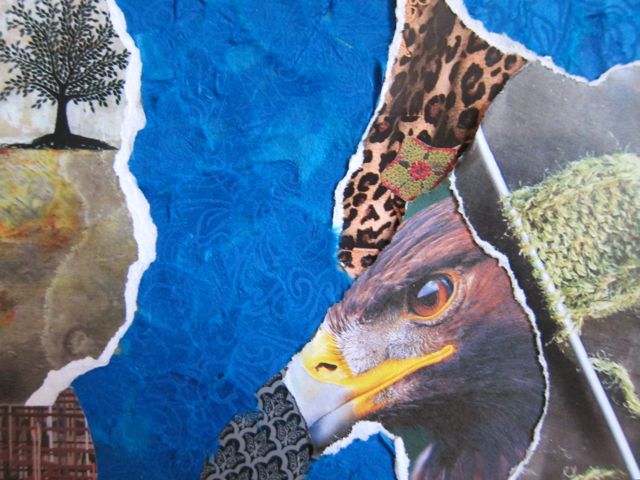

Several months after Mom’s visit, my friend Noreia and I consulted the animal spirit guides and made collages in a North York food court. This time, the card I picked belonged to Raven.
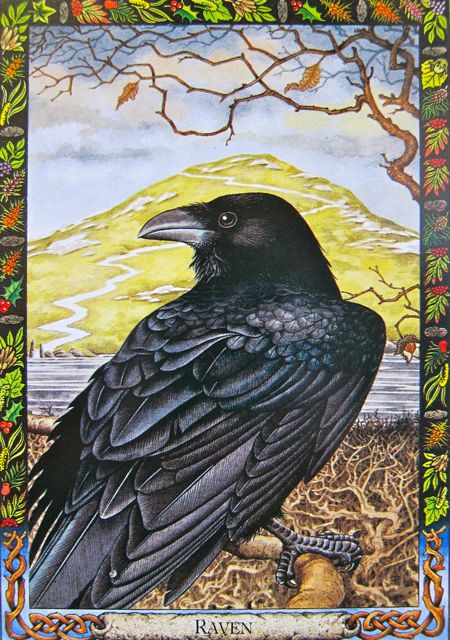
Raven represents “Healing, Initiation, (and) Protection,” and its message “may . . . mean that we can come to a resolution of the opposites — experiencing that in darkness there is light, and in light darkness” (p. 20).
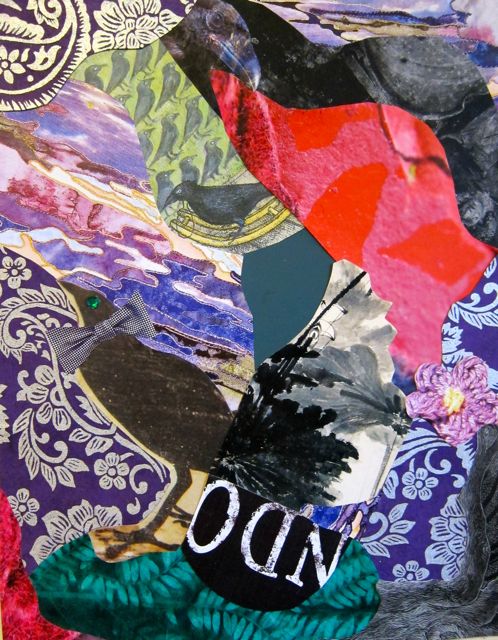
In my collage, three ravens consider life among the swirling patterns, discerning mysteries with their keen eyes.
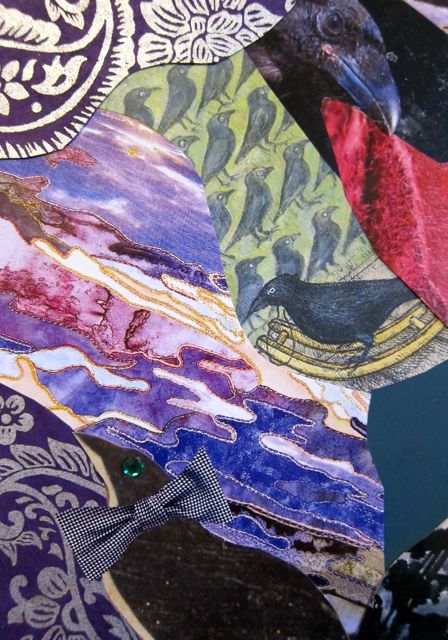
A subsequent session with Noreia saw us spreading out collage materials and the deck on a large wooden table at Balzac’s Coffee Roasters. I chose Frog, whose key words are “Sensitivity, Medicine, and Hidden Beauty and Power” and who reminds us to “look for the beauty and the magic behind appearances” (p. 19).
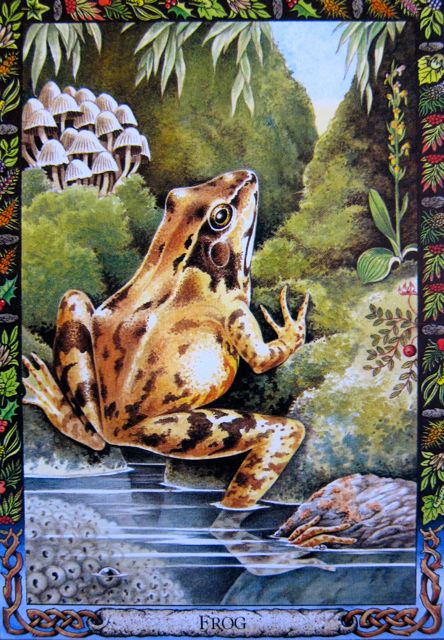
Carr-Gomm’s booklet also states that Frog is “a companion of the rain spirits” who can “help you develop your sensitivity to others, to healing and to sound through your skin and your whole body” (p. 19).
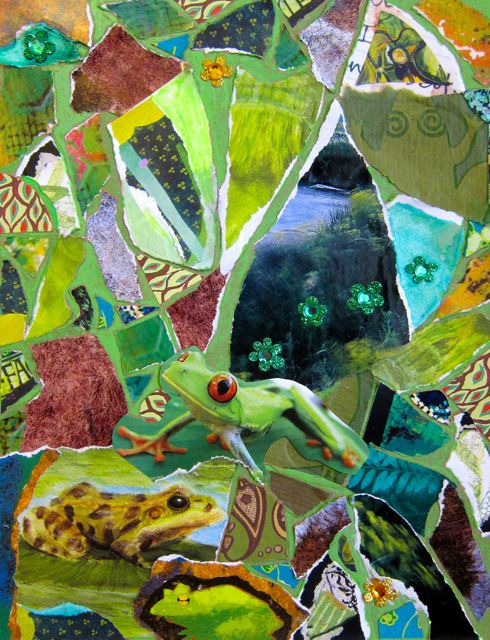
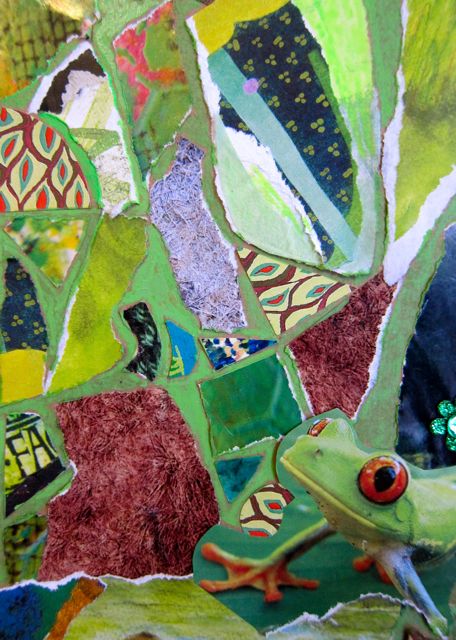
Goose followed Frog as the next creature-collage inspired by The Druid Animal Oracle Deck. At Noreia’s suggestion, we auditioned a different wooden table at a new coffee shop for the session, and it proved to be a goose-friendly venue.
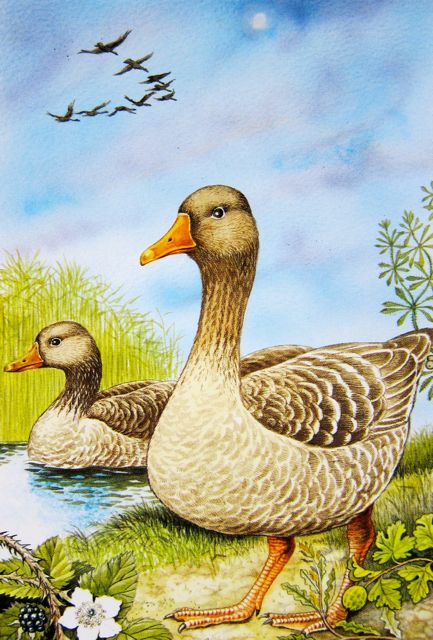
When I turned to the booklet’s page about Goose, I discovered that its main attributes are “Vigilance, Parenthood, (and) Productive Power” (p. 27). Additionally, Goose’s talent for attentive parenthood and soaring flight “shows us that it is possible to be both grounded and spiritual in our daily lives” (p. 27).
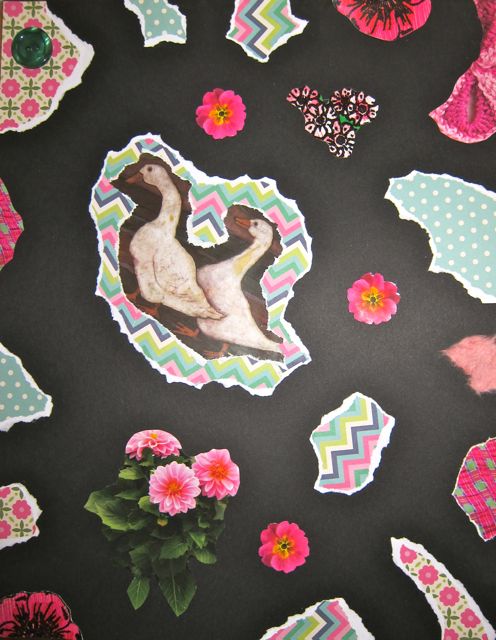
After Goose, Seal surfaced as the next animal spirit mentor during an oracle session that Noreia and I conducted at a home retreat.
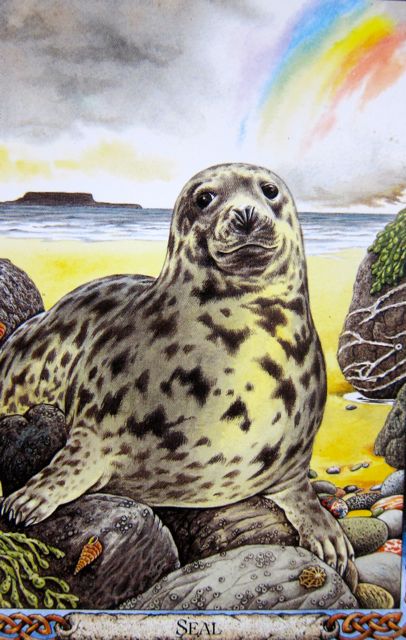
Symbolizing “Love, Longing, and Dilemma,” Seal can “act as a guide and companion through the watery realm of the emotions and the Otherworld” (p. 40).
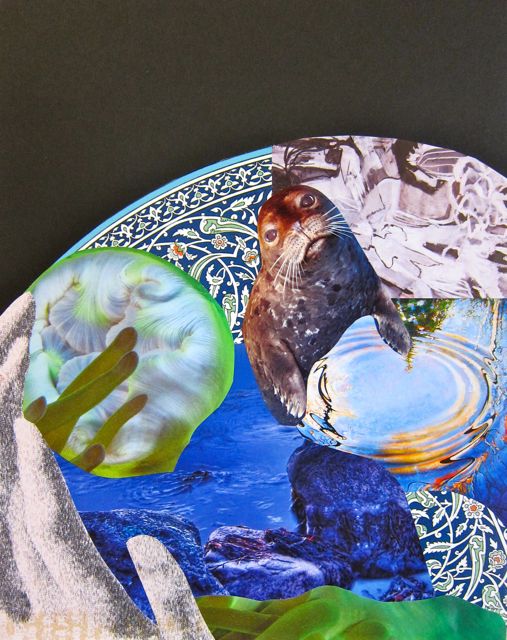
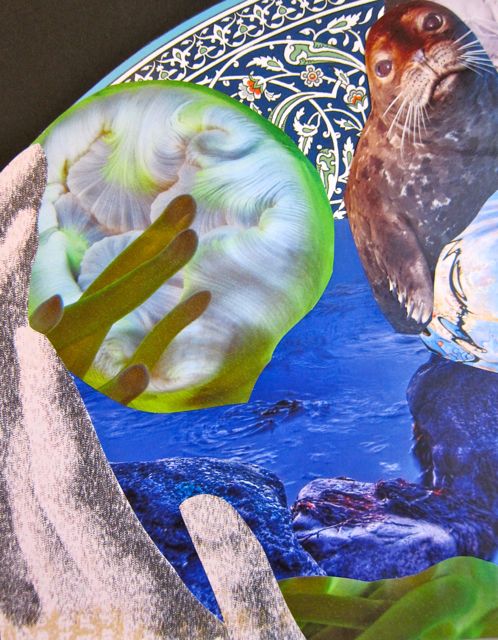
Cat followed Seal to serve as a guide in the series, and Carr-Gomm’s booklet explains that “Cat brings us the ability to observe situations quietly, without judgment, before making decisions” (p. 17).
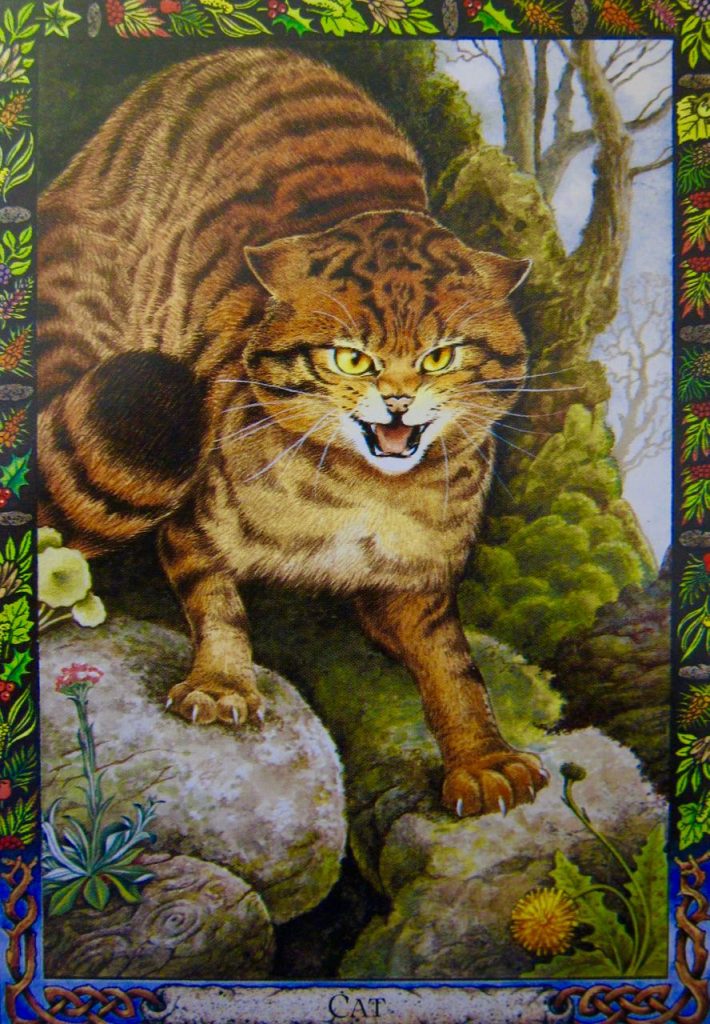
For Flying Flower Cat, a calm and grounded mind provides the ideal springboard for flight.
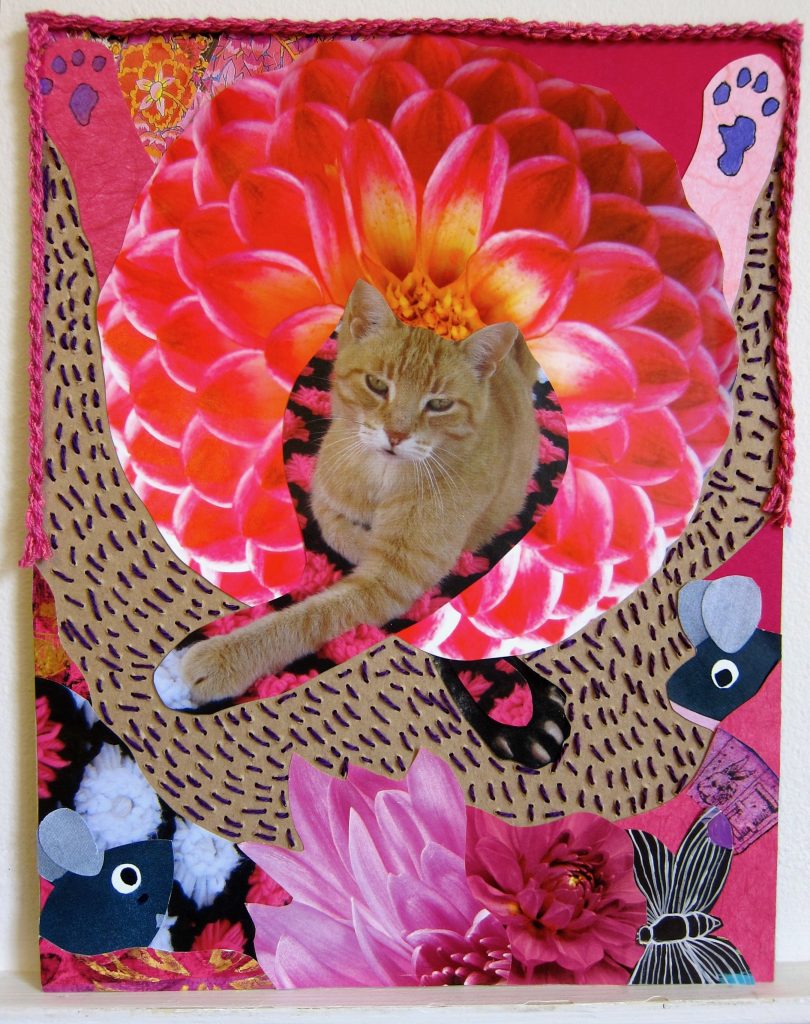
Finally, Salmon has been the most recent educator chosen from the deck, but other animals patiently wait for their turn to advise. As for the nine creatures who arrived from 2010 to 2016, I’d like to express my gratitude to Wolf, Otter, Eagle, Raven, Frog, Goose, Seal, Cat, and Salmon for their energizing insights and creativity!
2022 Update
Salmon’s collage is dedicated to the memory of Ellen S. Jaffe, who loved consulting The Druid Animal Oracle Deck and making art in community.
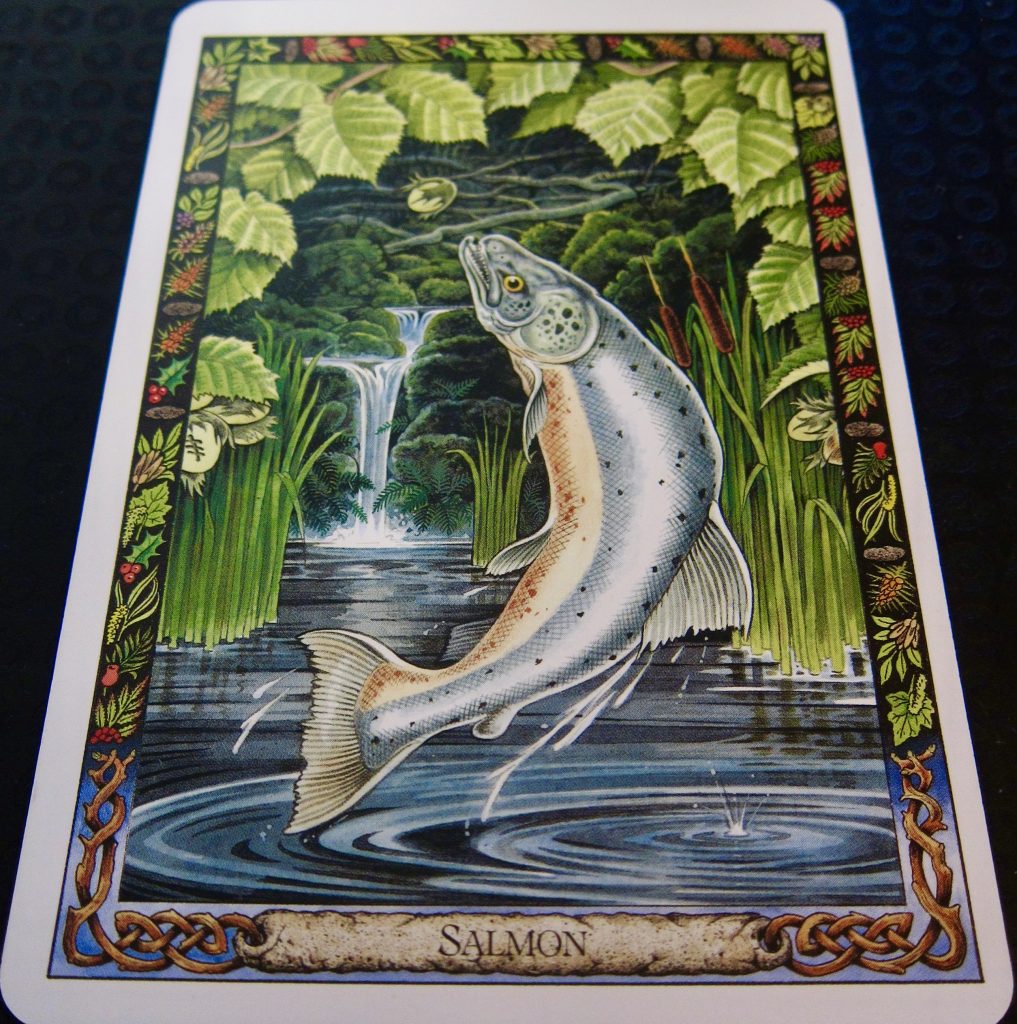 Illustrated by Bill Worthington
Illustrated by Bill Worthington
As the oracle deck’s booklet relates, Salmon responds to upstream challenges with “wisdom and inspiration” (p. 30), and Ellen exemplified this spirit when she wrote poems about living with (but not being defined by) cancer. Like Salmon, she created an arc of beauty in adversity: turning to the sanctuary of art, reciting poems in her head during scans and treatments, and imagining the counsel of her late father, a doctor.
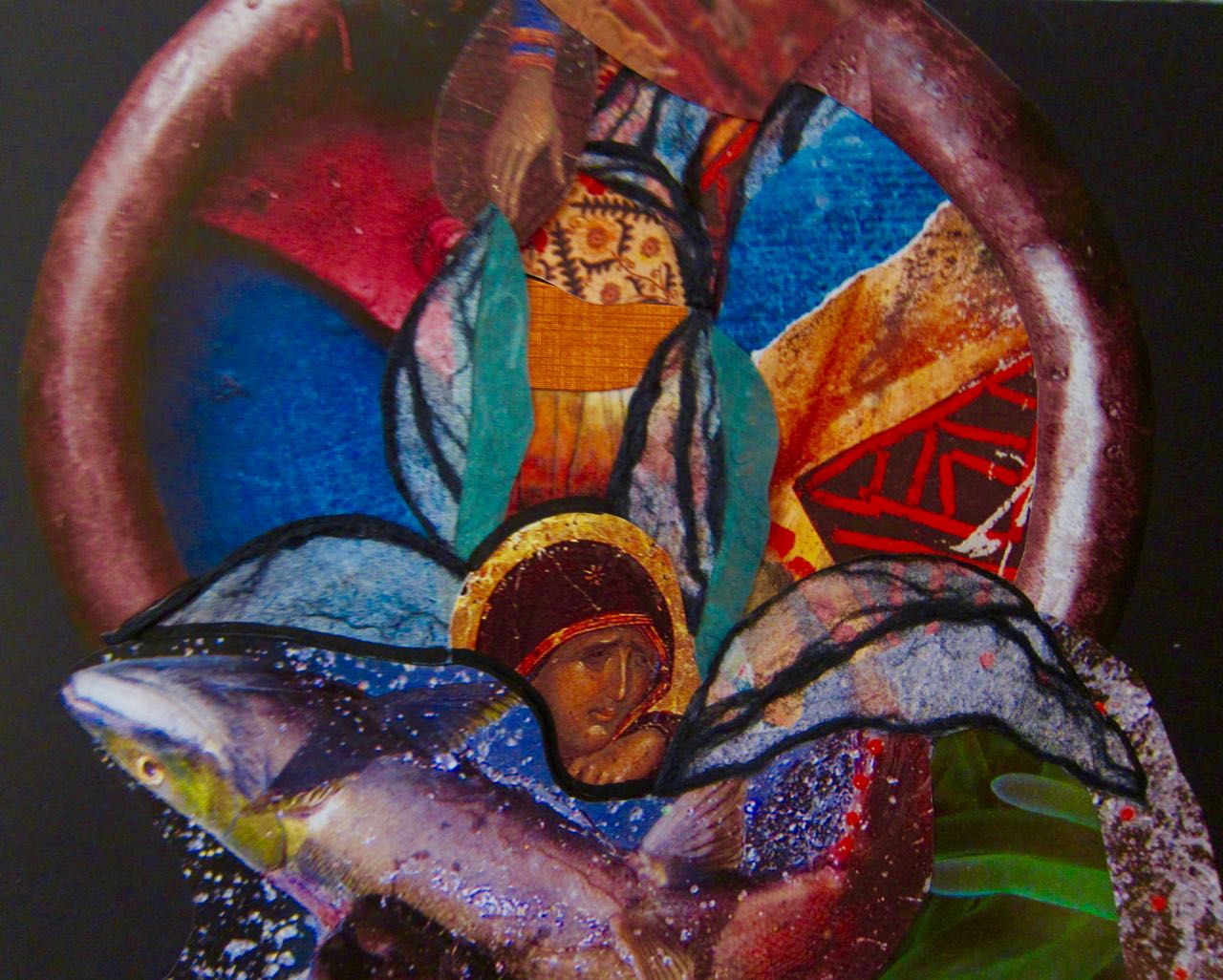 Seized by Loss, Catherine Raine 2016
Seized by Loss, Catherine Raine 2016
Ellen died the day after her 77th birthday, cocooned in a cycle of return to her “beginnings . . . and perhaps beyond” (p. 30). While she was here with us, Ellen inspired, encouraged, and connected hearts with her poetry, activism, counseling, teaching, mothering, and friendship. For example, after hearing news of my grandmother’s death in 2008, Ellen introduced me to the phrase, “May her memory be a blessing,” explaining that it is a Jewish prayer to comfort the family of the deceased. Her compassionate words consoled me then and return to me now with a message of solace.
Ellen’s example shows what it means to live a life that blesses others, and in her legacy “lives the dearest freshness deep down things” (G. Hopkins’ God’s Grandeur, 1877) that soften the pain of loss. Ellen, thank you for being my friend and mentor. Your memory blesses, has blessed, and will bless us for generations.
Fall to Winter From the Bluffs
Found Shadows and Reflections
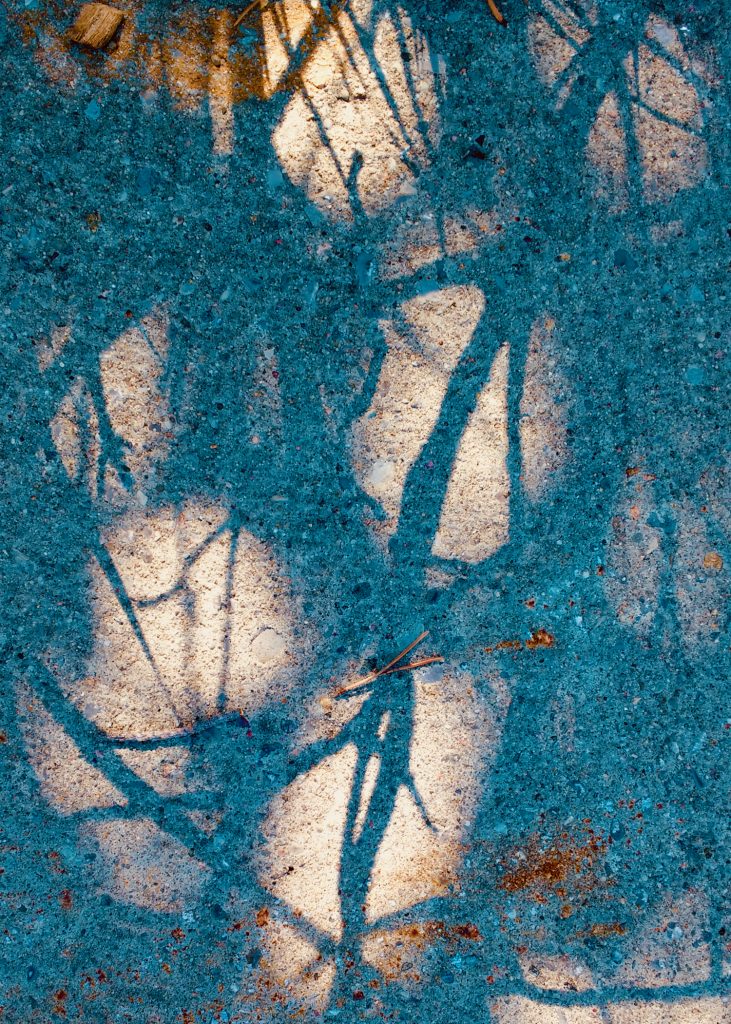
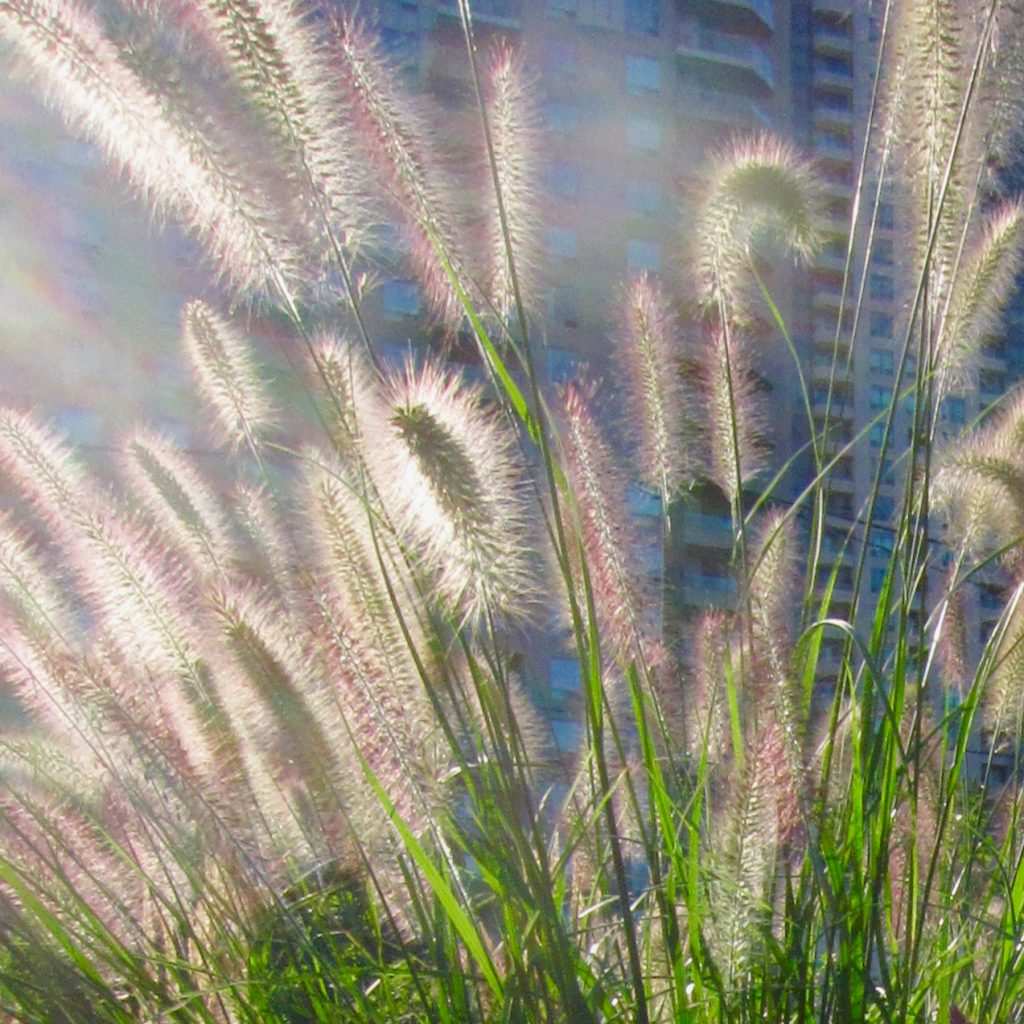

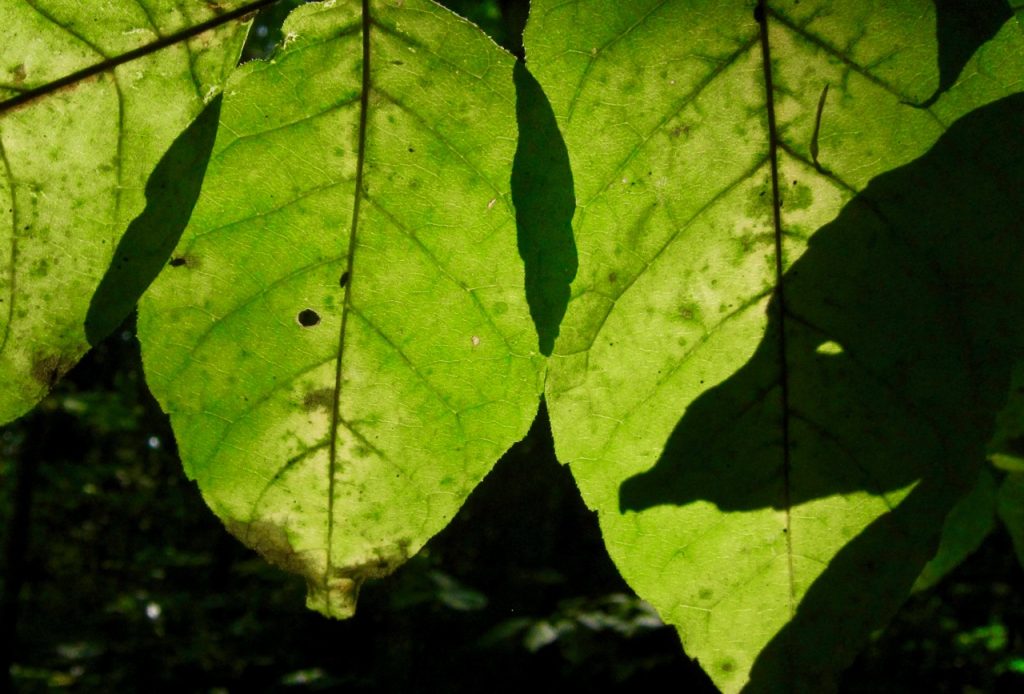
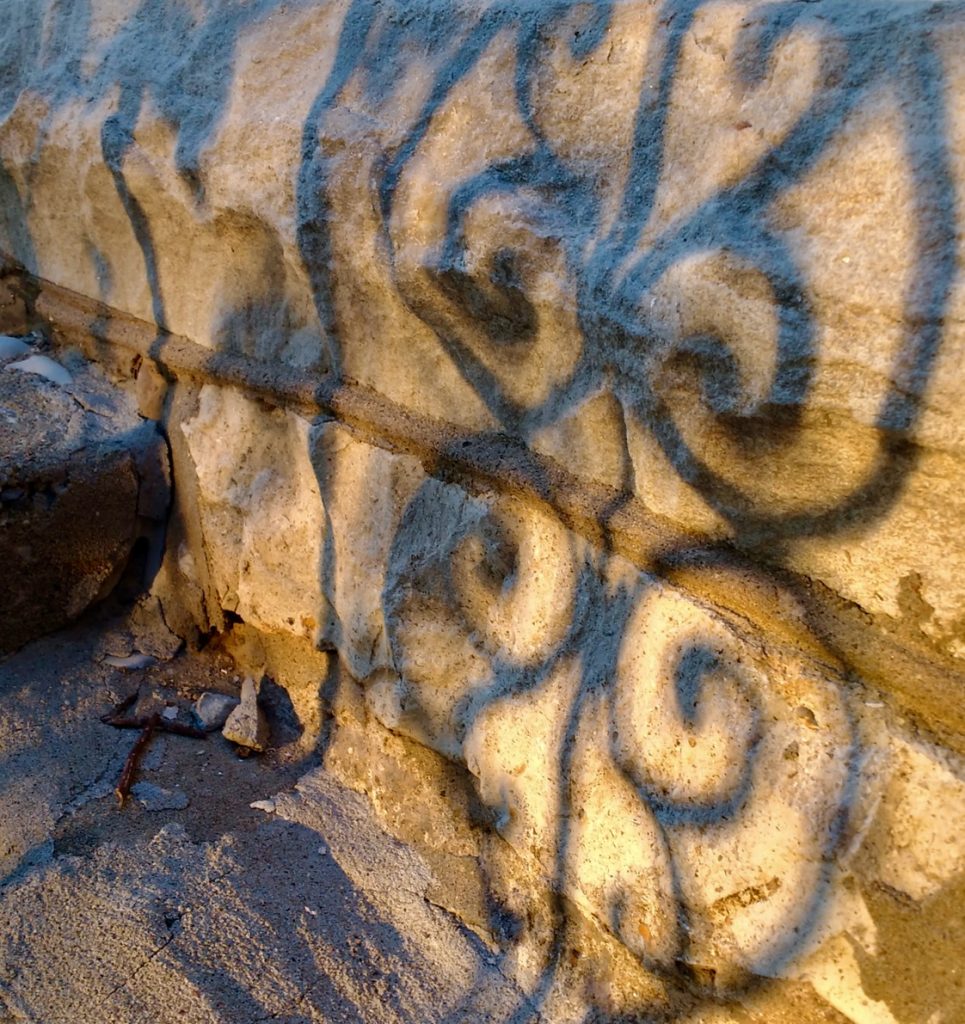
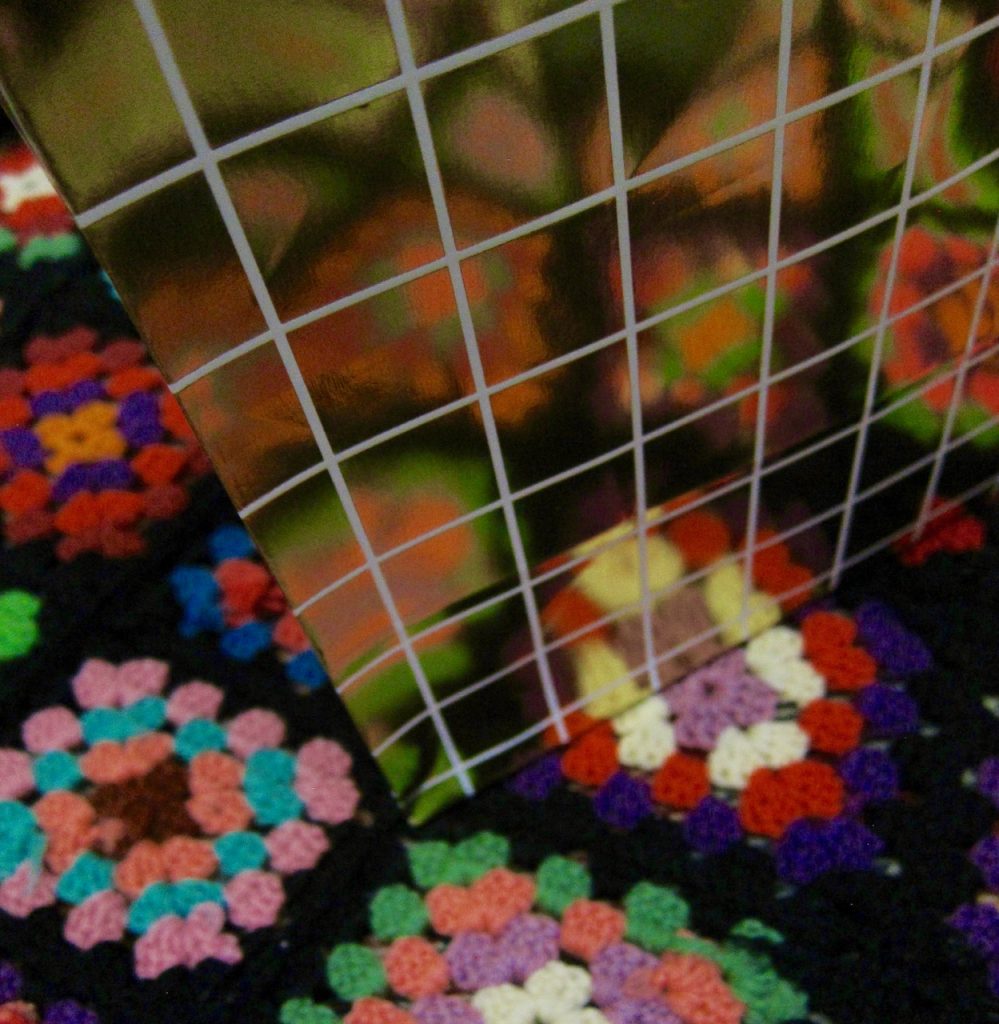
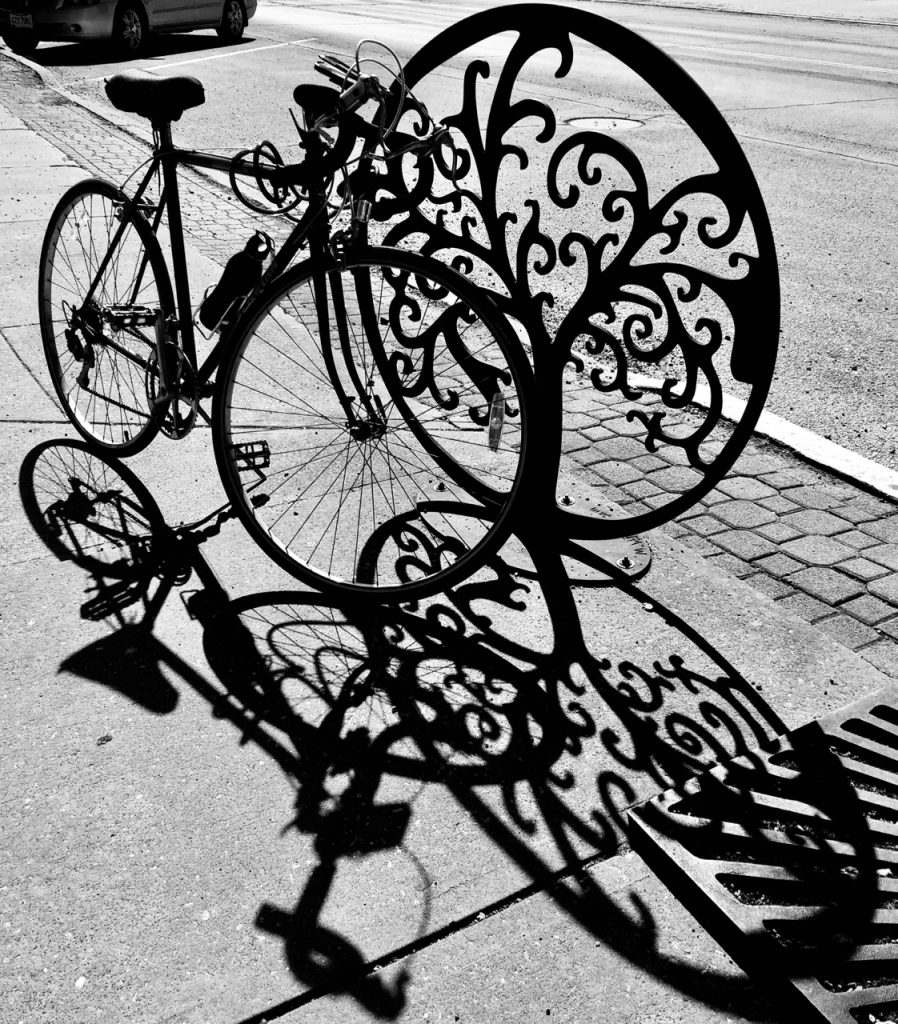
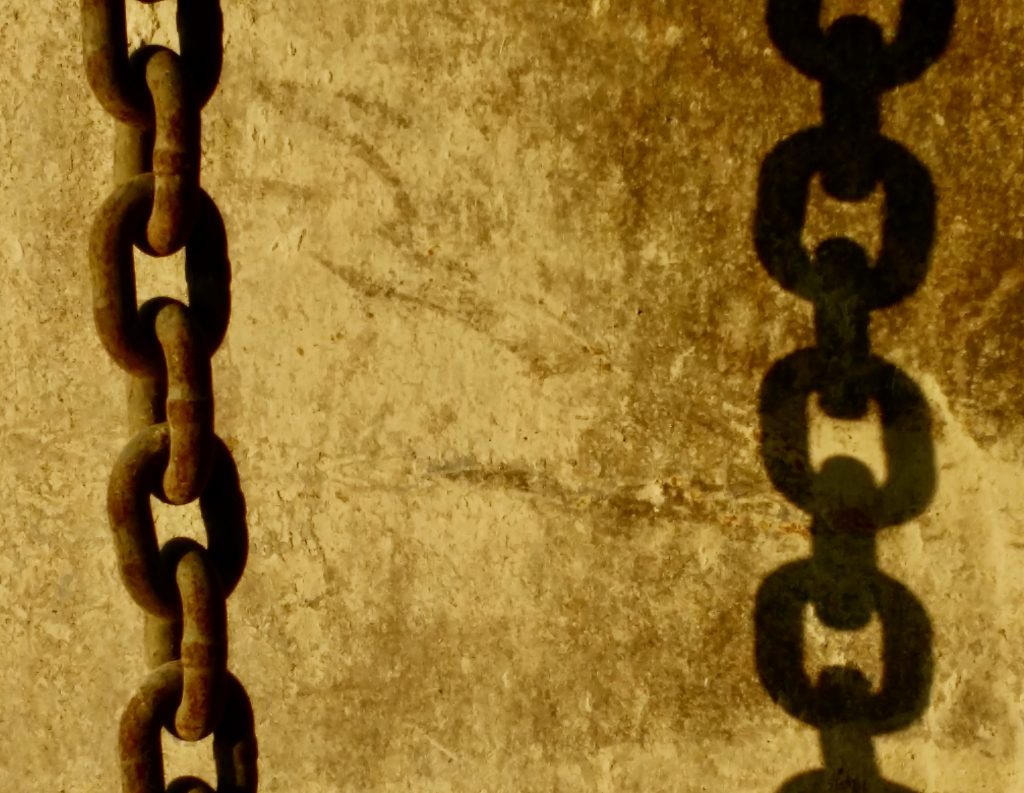
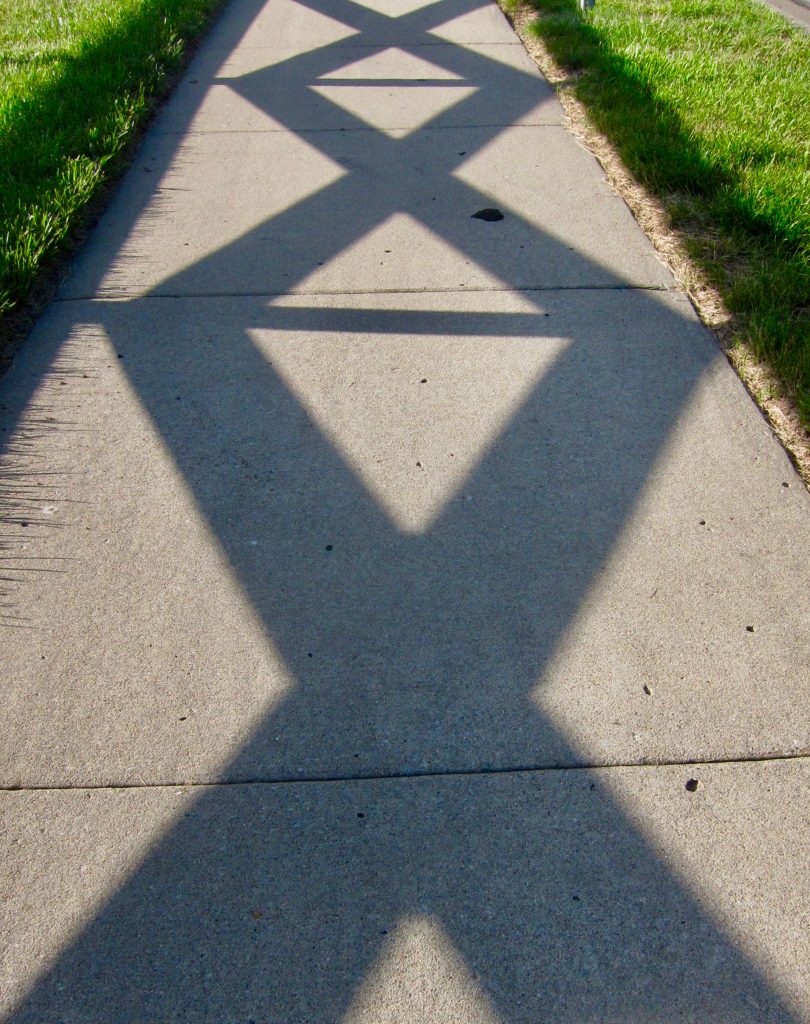
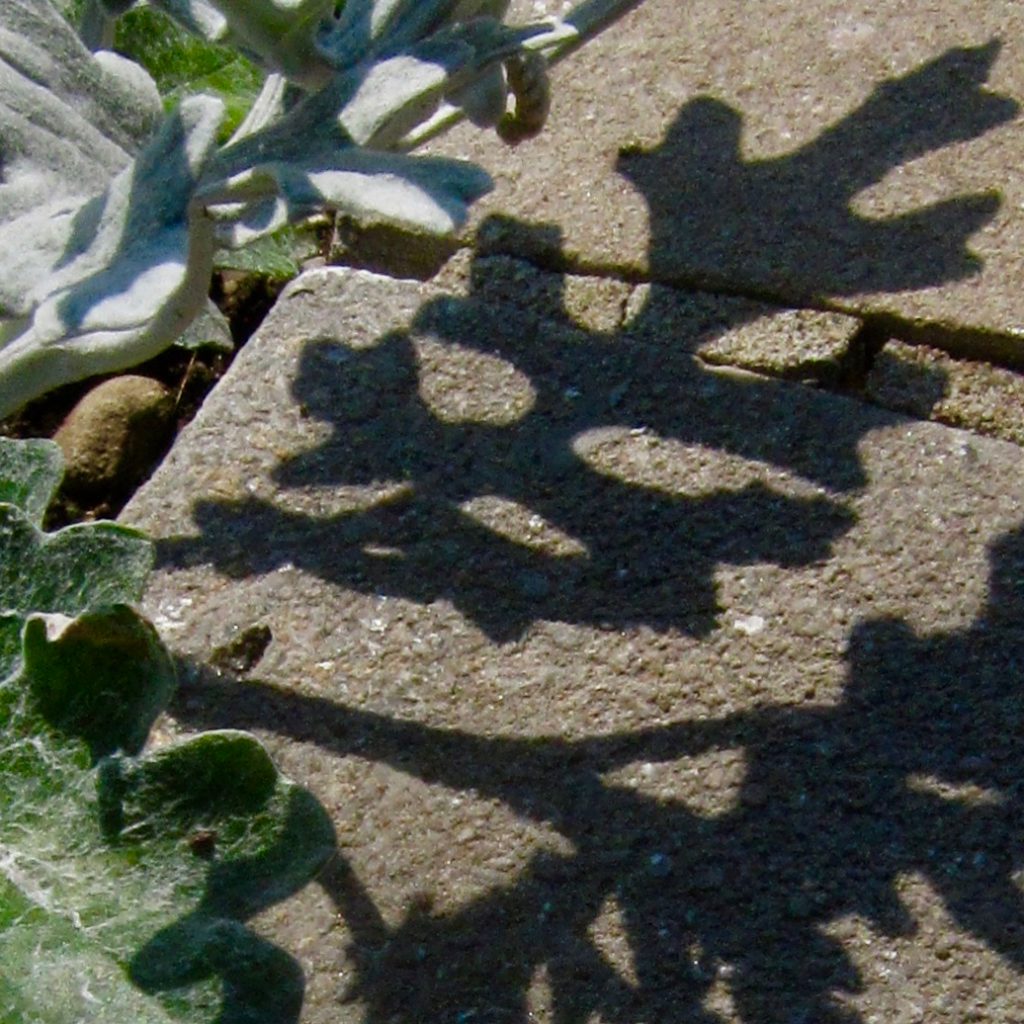
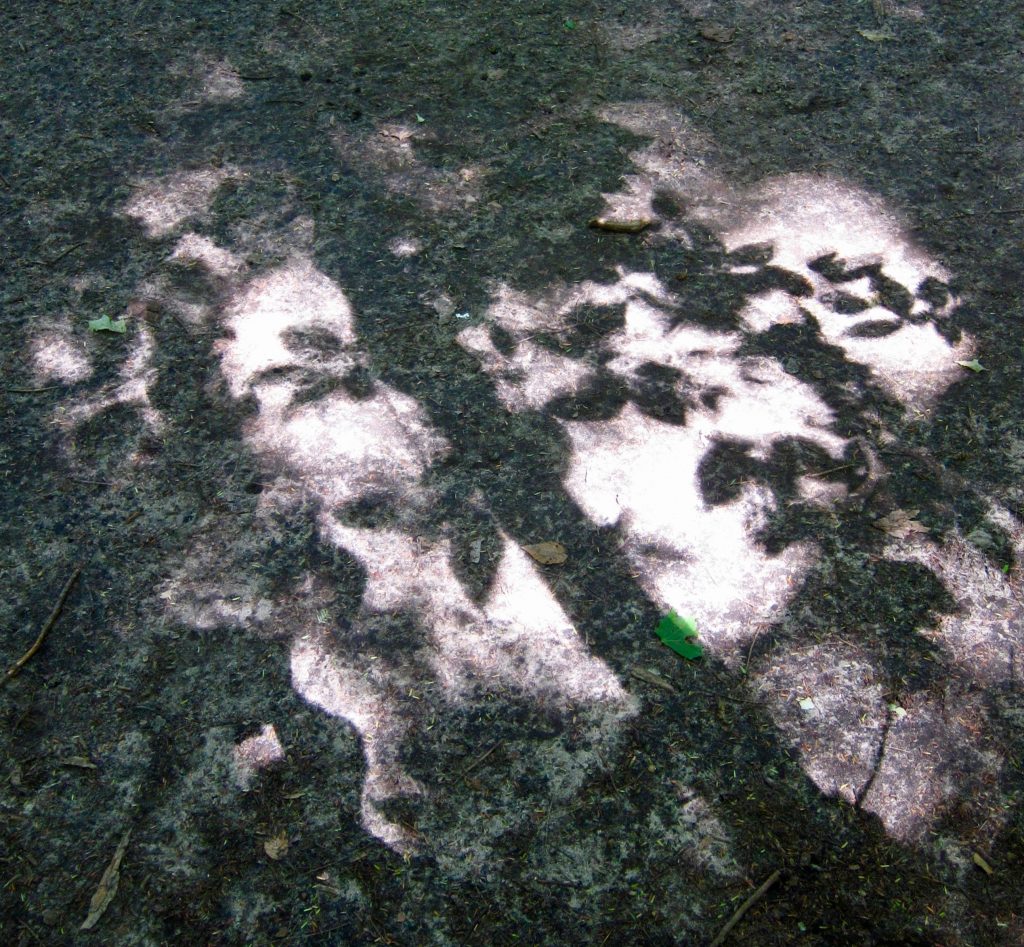
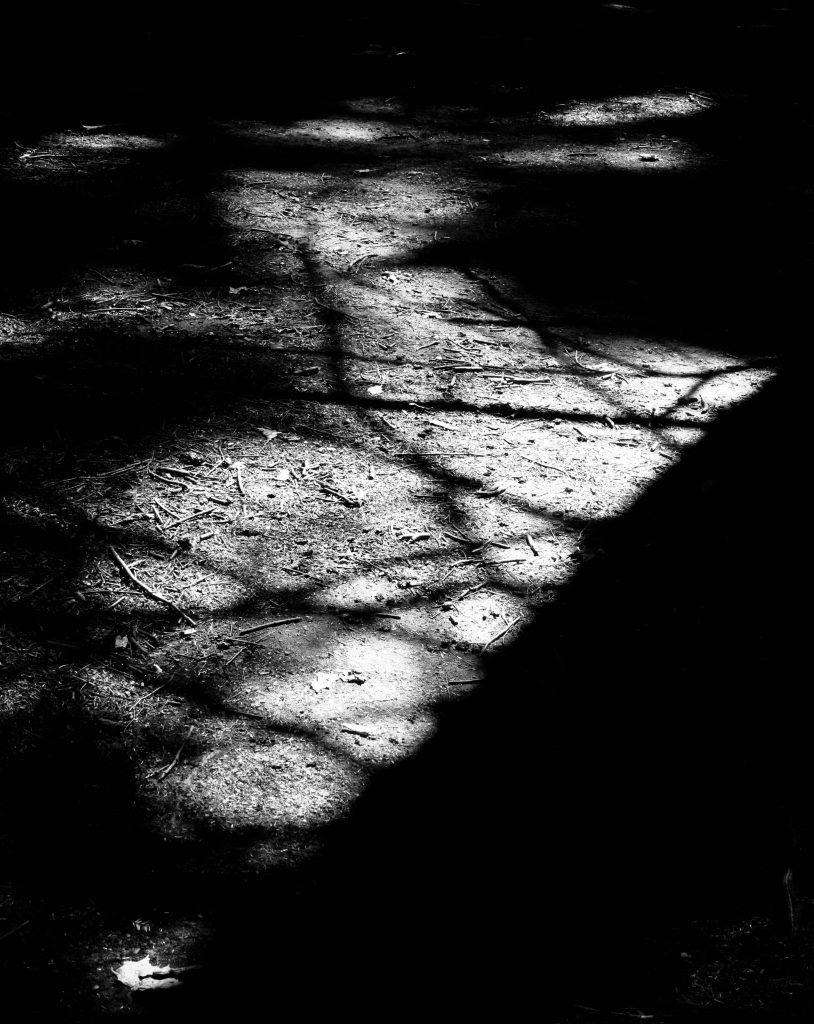
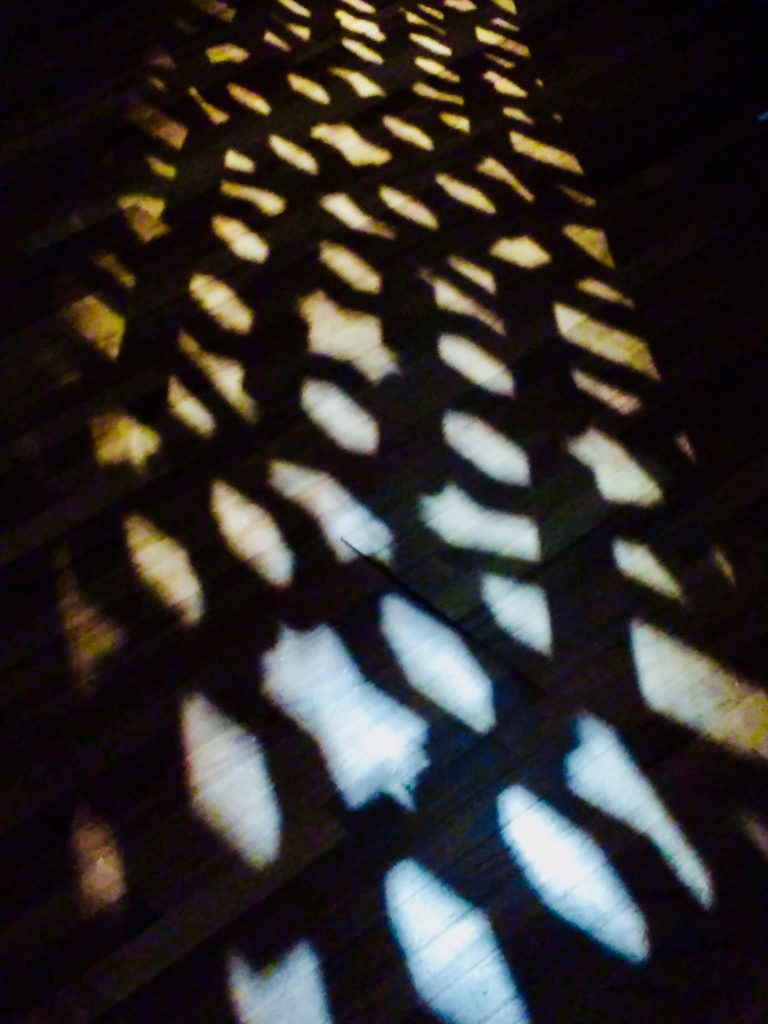
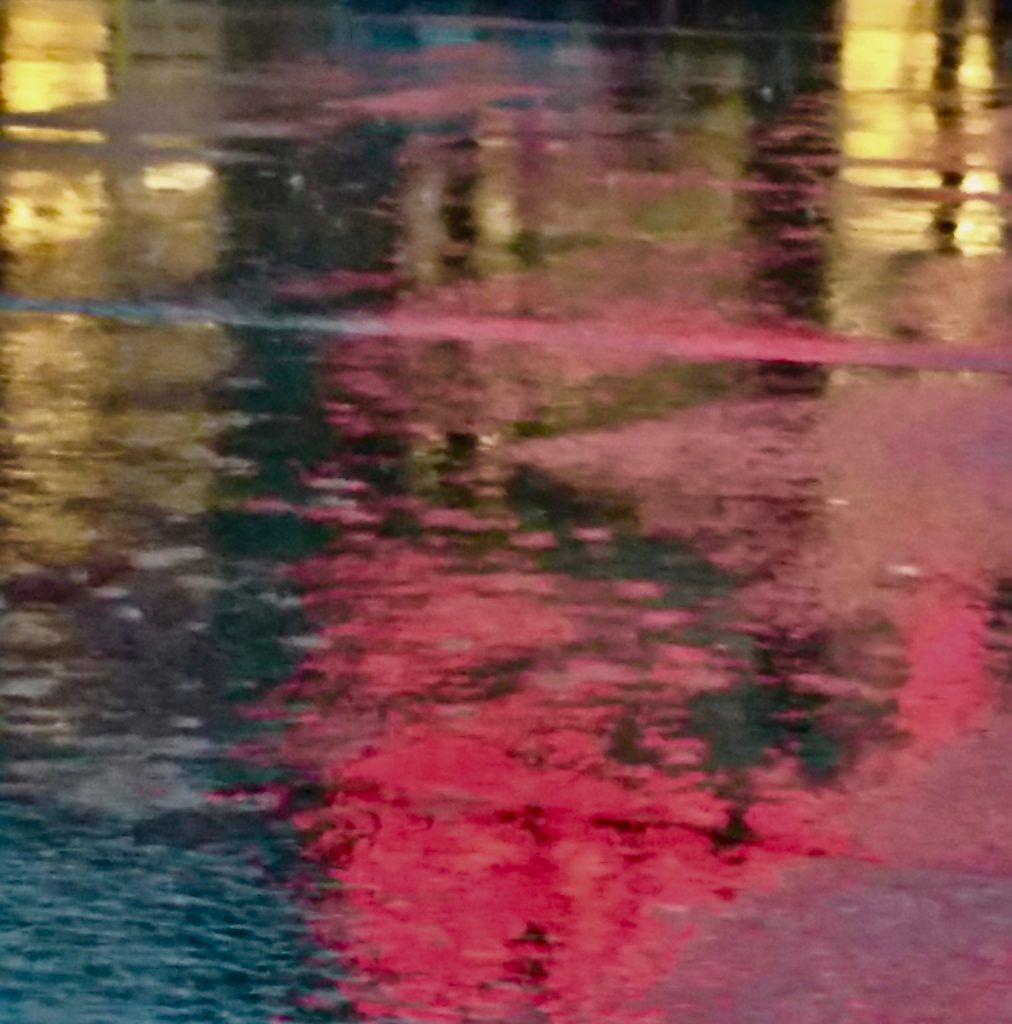
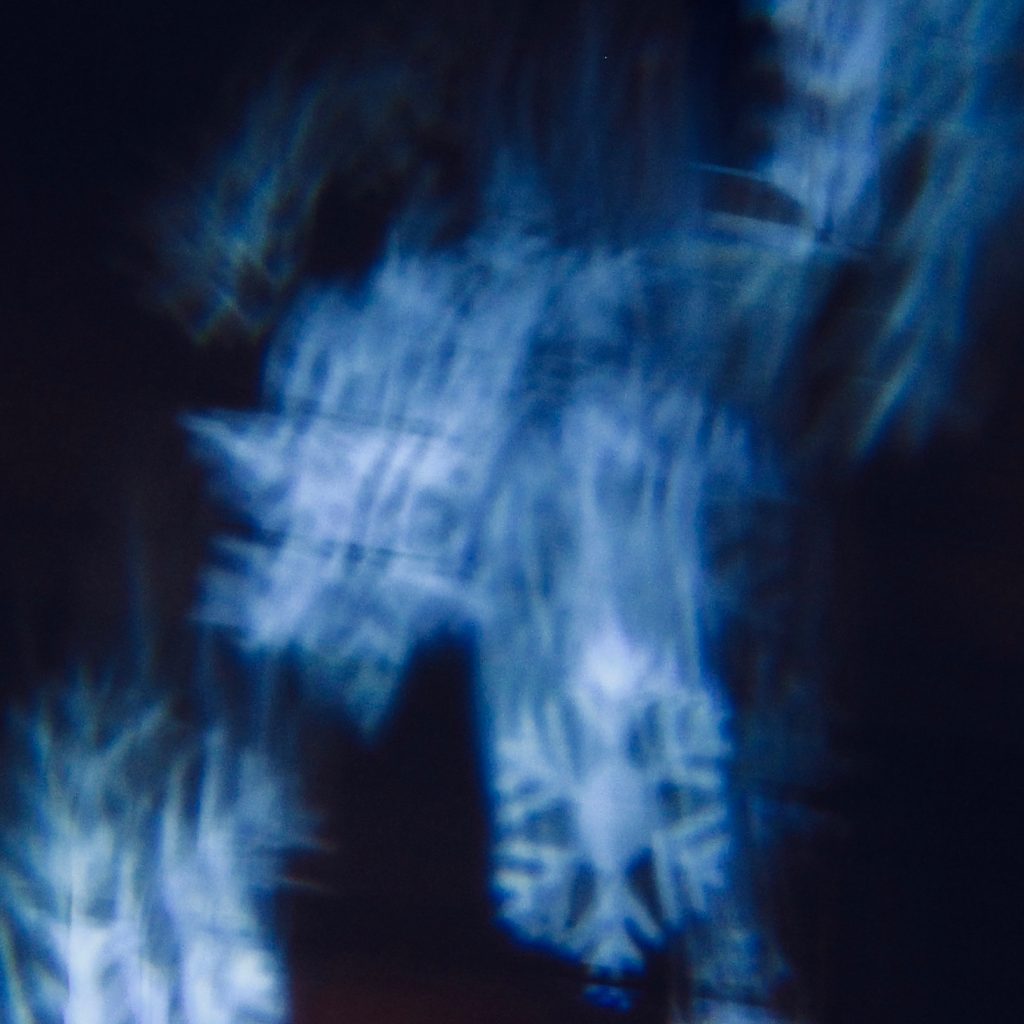
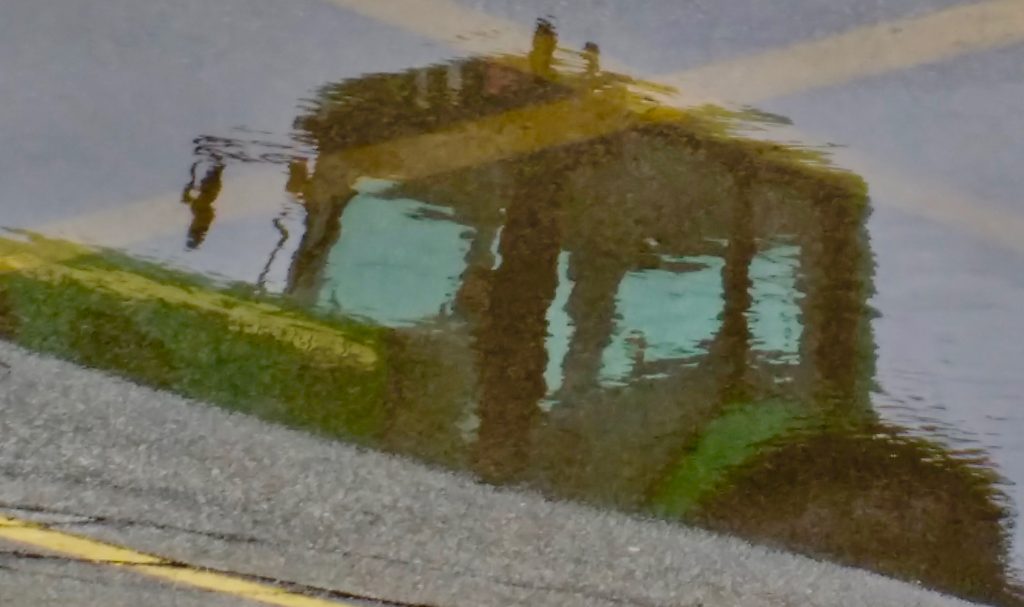
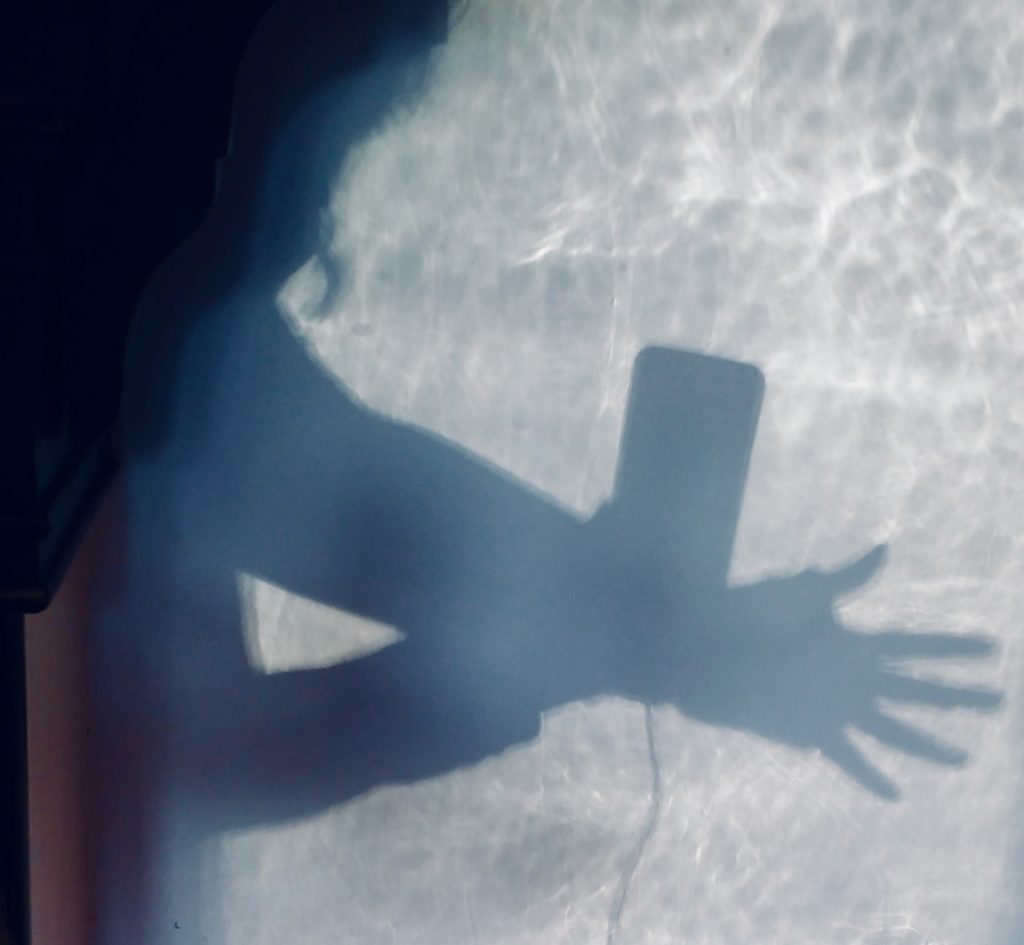
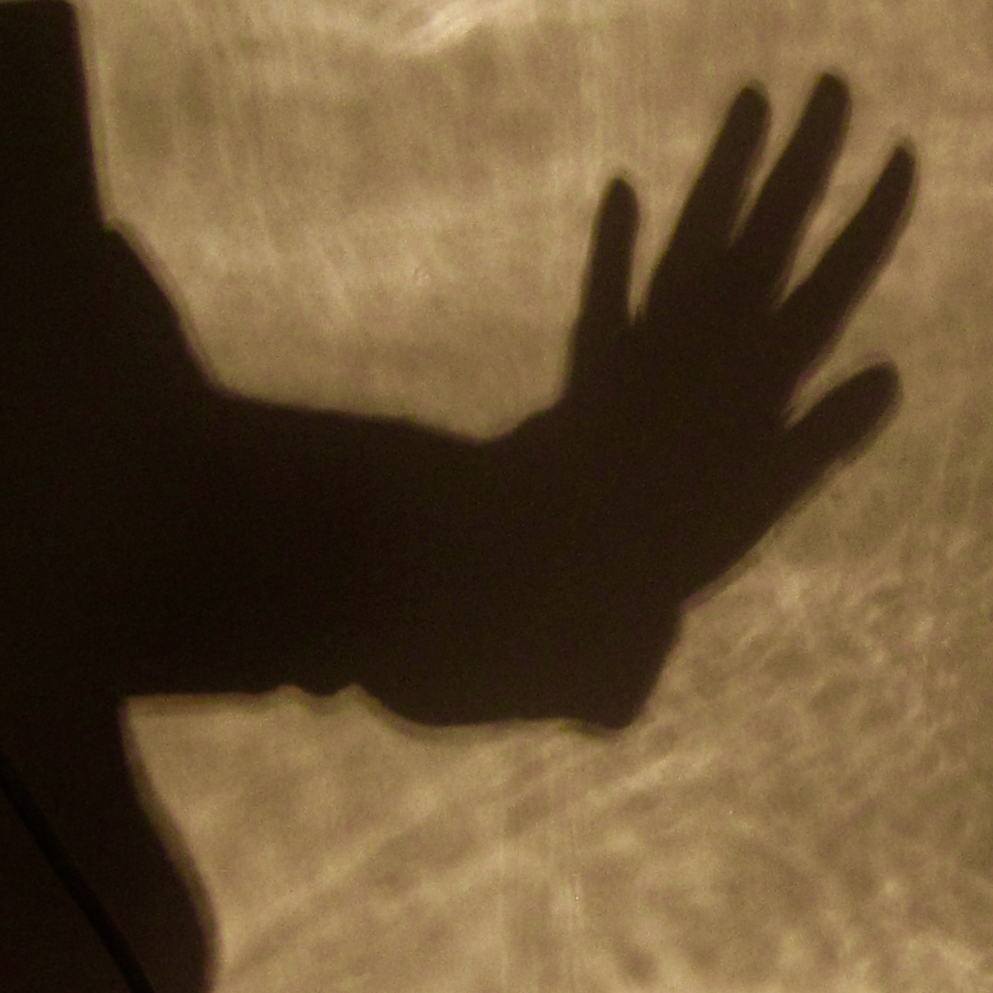
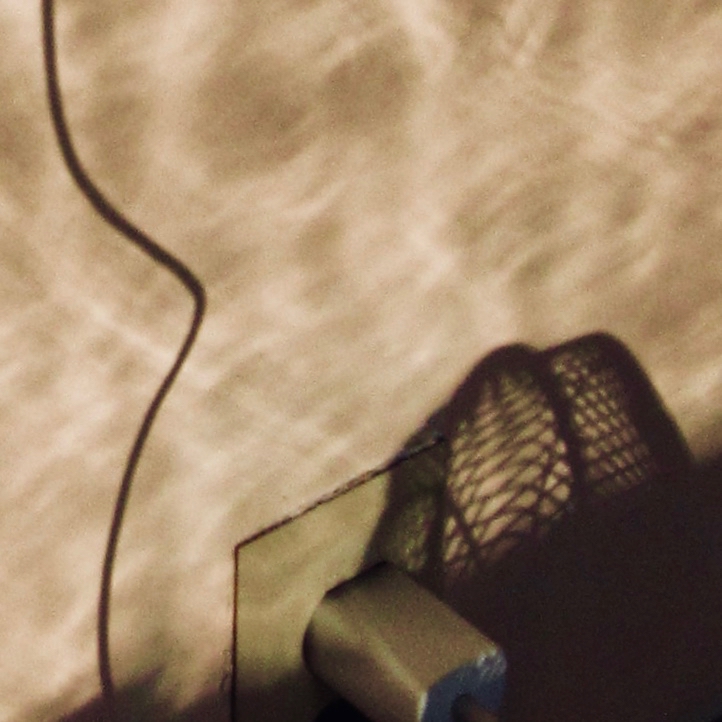
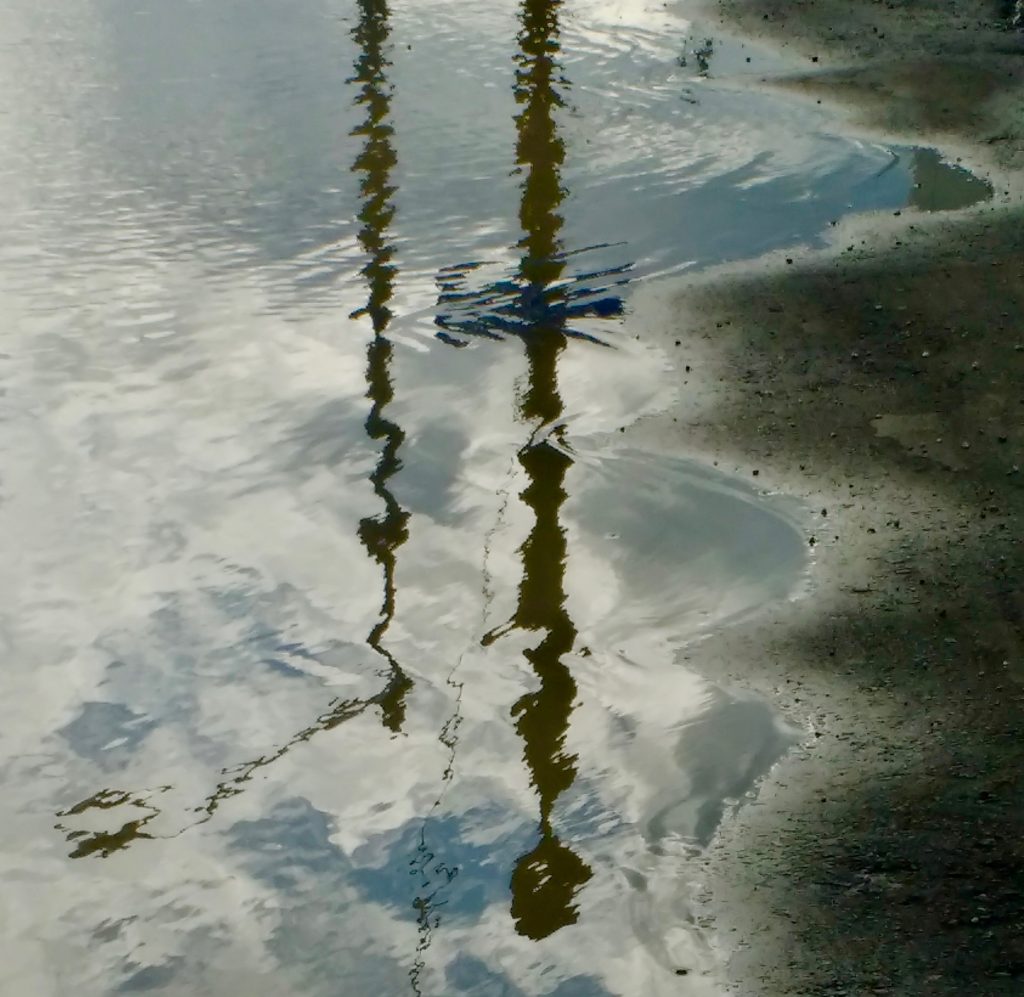
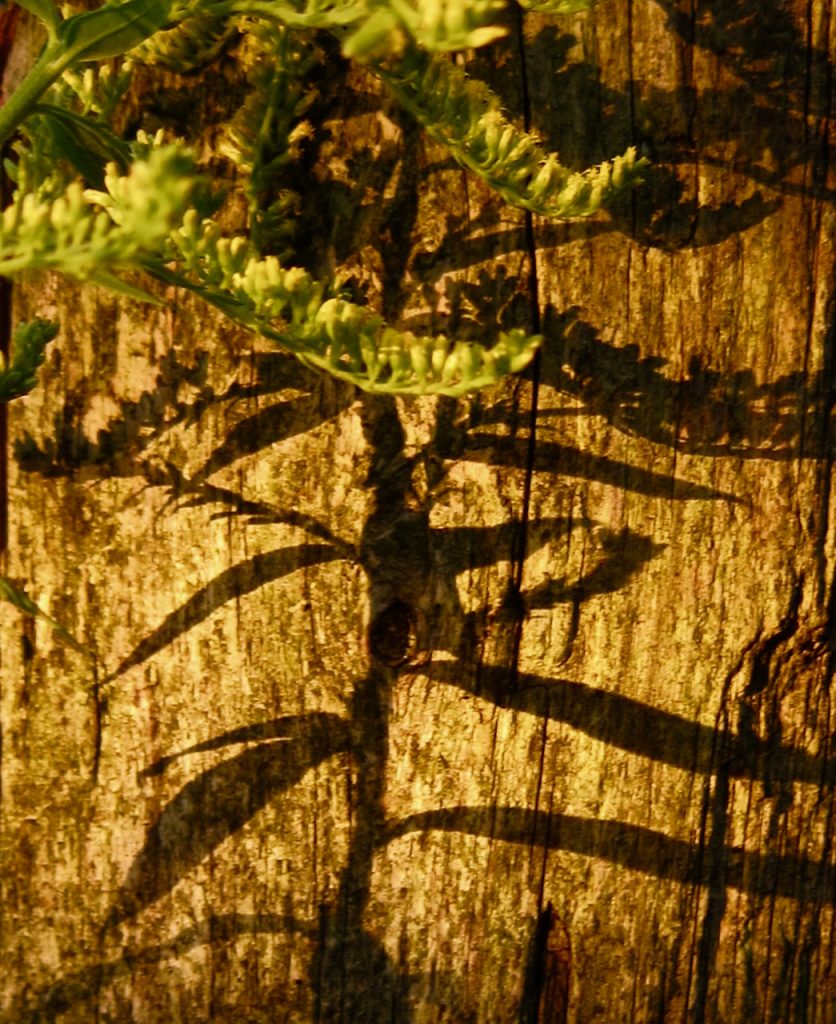
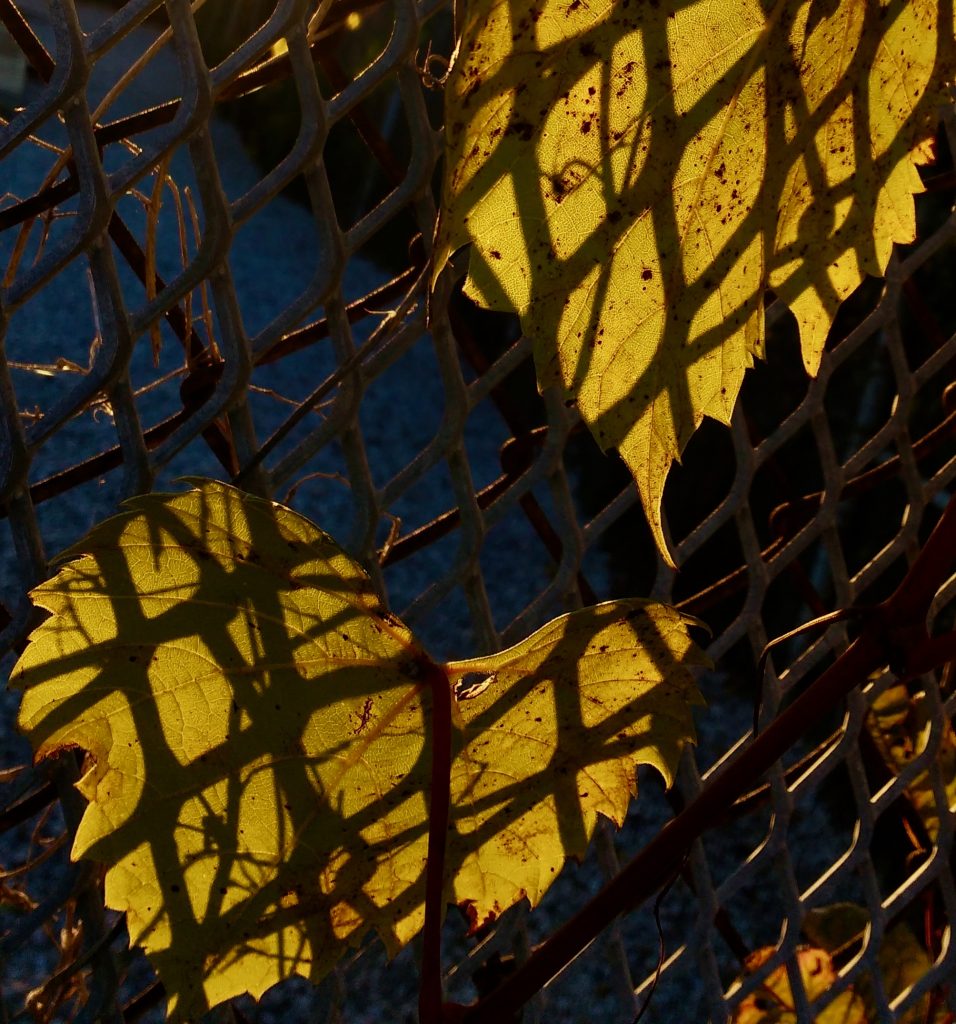

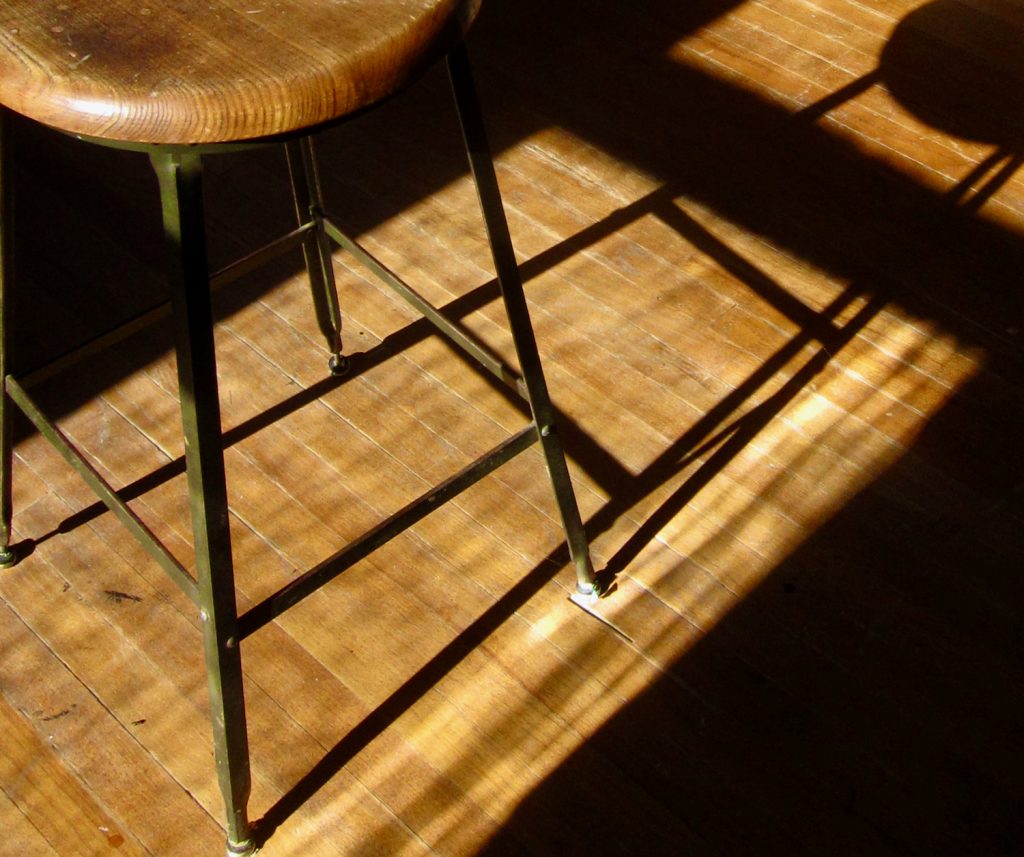
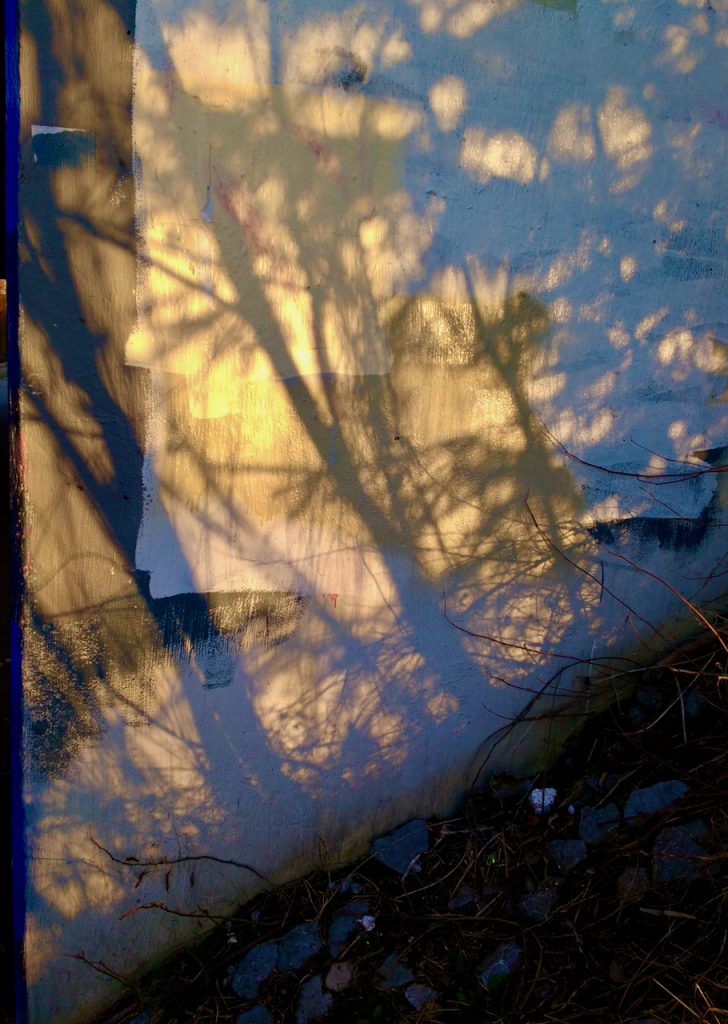
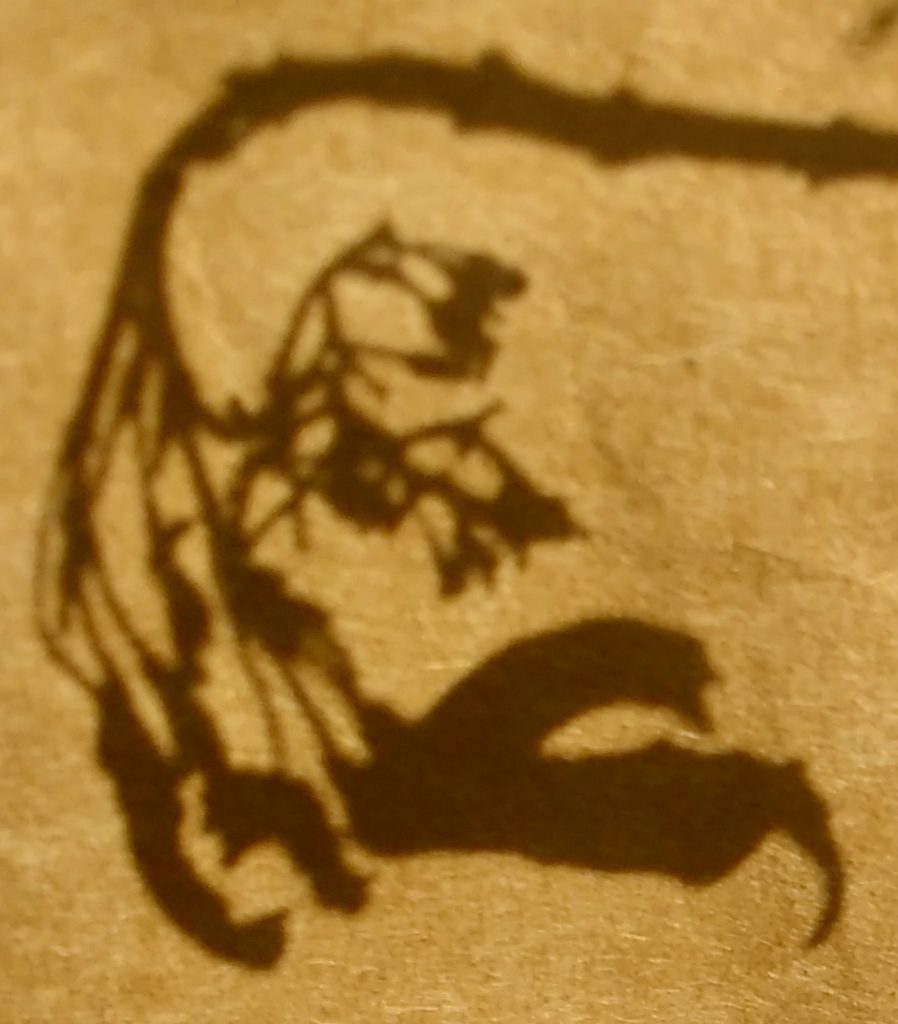
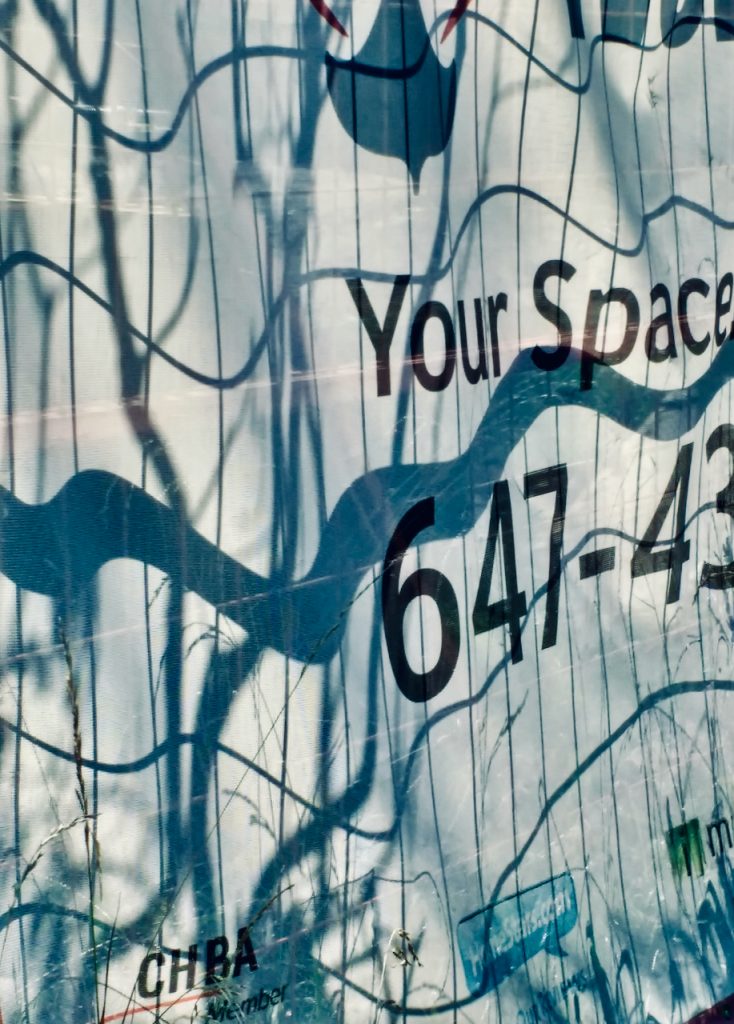
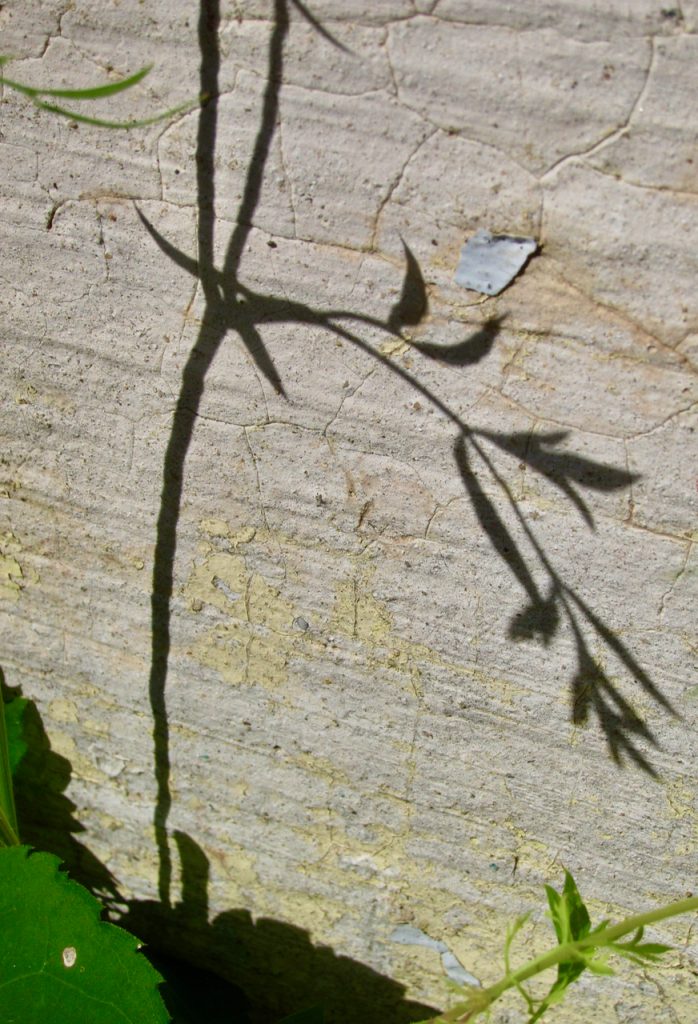
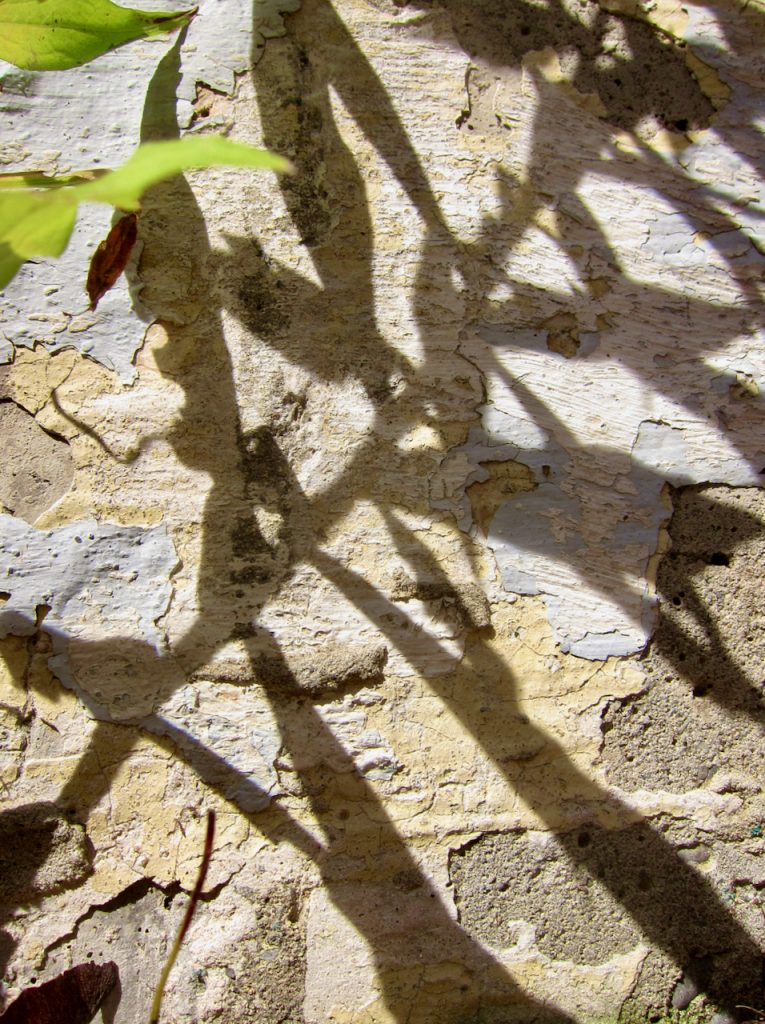
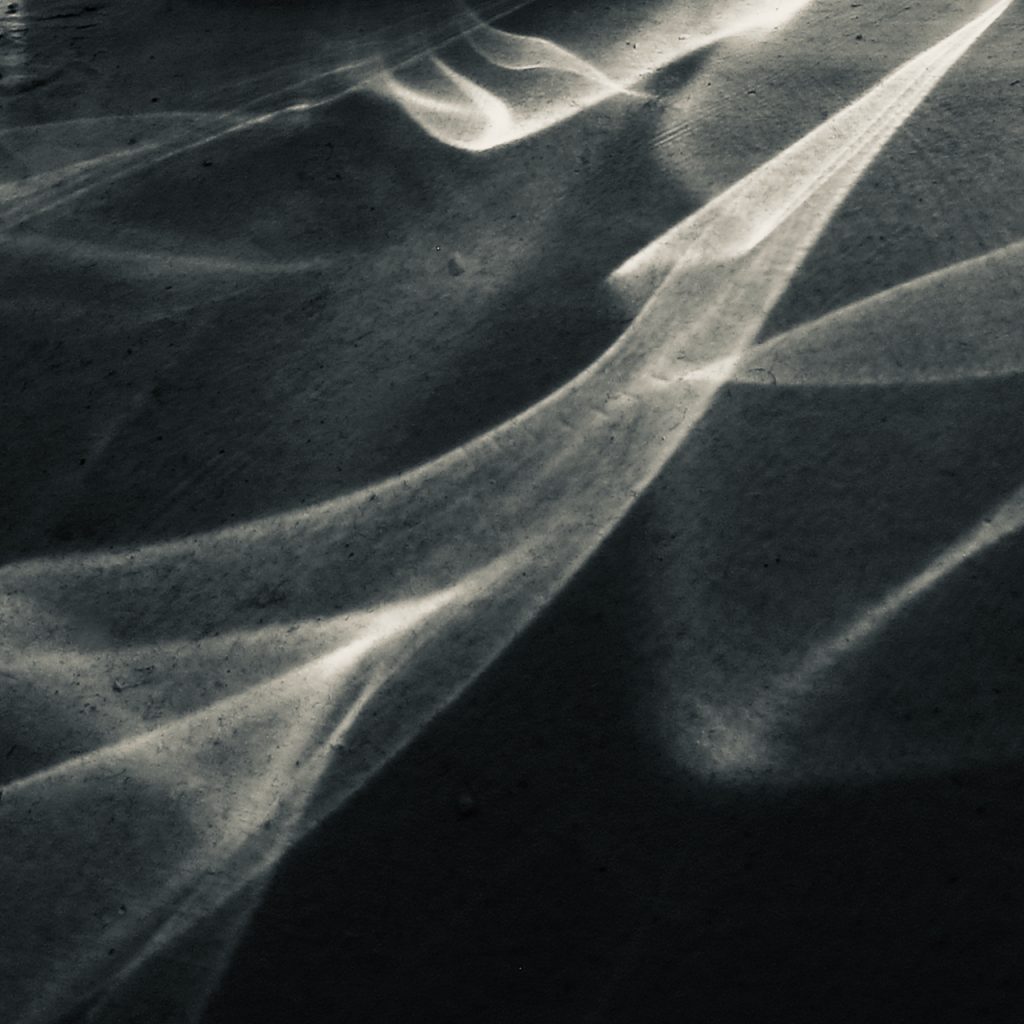
Milkweed Pod Study
Images of Summer 2021
Immersive Van Gogh Exhibit
Missouri City, Missouri
Sand, Sky, and Water Designs
44 Images
Taylor Massey Park at Dawn
Glimpses of Fall within Spring
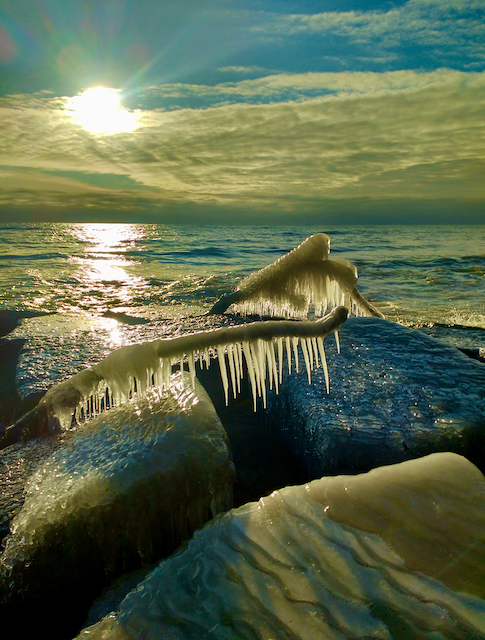
After the storm, spindles of ice turn a length of driftwood into a sparkly comb, and a forsaken branch nearby bears ice down to the stone.
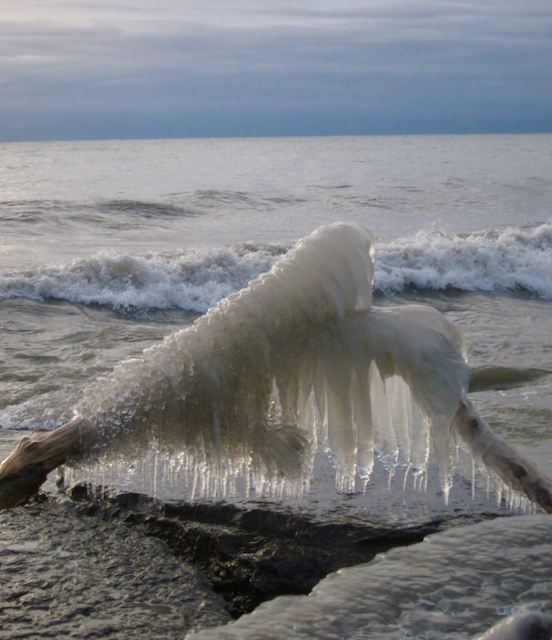
Anchored in a resolute stance between jutting shards of rubble, repeated lashings of water and freezing spells have burdened the wooden frame. However, a thousand gale-driven waves have not been able to shake it from its moorings.
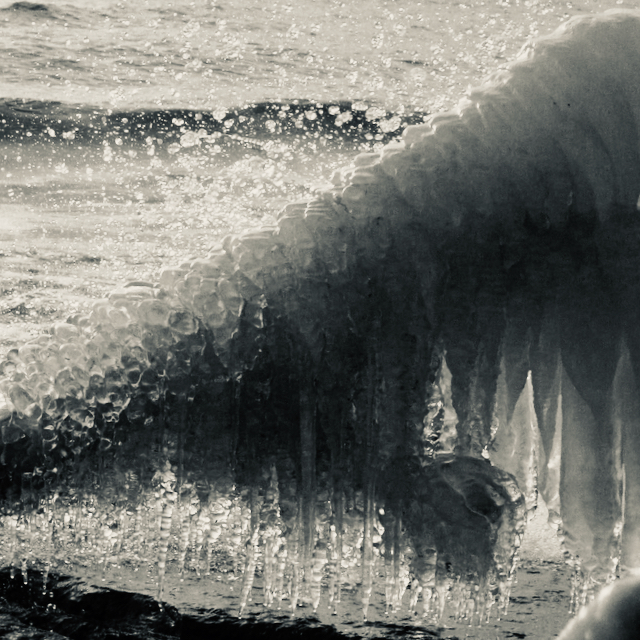
A sculpture carved in adversity at the edge of the lake, it resembles a silent harp resting on its side. With strings ever more shellacked as winter deepens, the harp seems both haunted and haunting, a formerly melodic rib cage benumbed by cycles of fear and grief. And as the storms intensify, layers of icy bulk cling more fiercely to the body: a freeze frame of memory rendered visible.
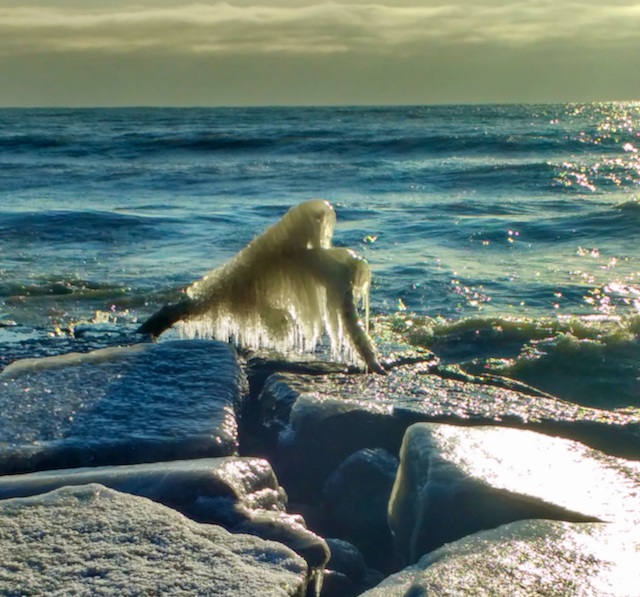
Come the melts of spring, the icy coat dissolves and bare driftwood testifies to the hardship it has endured — rough exterior sanded, an extremity sheared from its host.
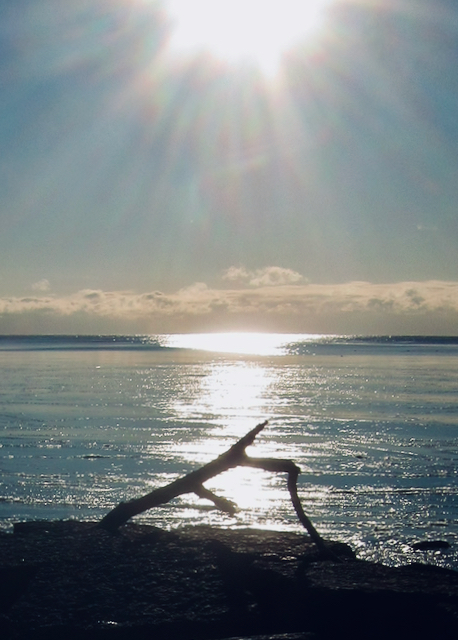
Cracked and forgotten, the harp-shaped branch may be flotsam, but it is not an useless instrument. With her strings missing, she is all the more open to the beyond. She still stands and bathes in sparkles. She still sings.
At the freezing point,
wild west wind and lake spray
mantle the trunk, marzipan on a rich cake.
Thickened ice highlights the outer layer
then darkens to charcoal-purple,
legacy of the long drift from forest
to midnight bonfires on the beach.
As it salves driftwood burns,
ice defines the border of a helmet
whose irregular edges soften the dark wedge,
trace translucent deltas that flow,
river to ocean evolution
from eye of shark’s prow
to fearful mammal below.
As I nestle between lakeside boulders, drifted ice drapes me in a veil. Successive layers of frozen water etch a daguerreotype portrait of arrested lava, once-fluid anger trapped by a season so heavy and cold.
Behind my nape, the thickness of the ice is greater, and swirls of gray-blue shadows entwine in smoky tendrils with hints of ash. From my chin, crystal shards have grown into a beard that flows from the seam where my edges meet the lake’s beach below.
The ghostly poncho that almost completely glazes me has left only an egg-shaped tonsure melted by the sun. In a few weeks, spring’s solar ascent will fully dissolve my obscuring cloak, but for now I am content with the small oval that lies exposed to the elements.
One day soon, an exhausted bird will warm its feet on my crown. Resting after miles of migration, my guest will sit for a spell all hunkered down into its feathers. As it turns its beak towards the water, it will flex its wings to the humming thwack of high winds that scour my quiet skin into forgiving sand.
